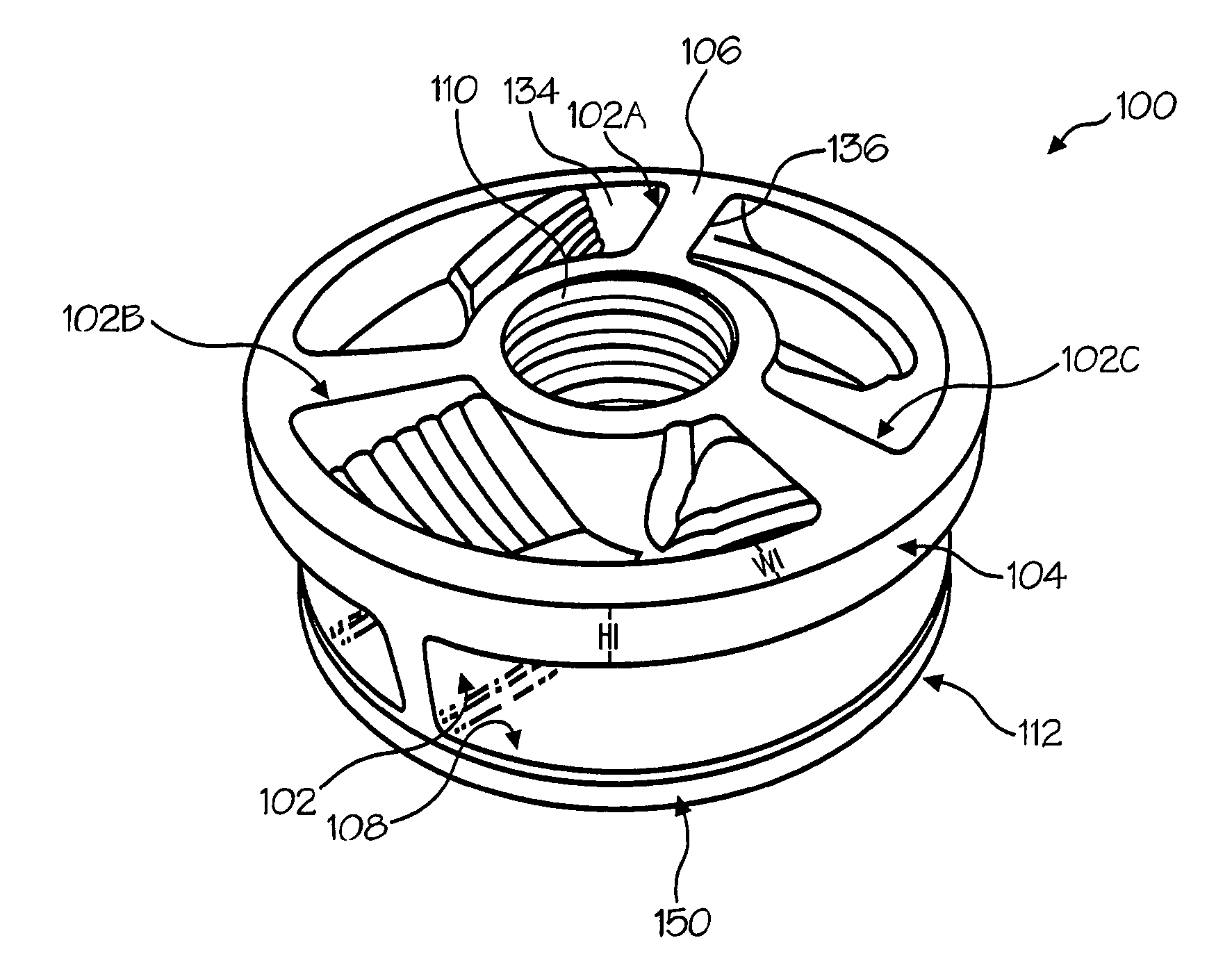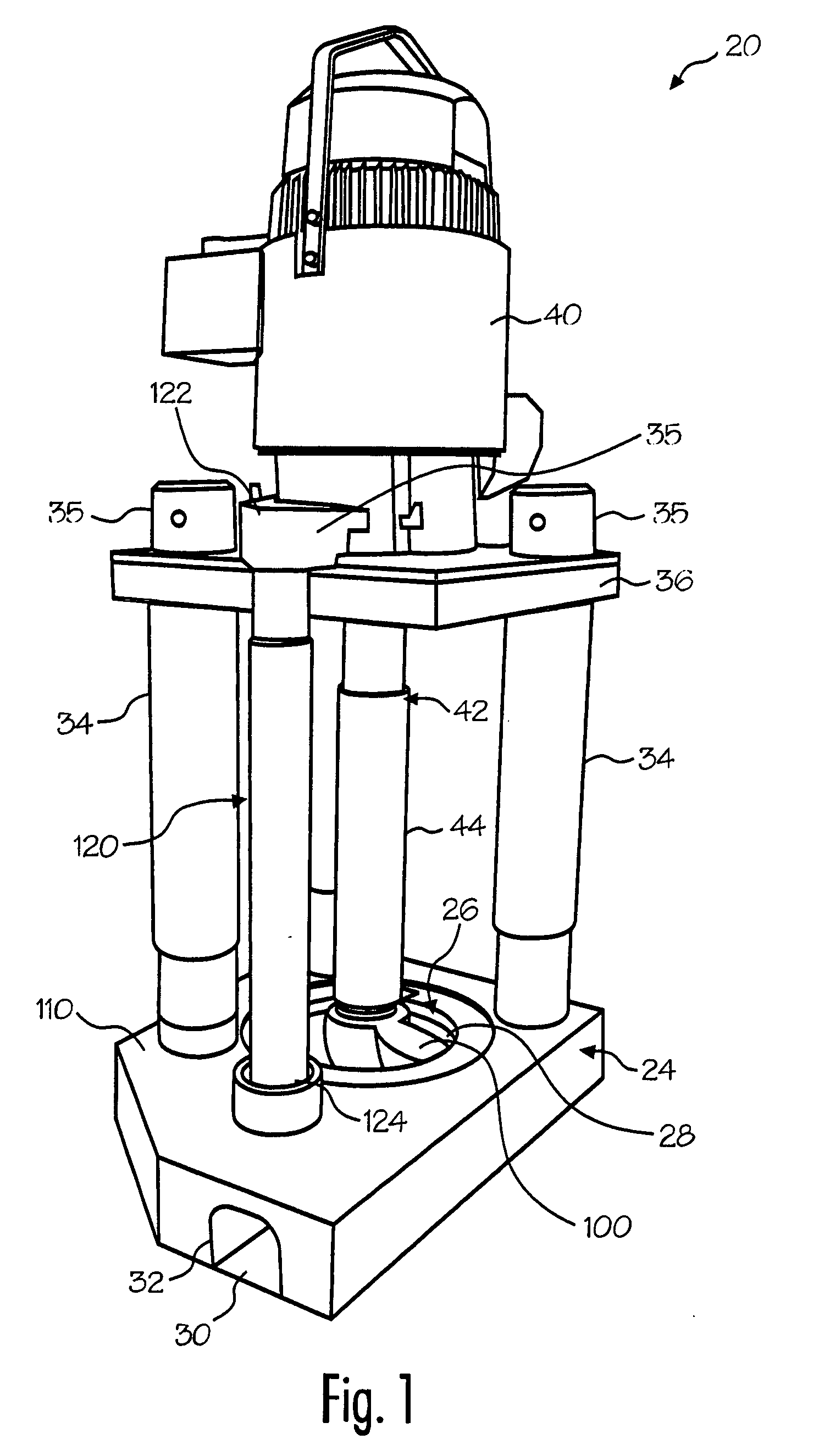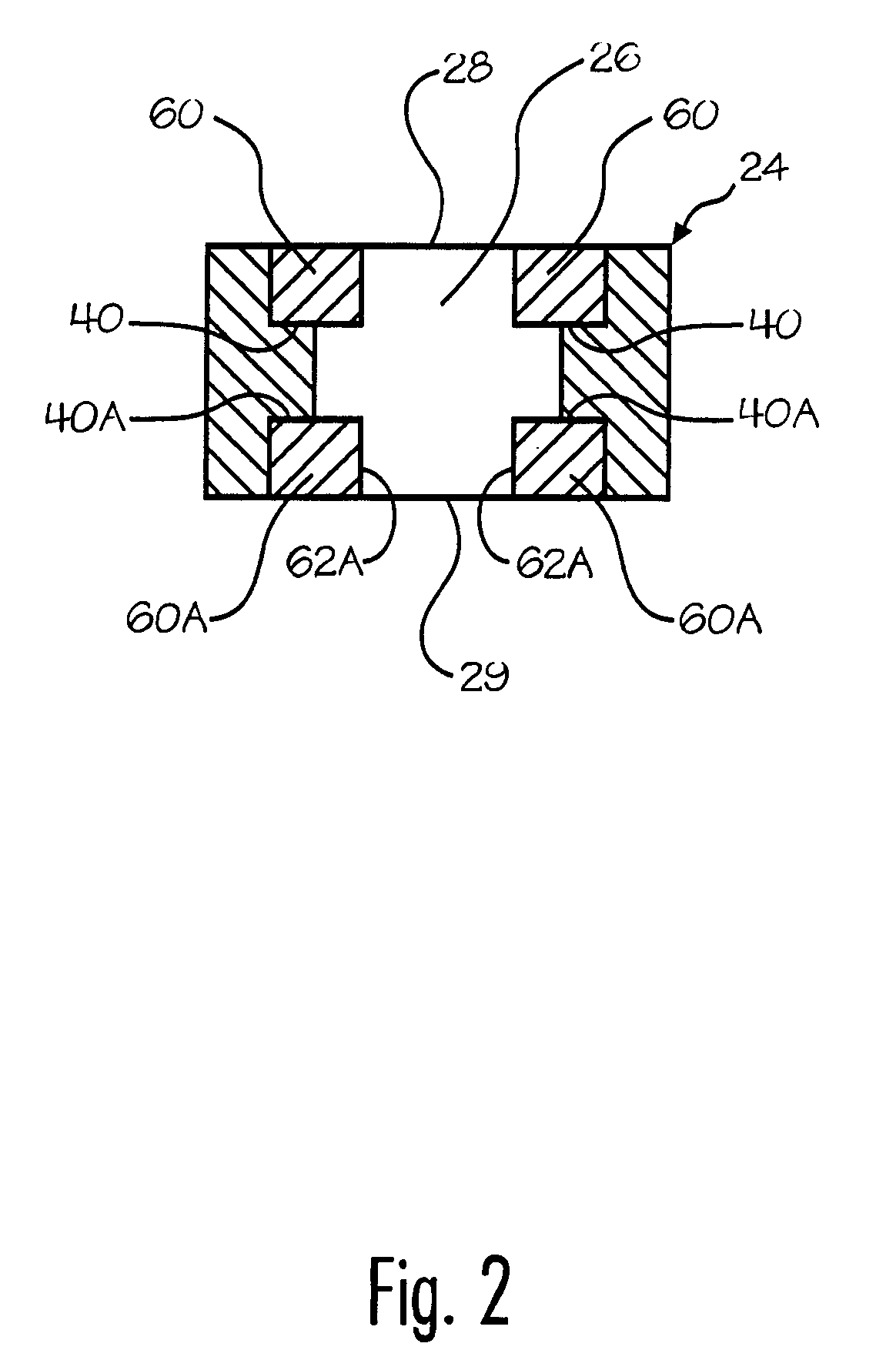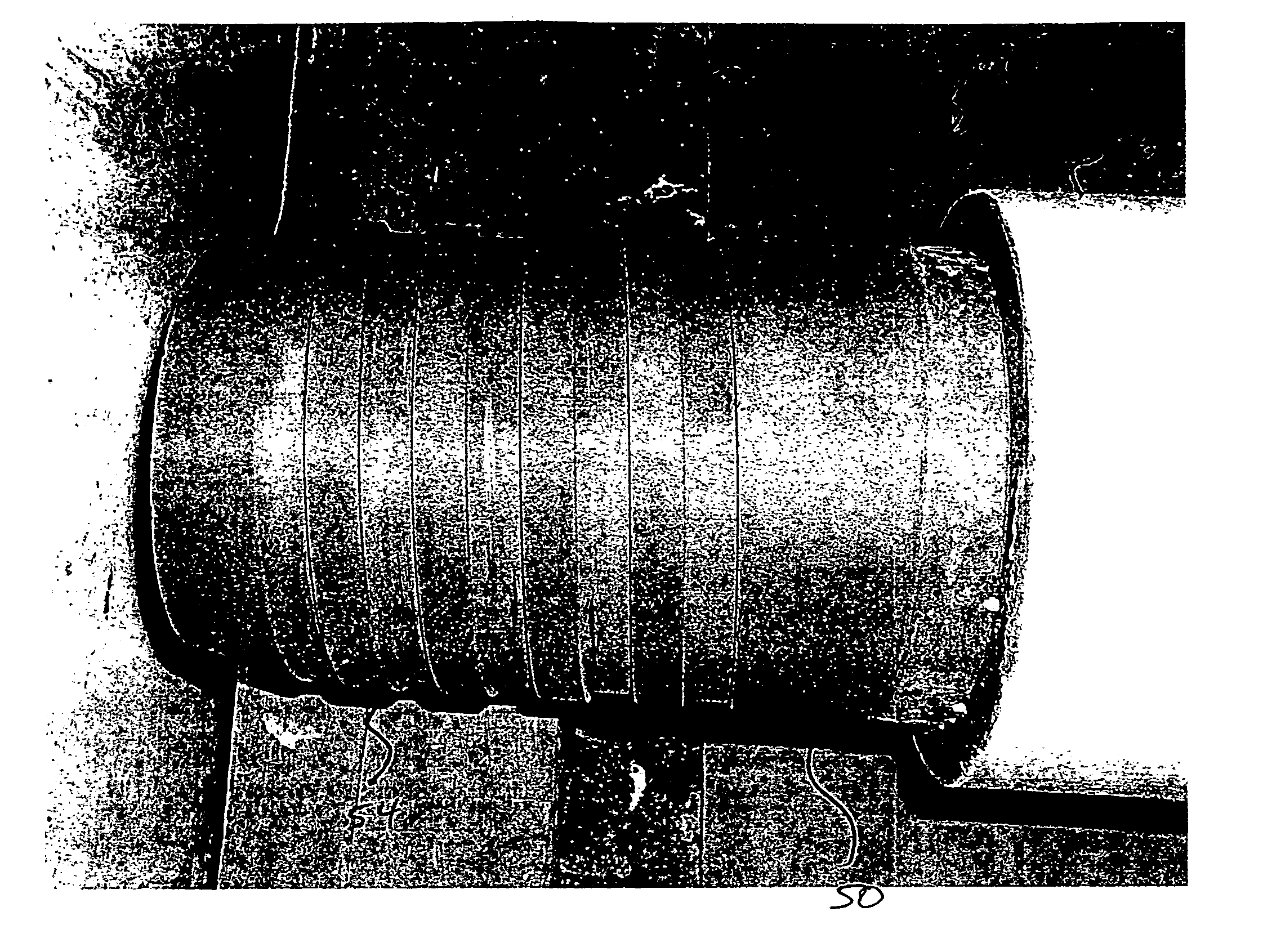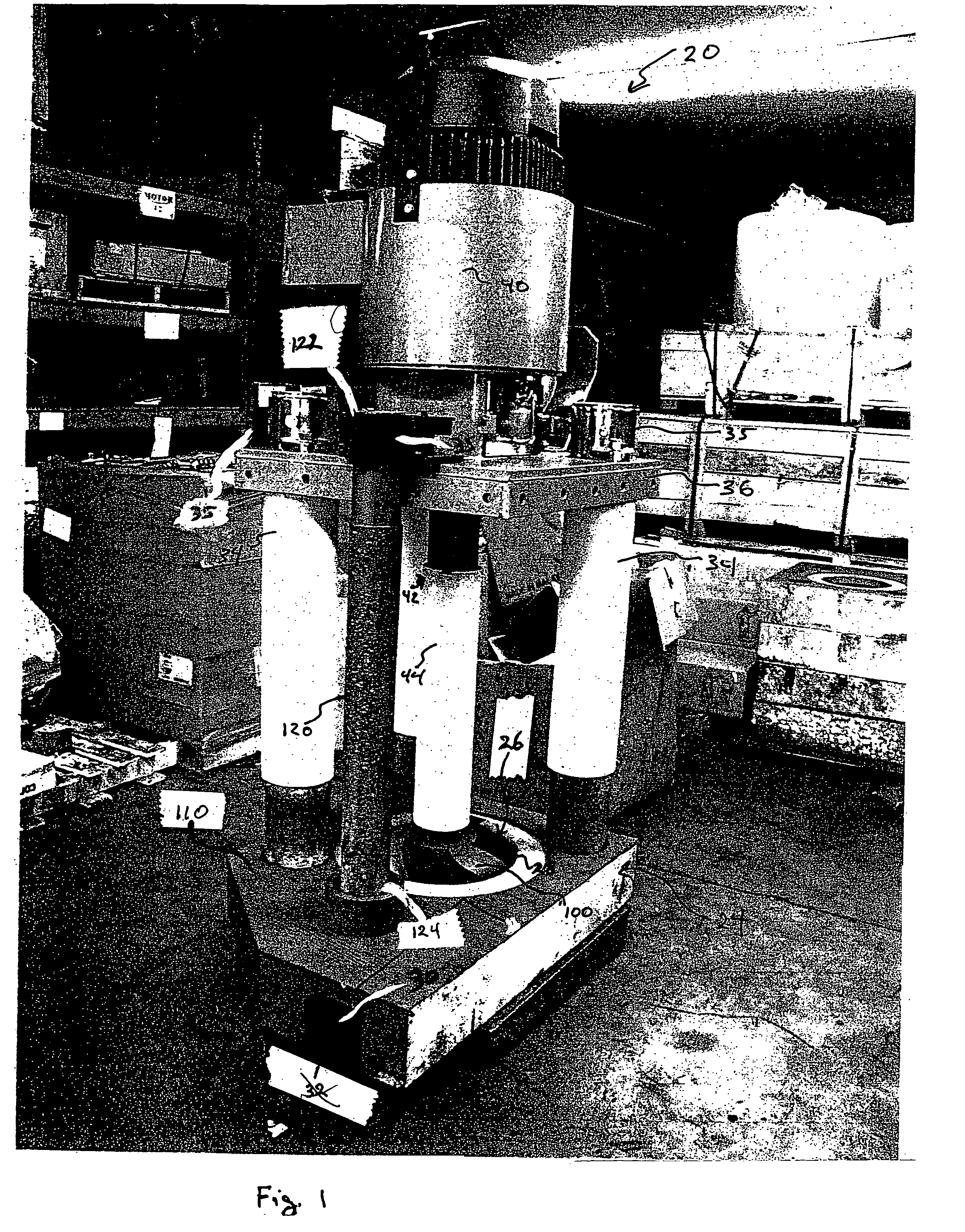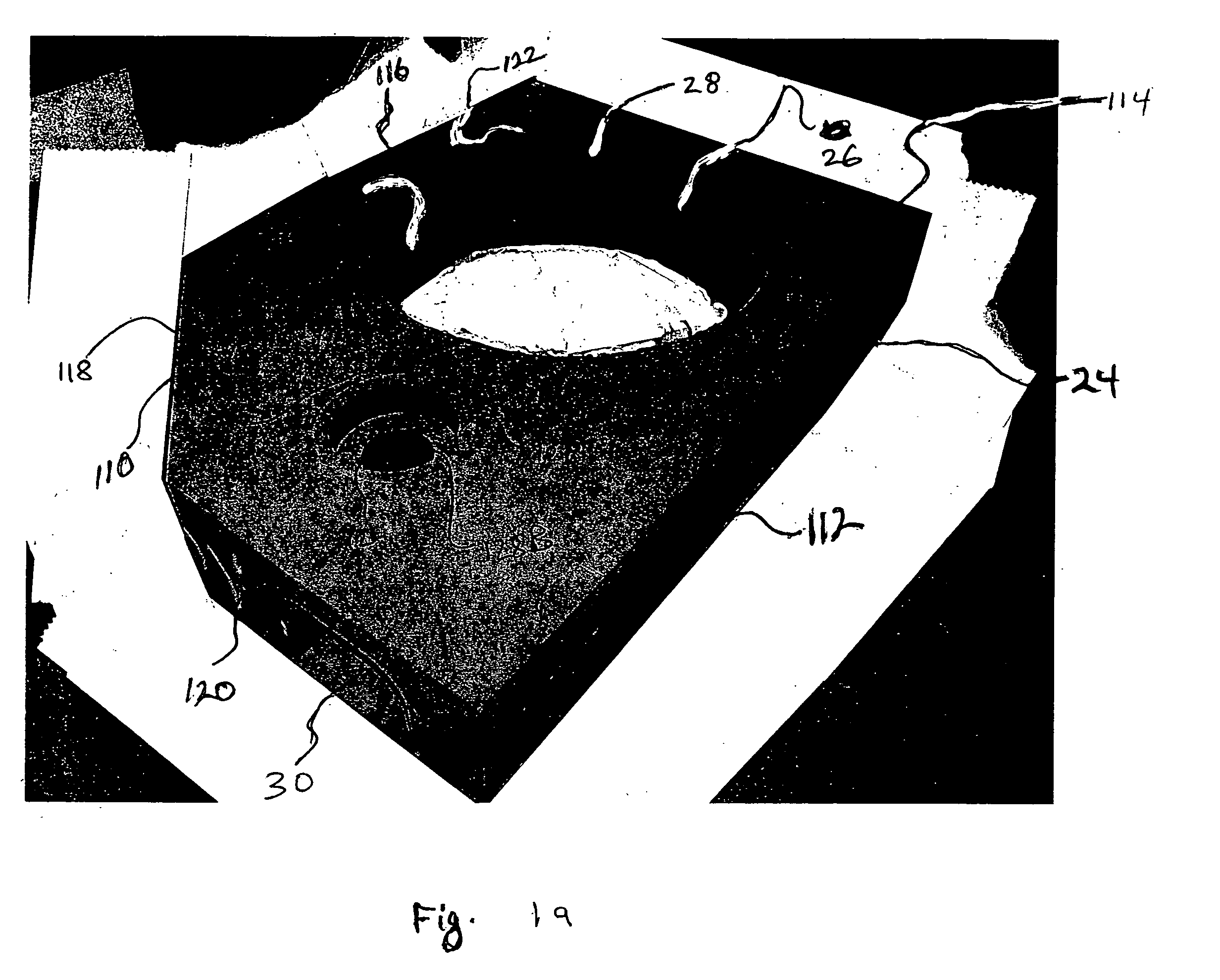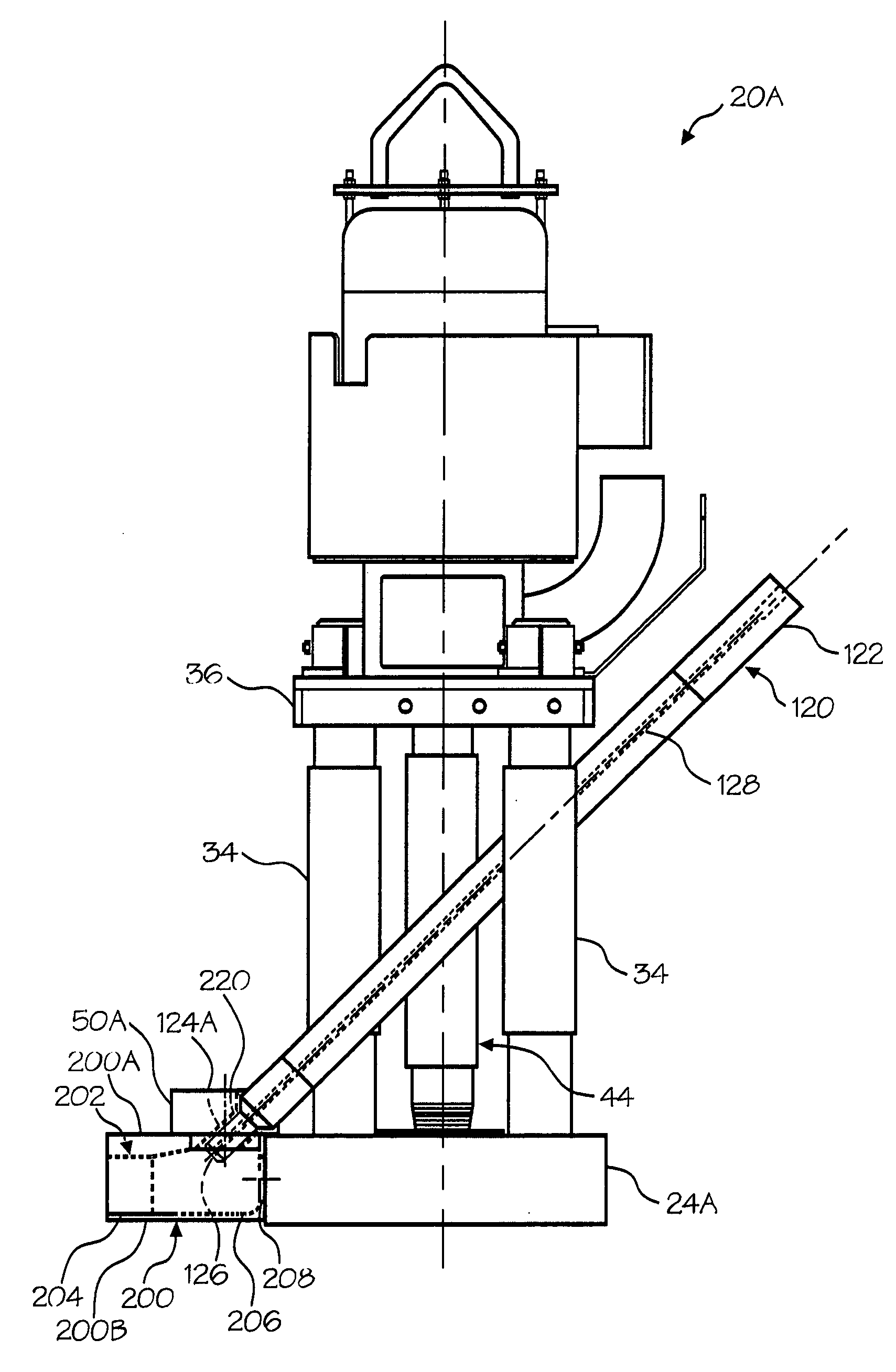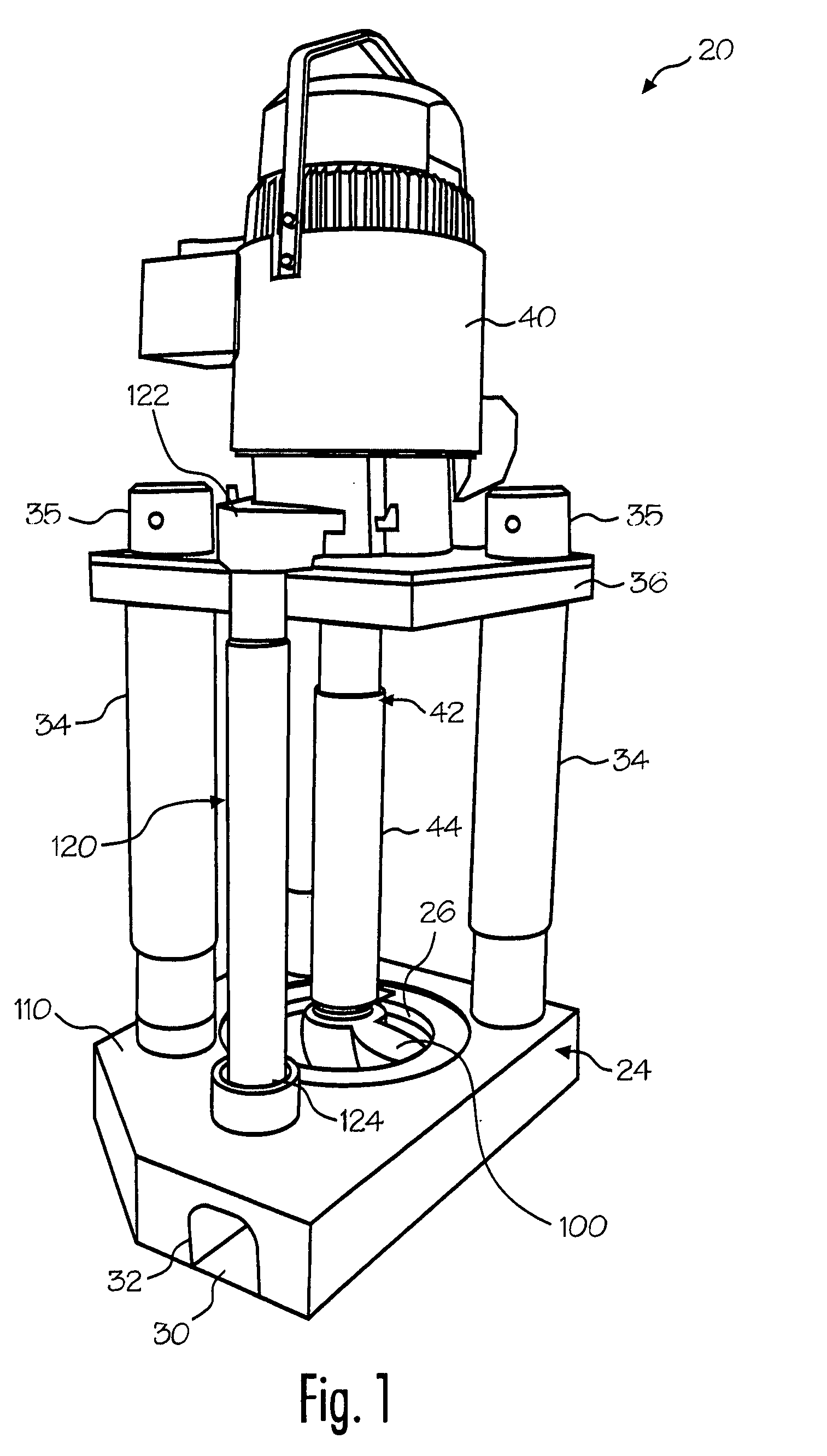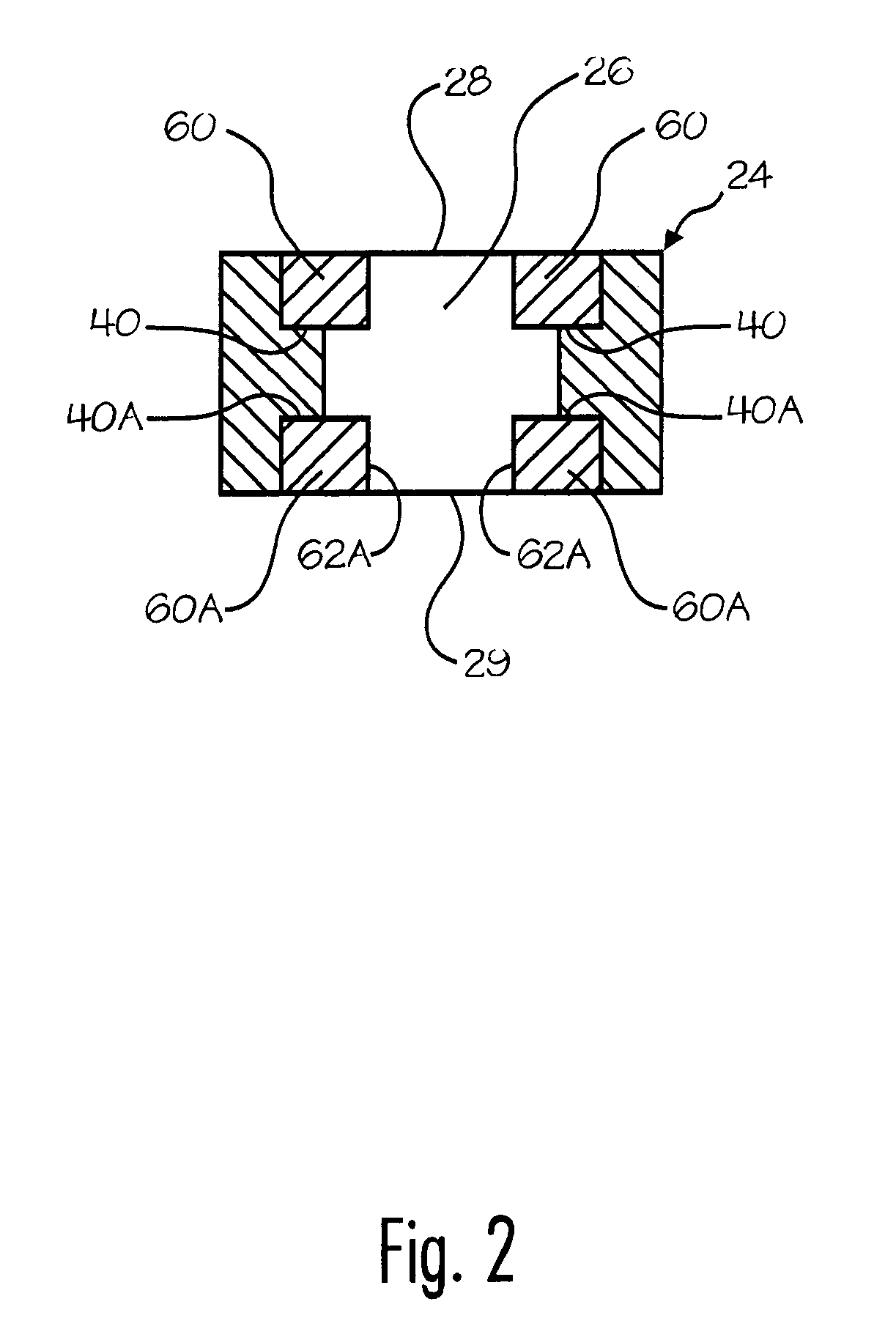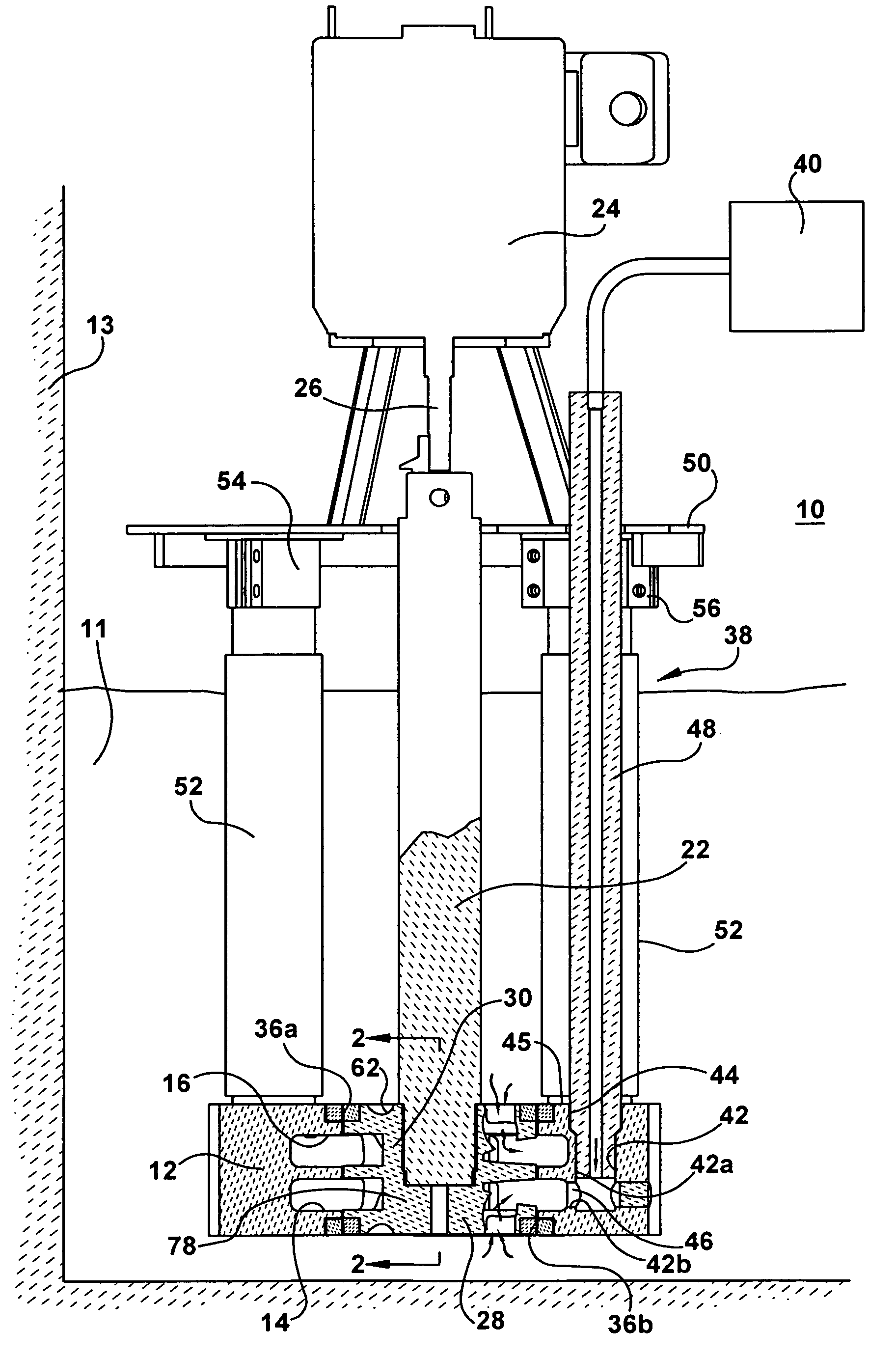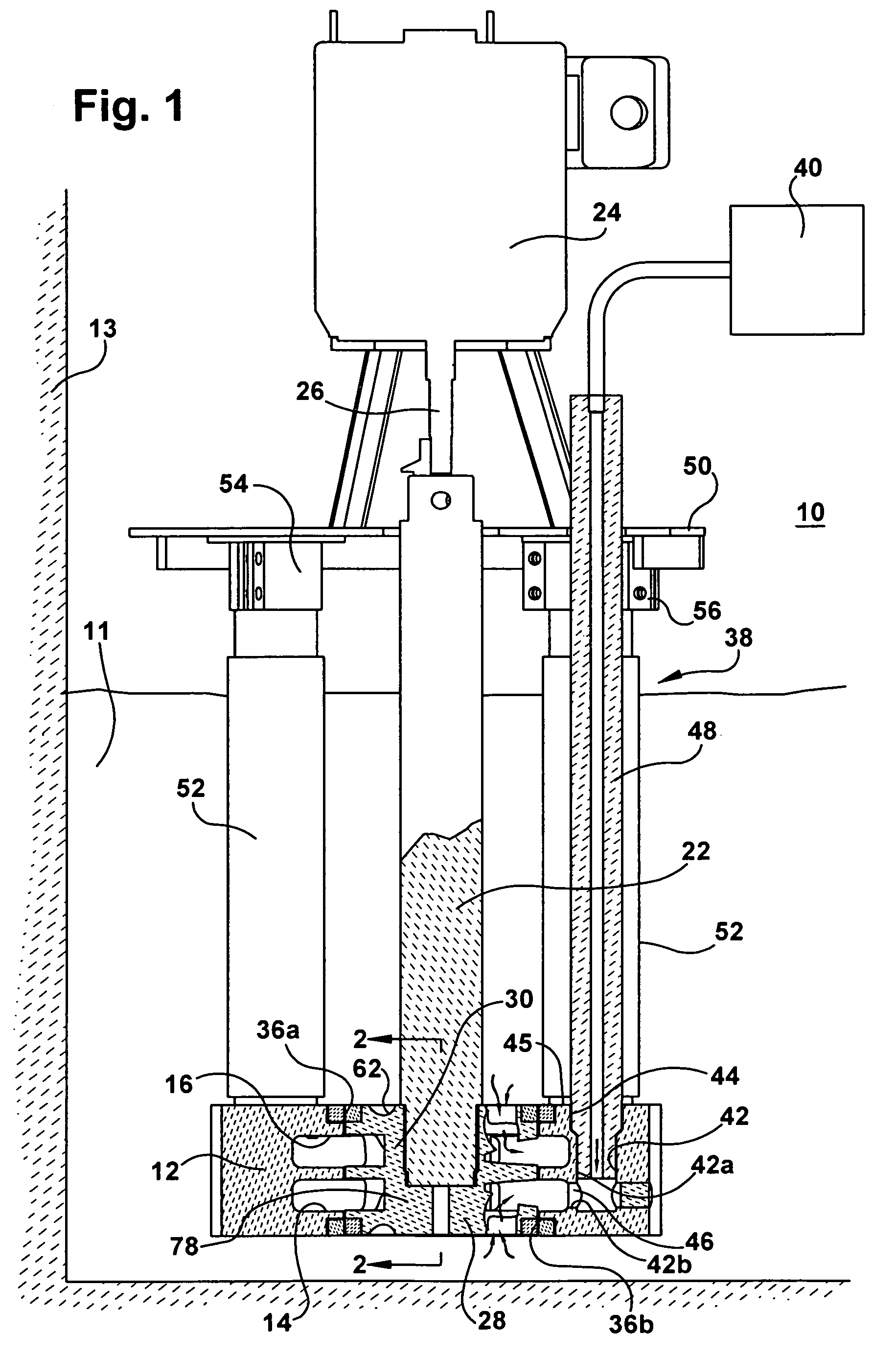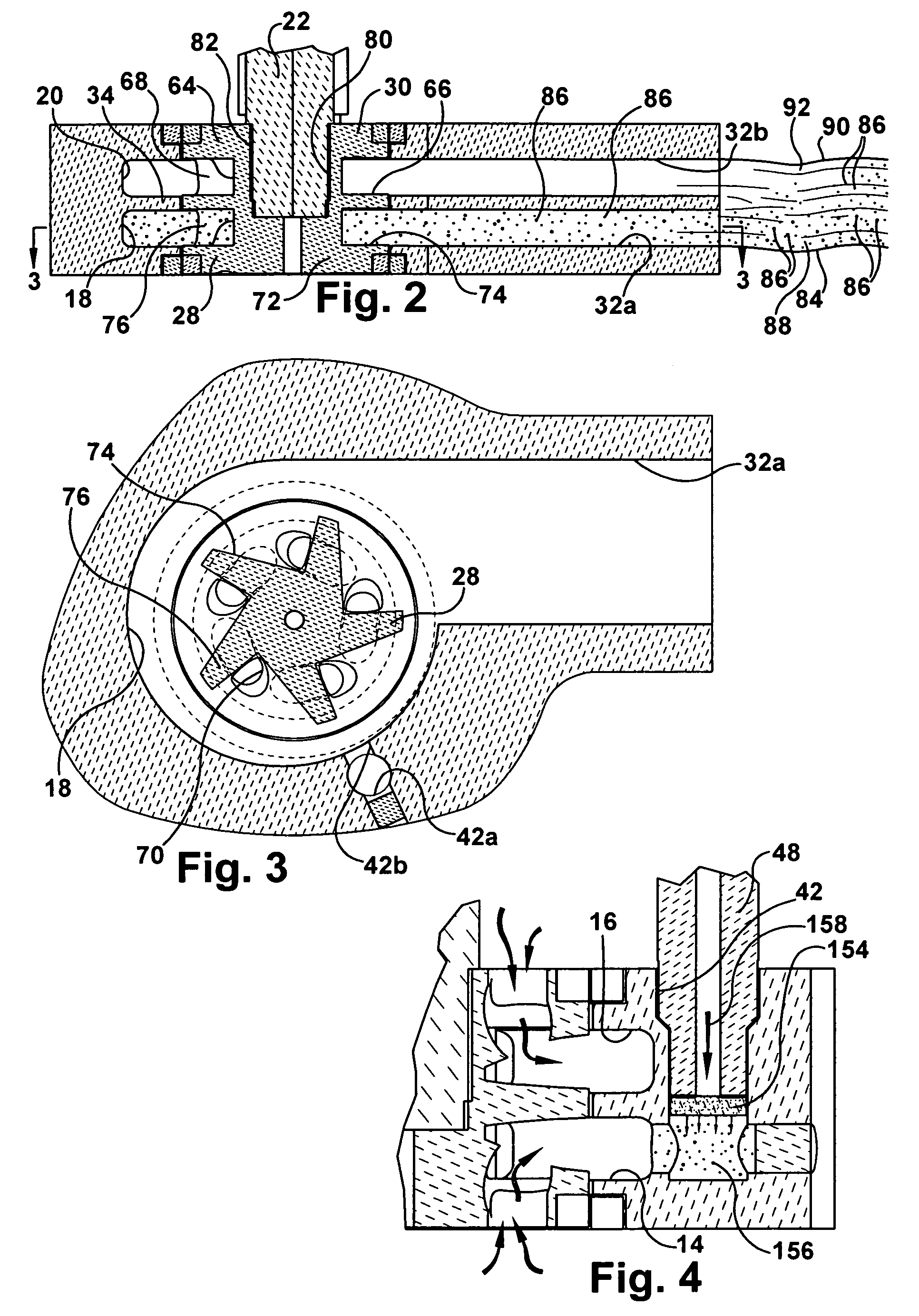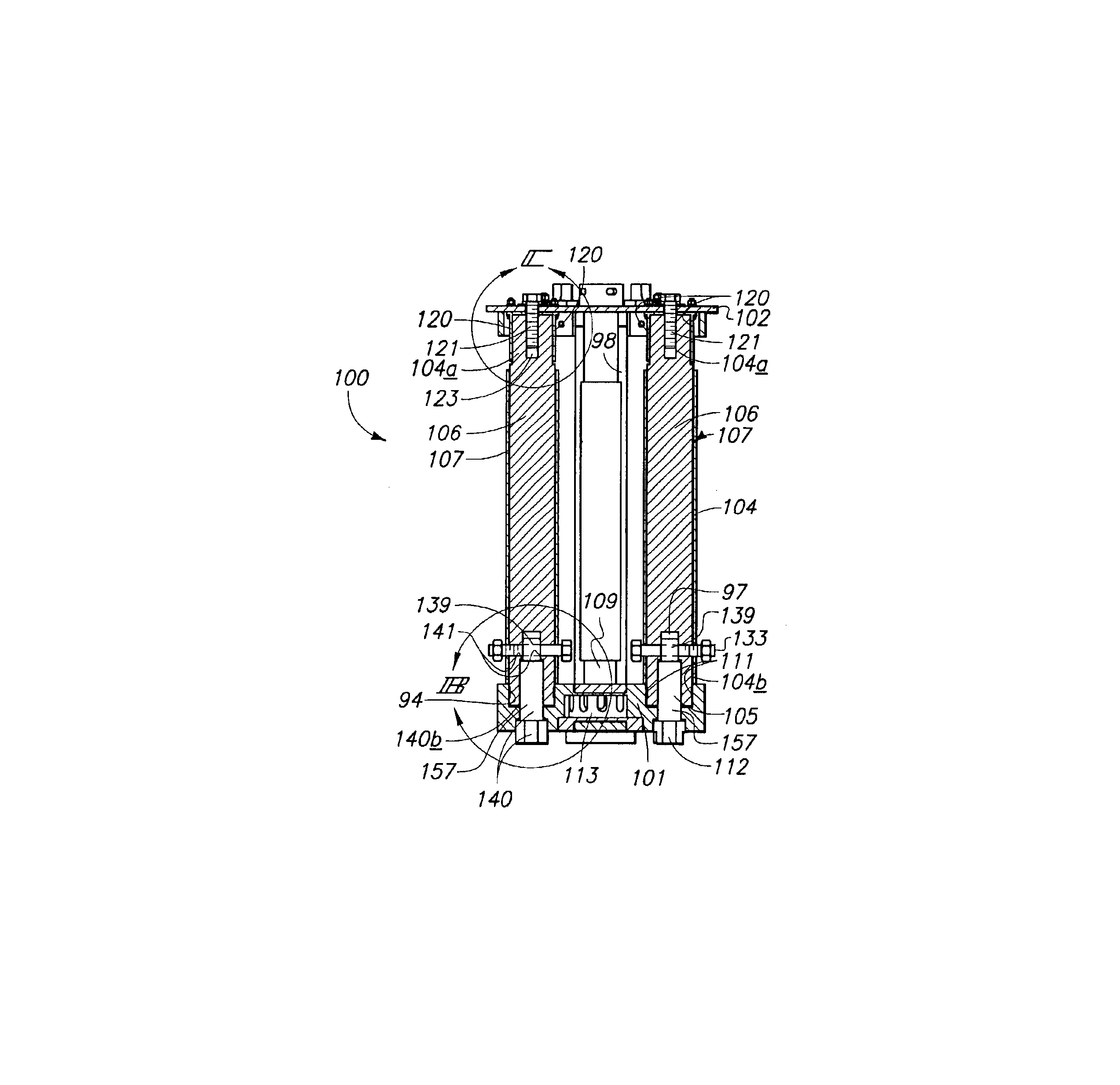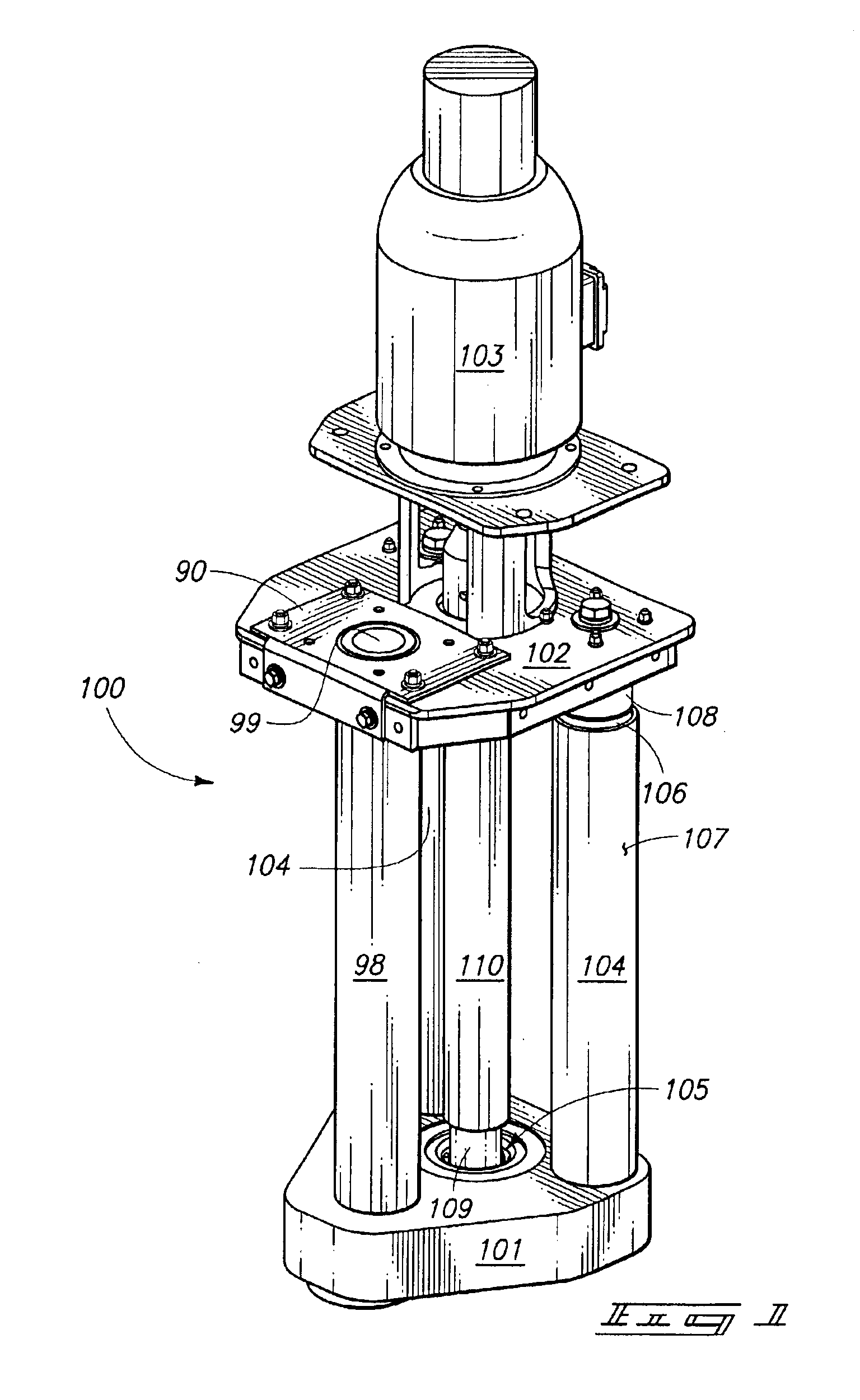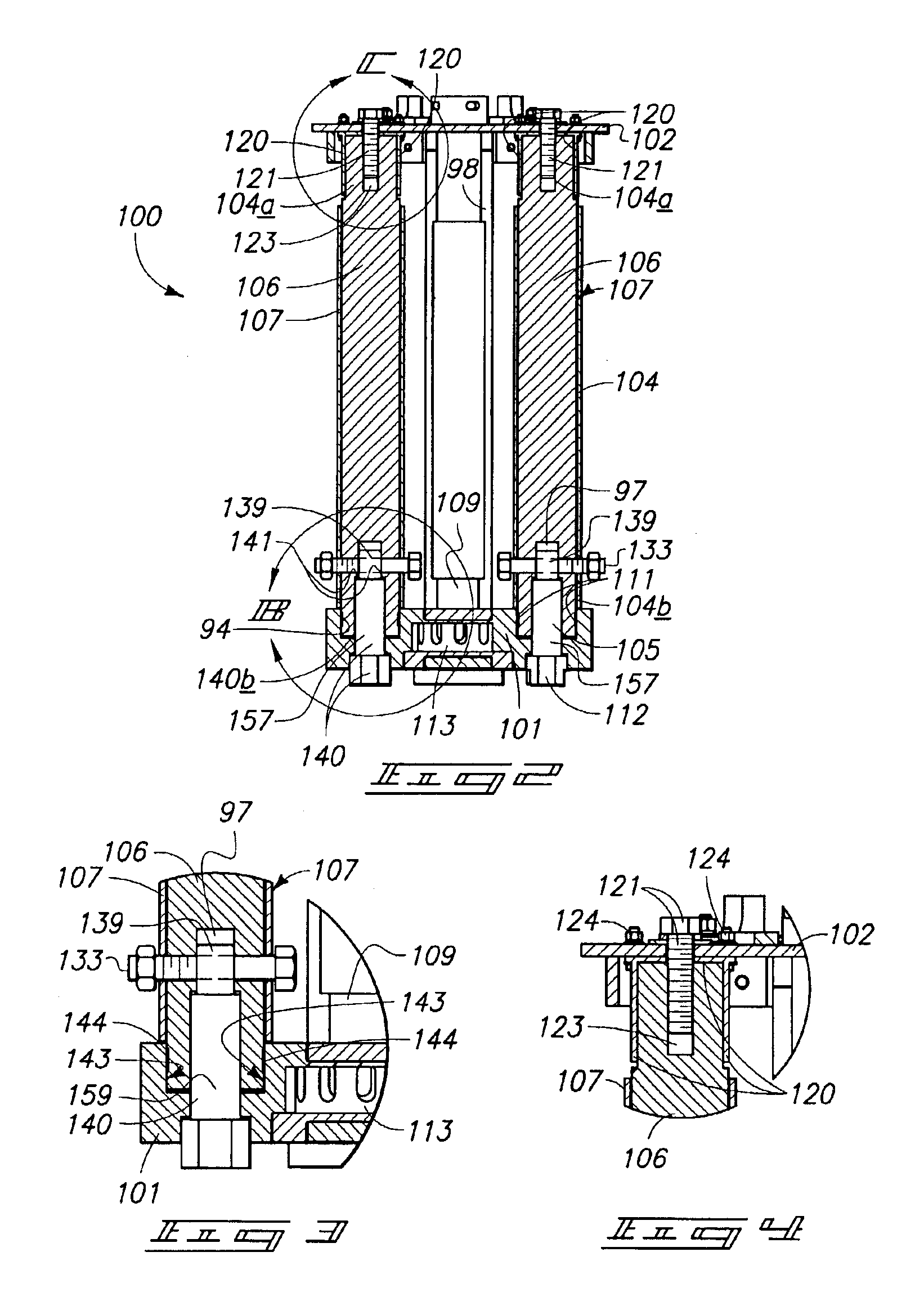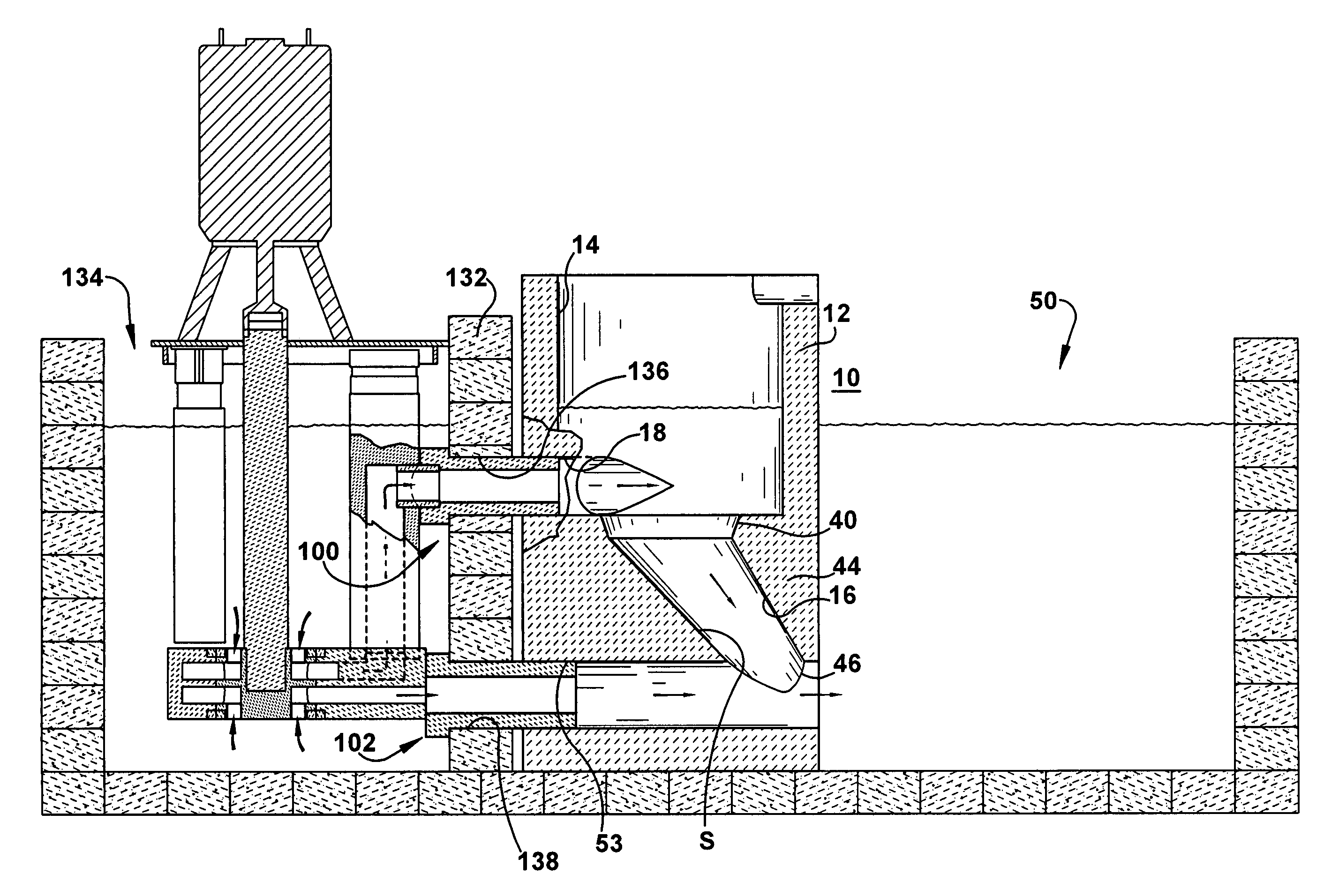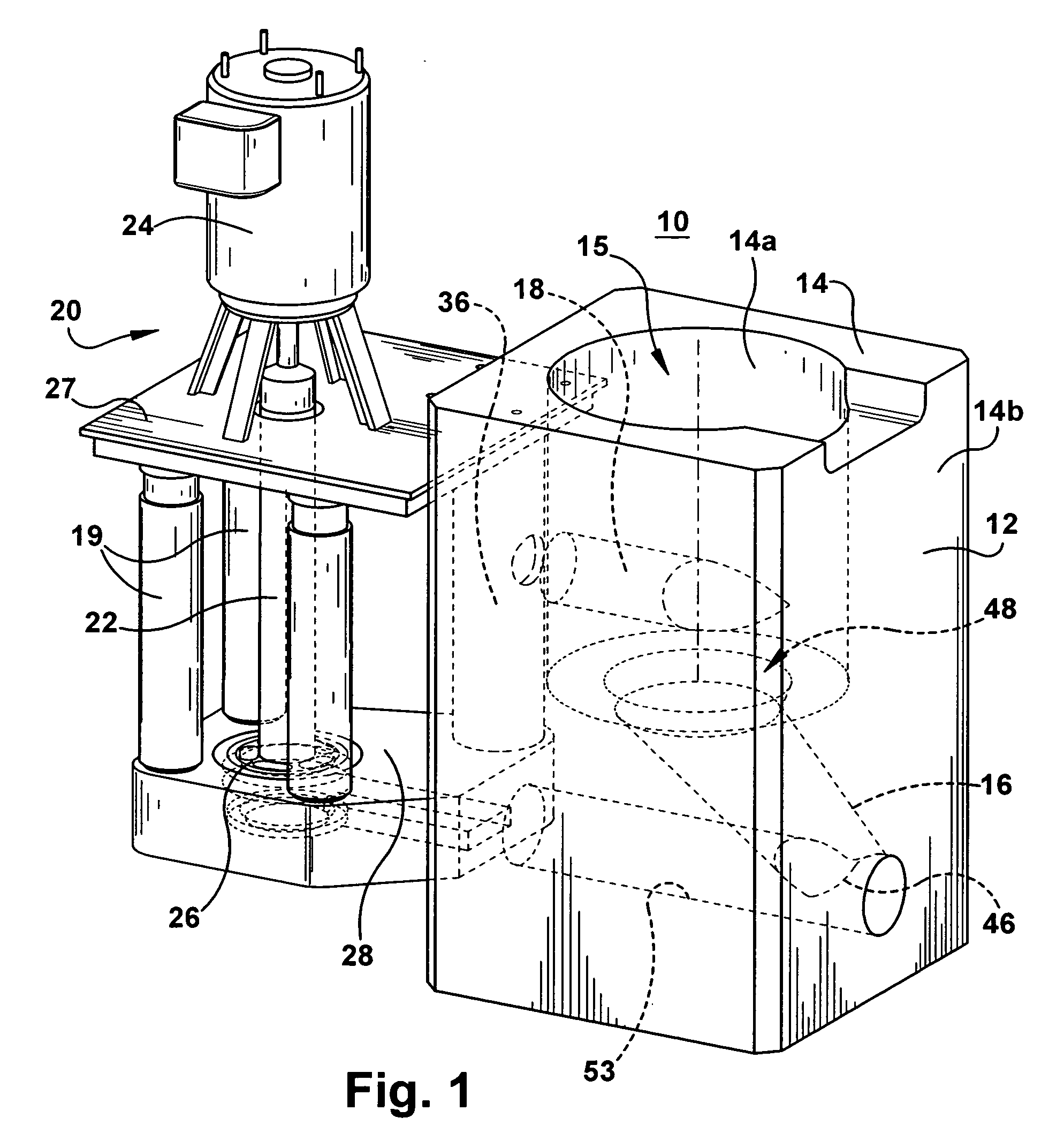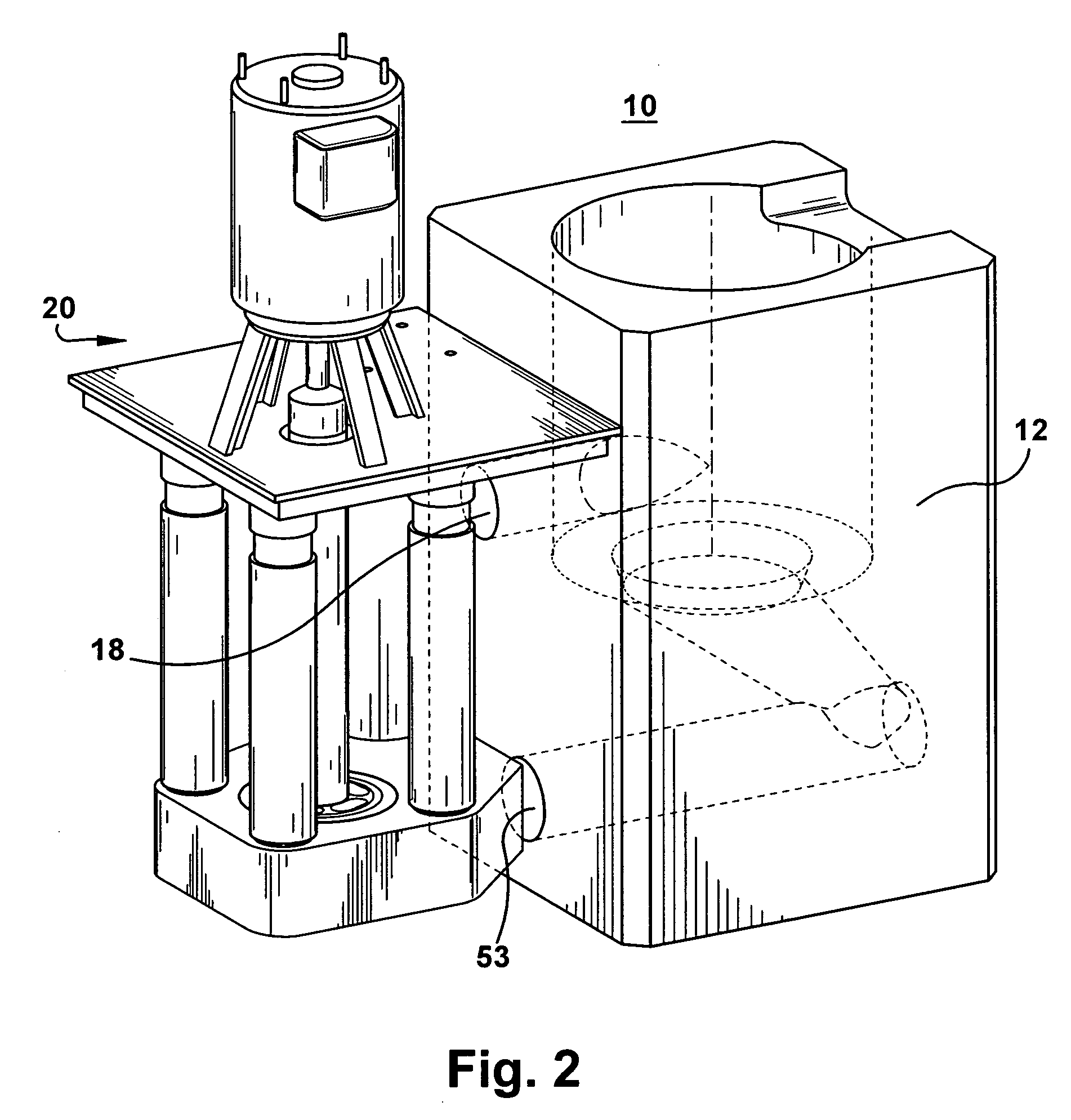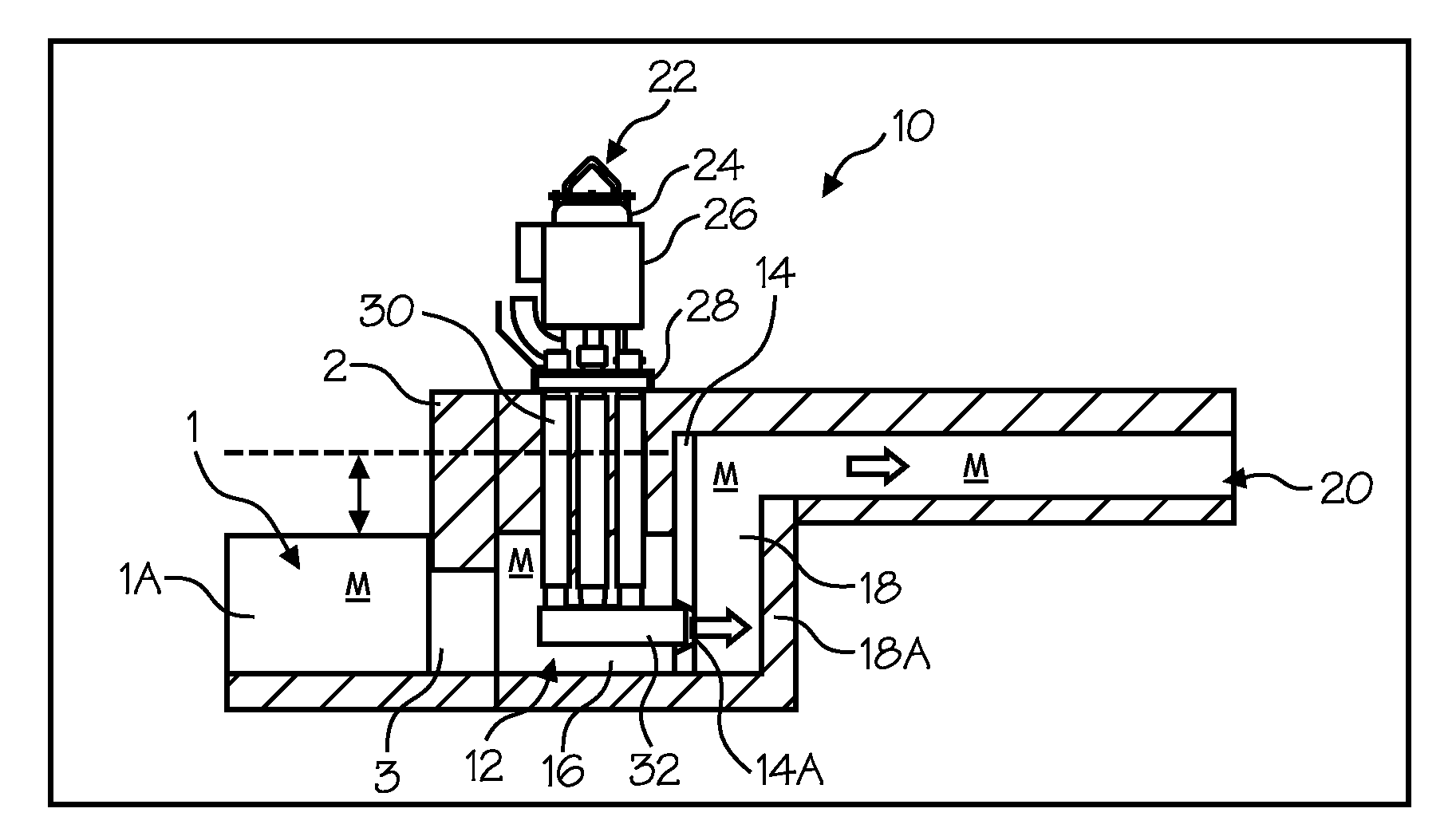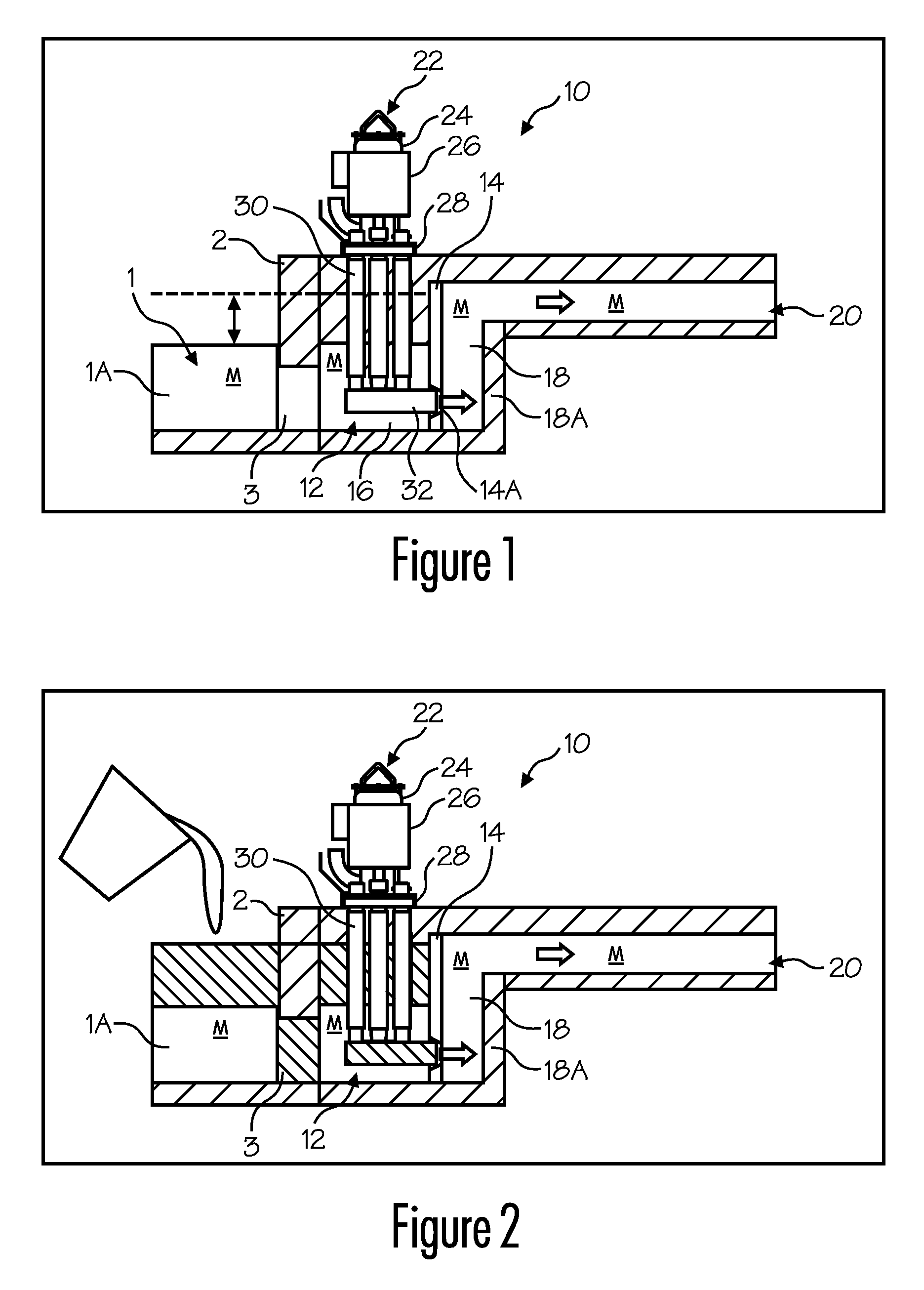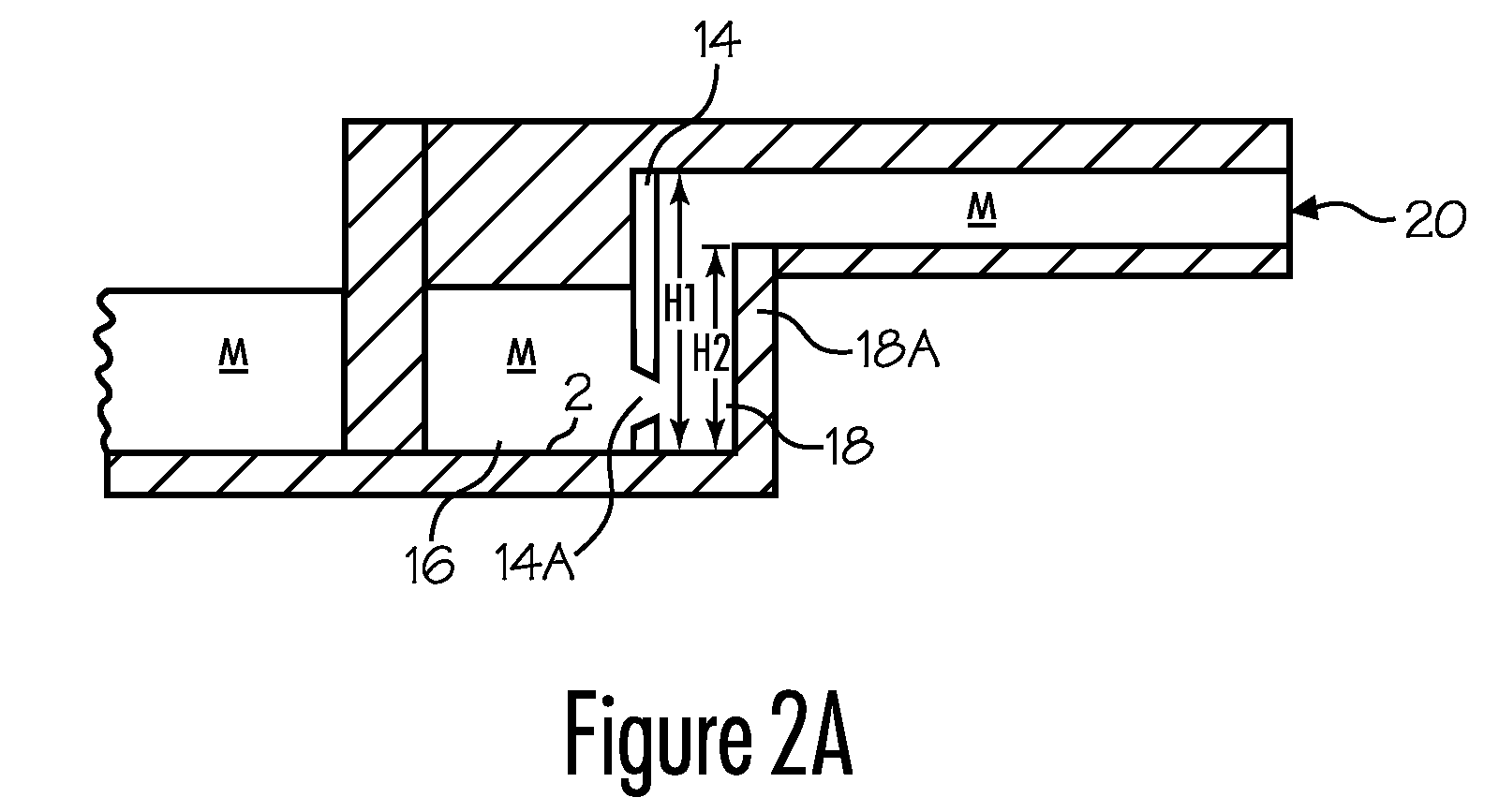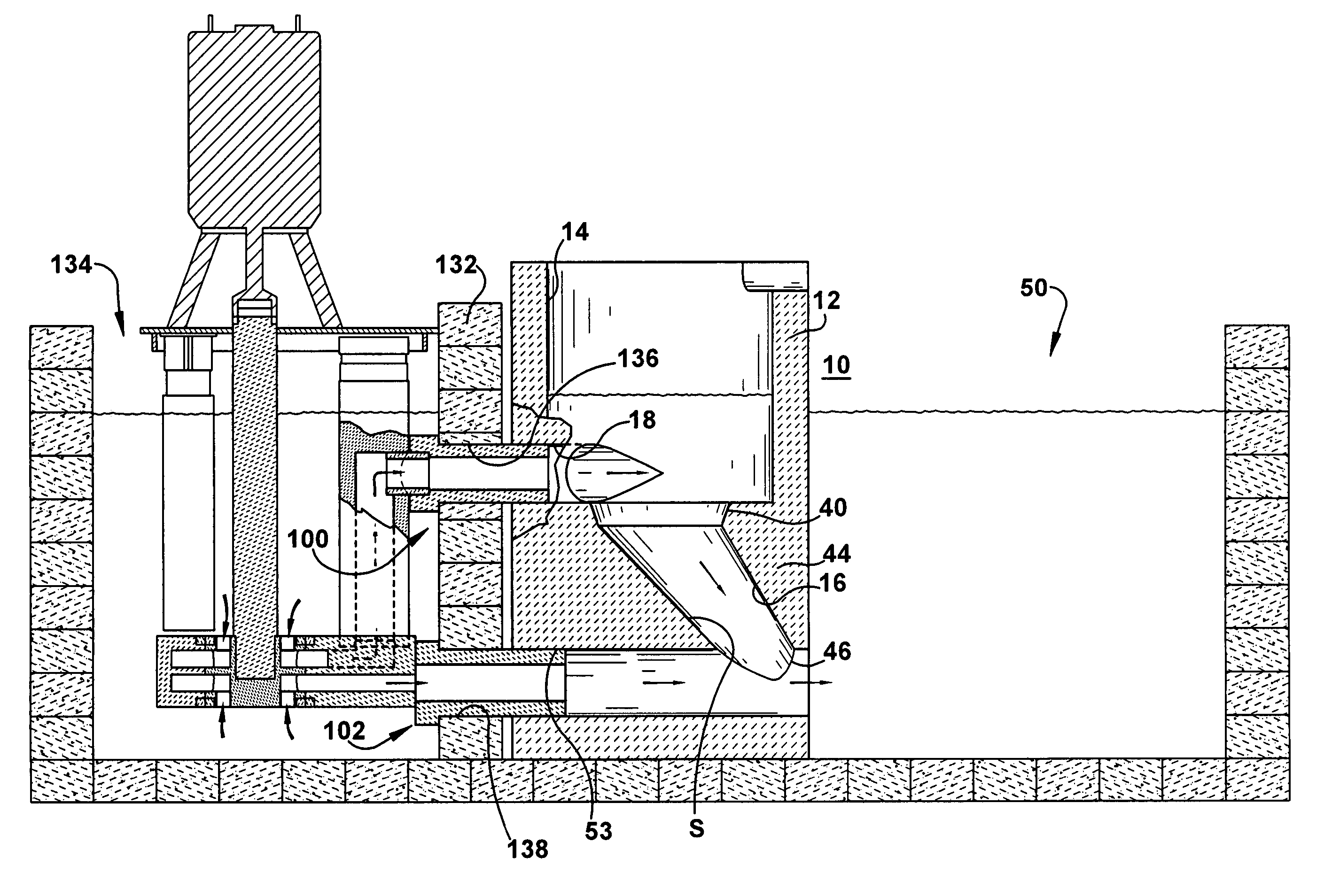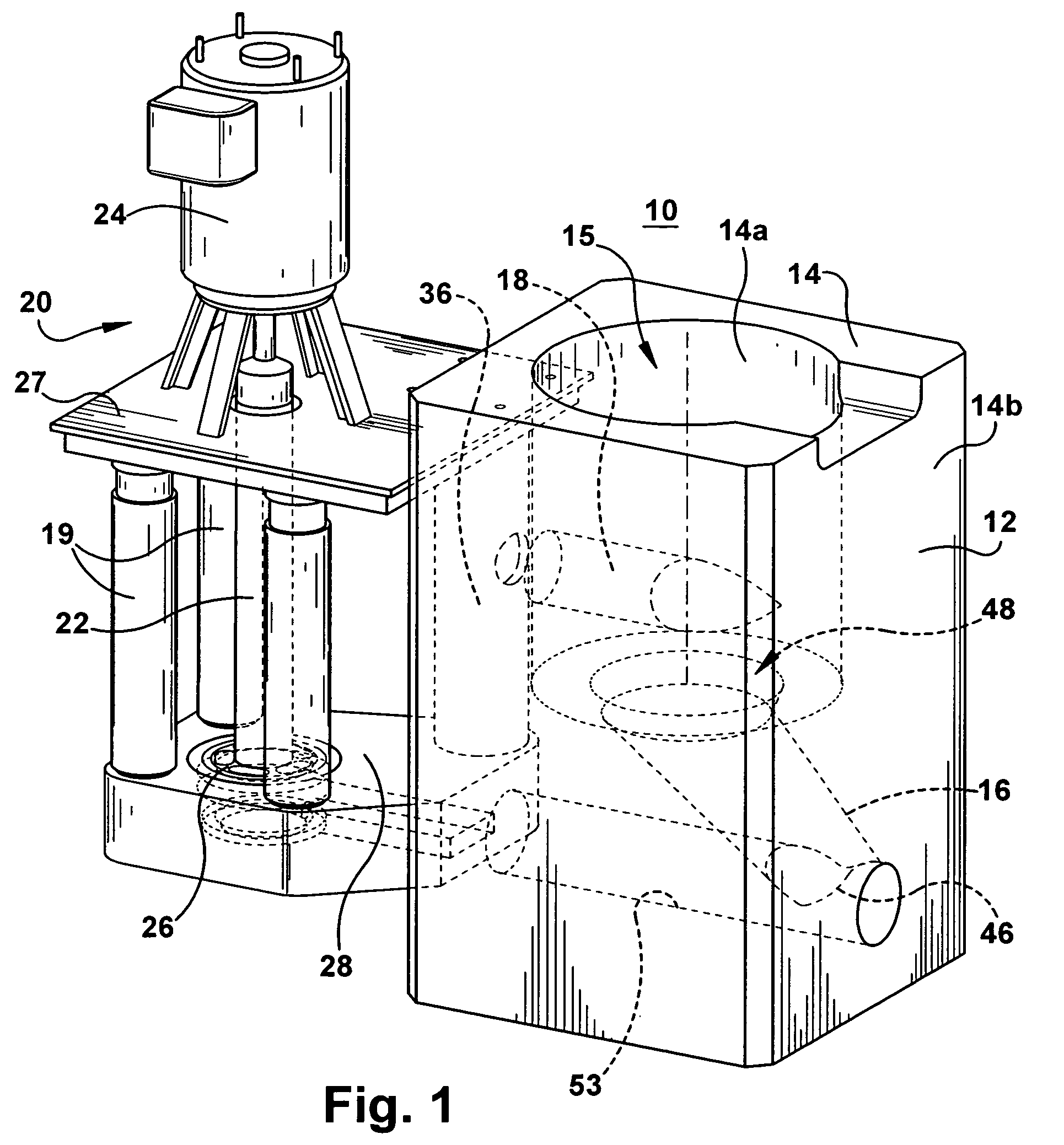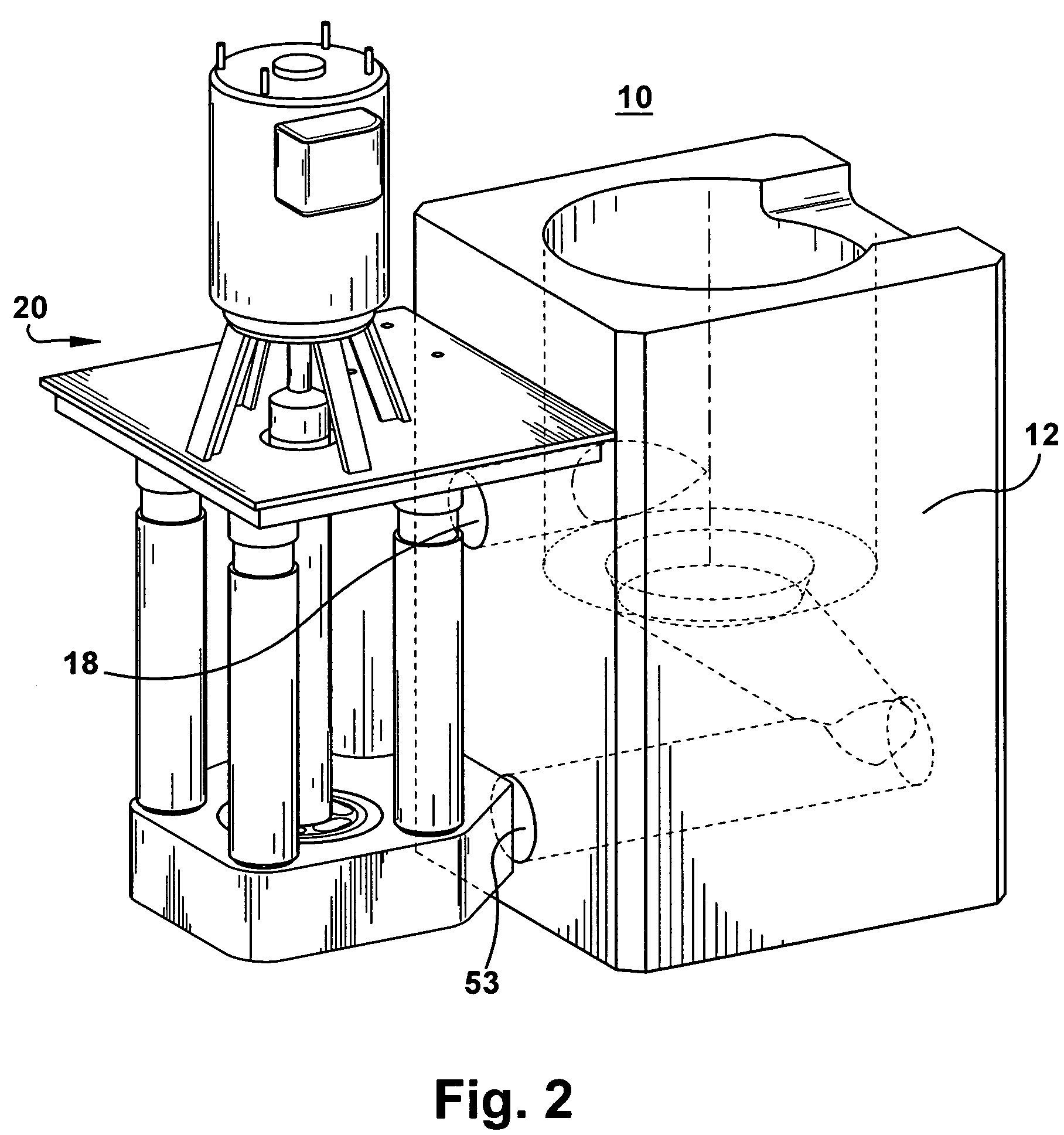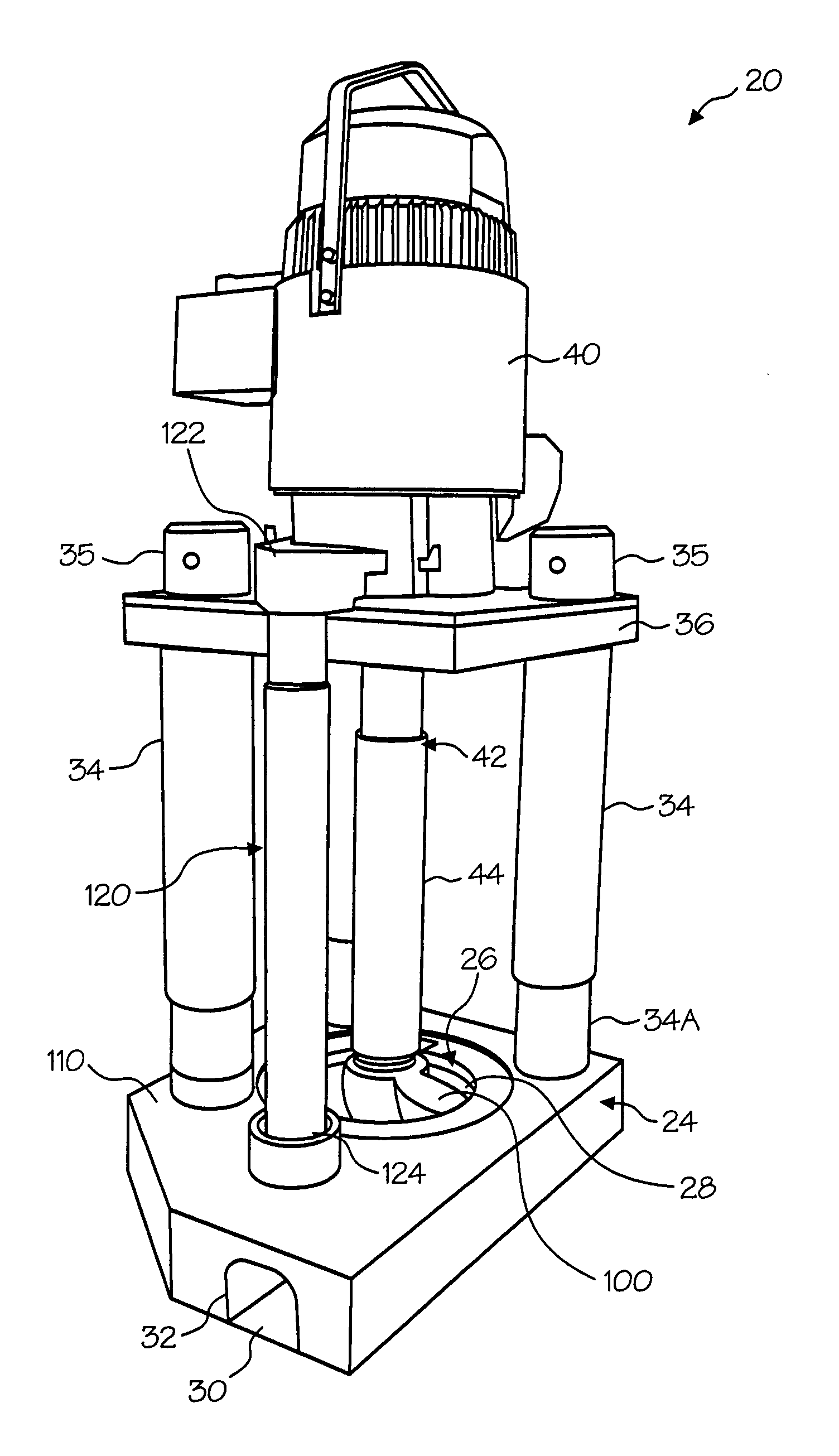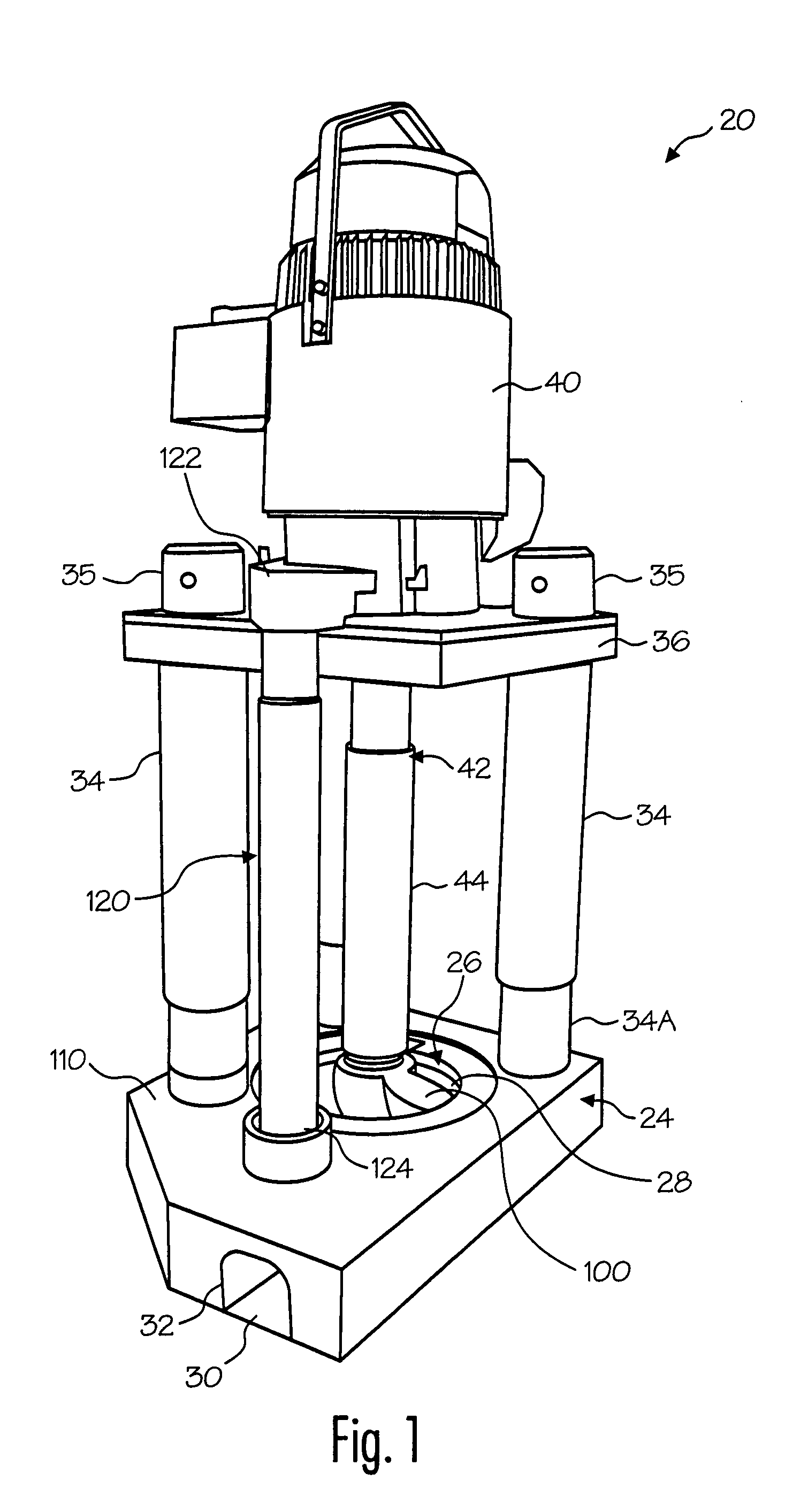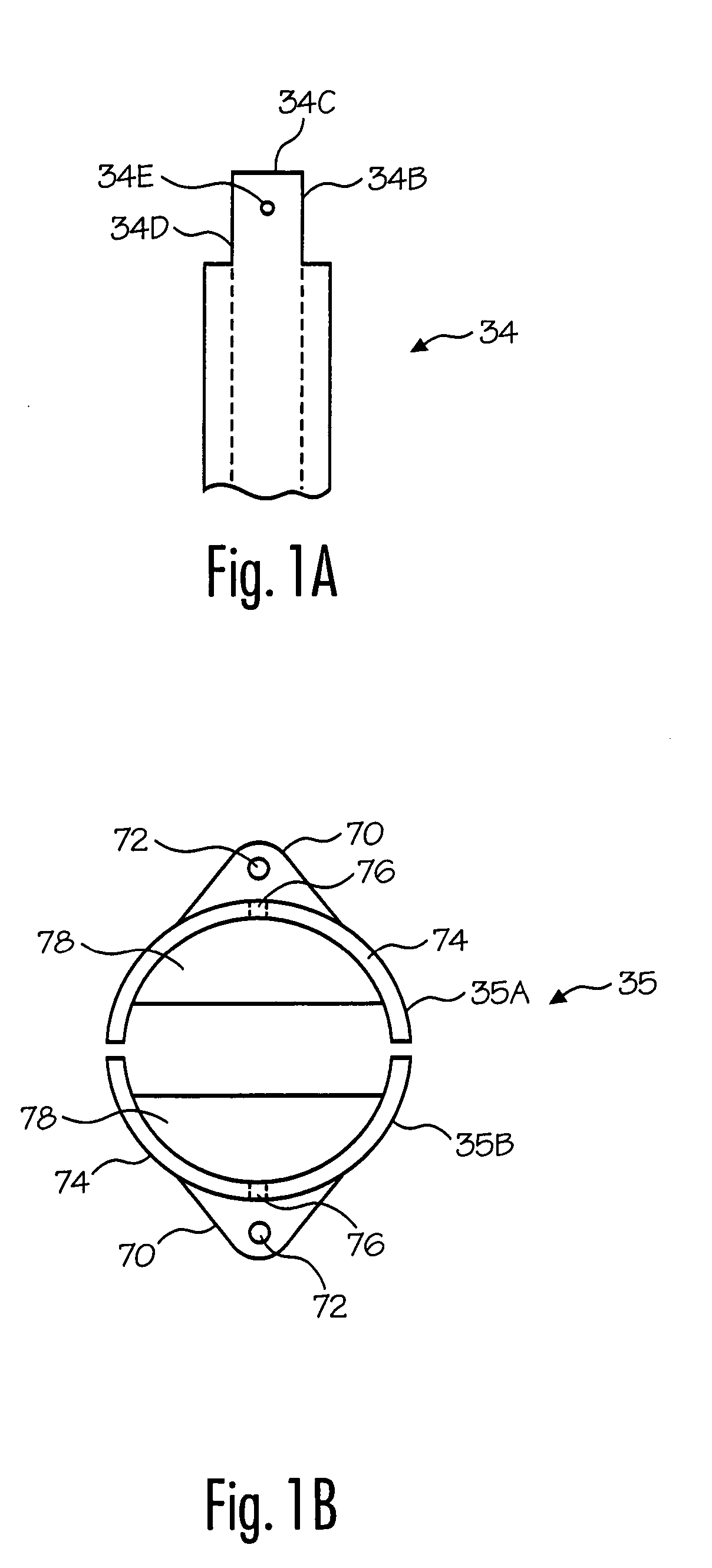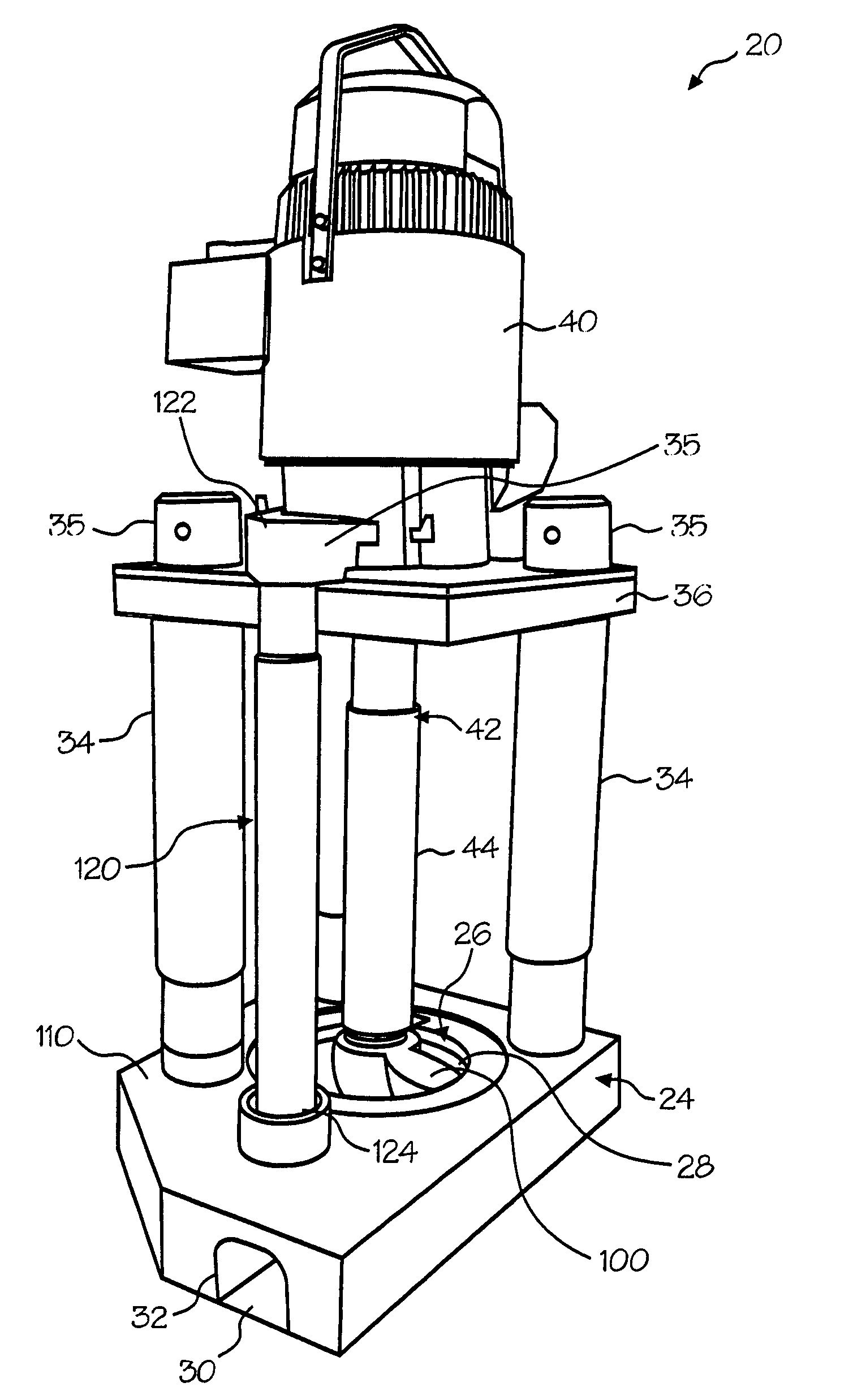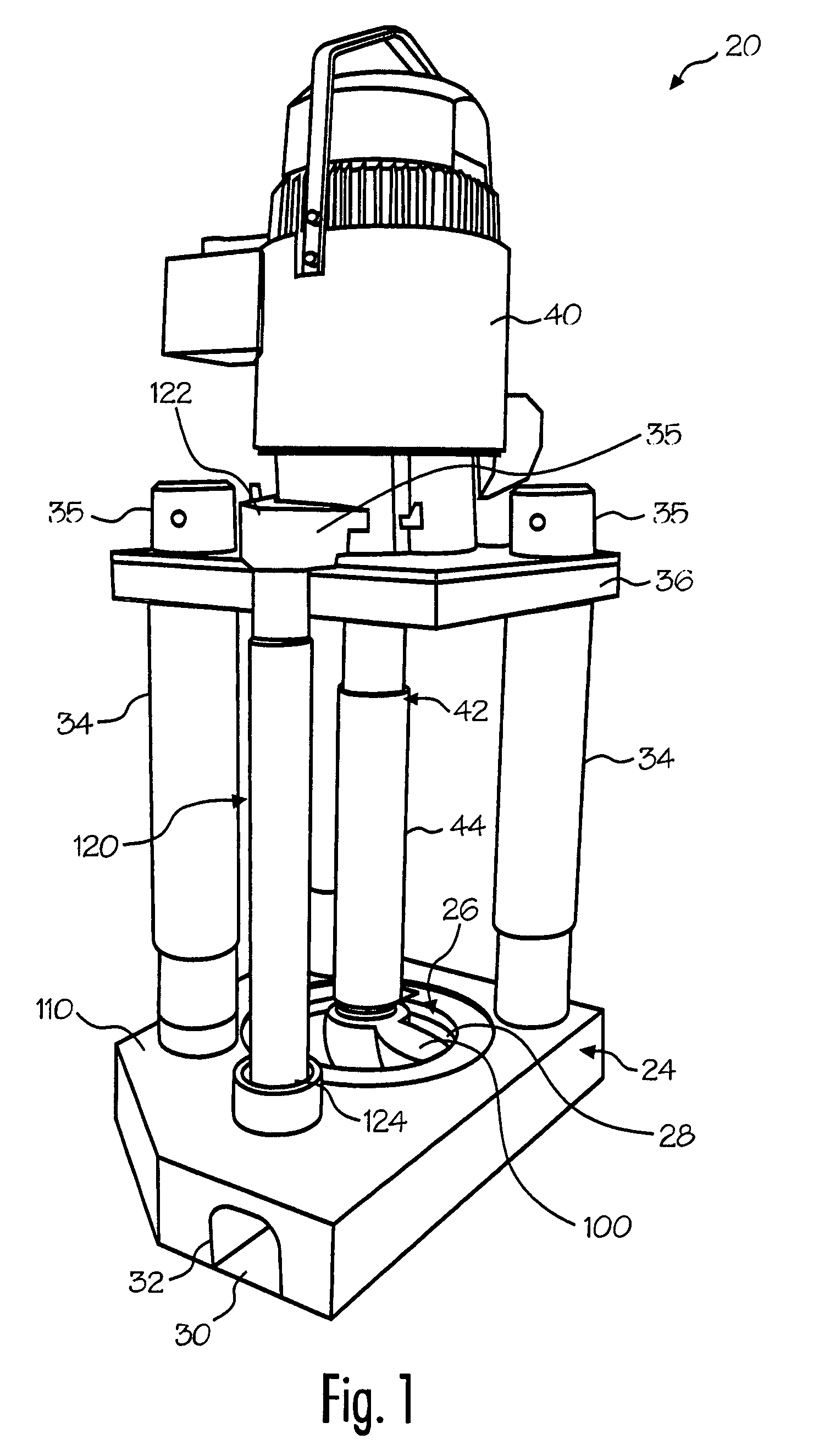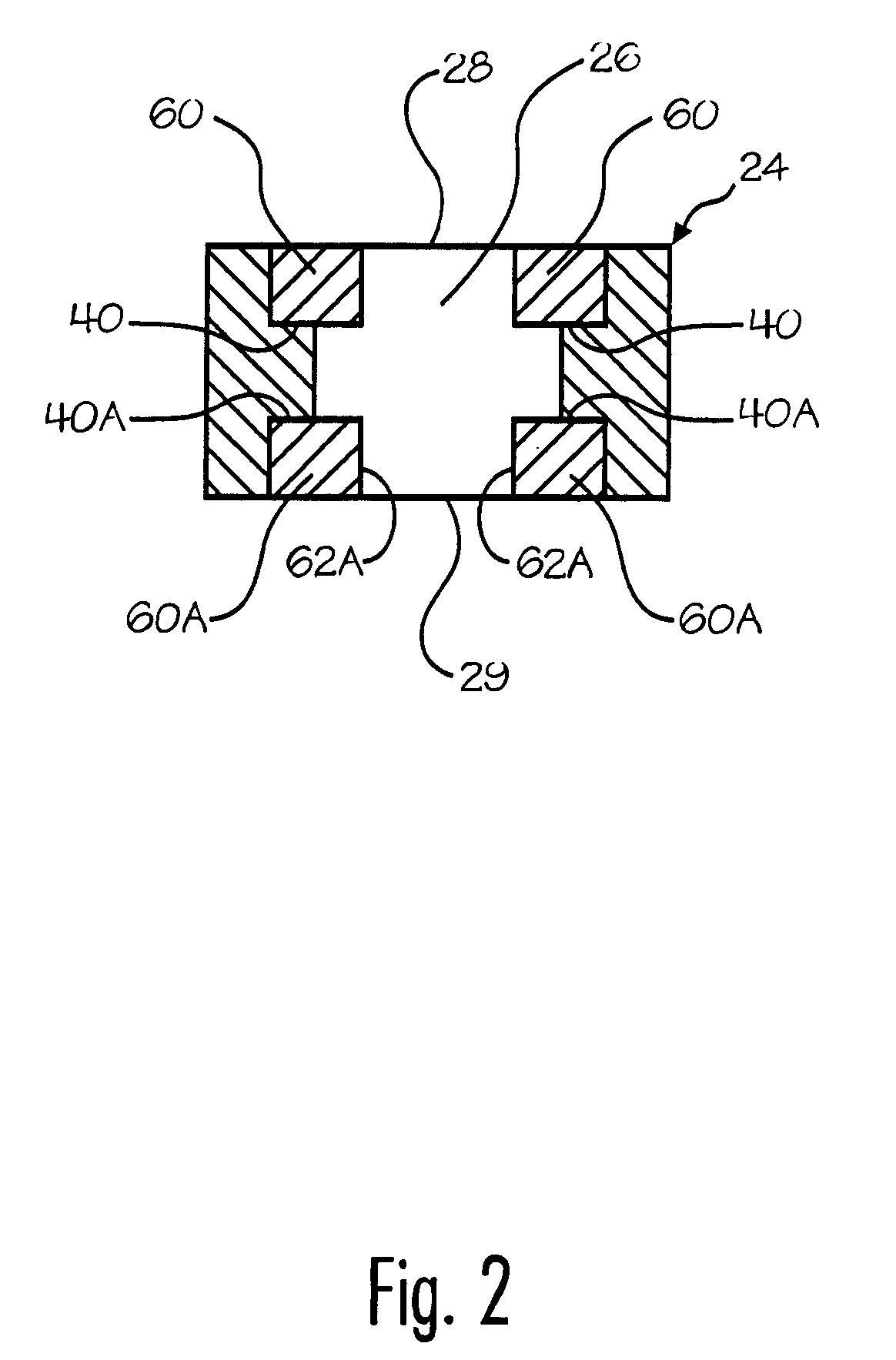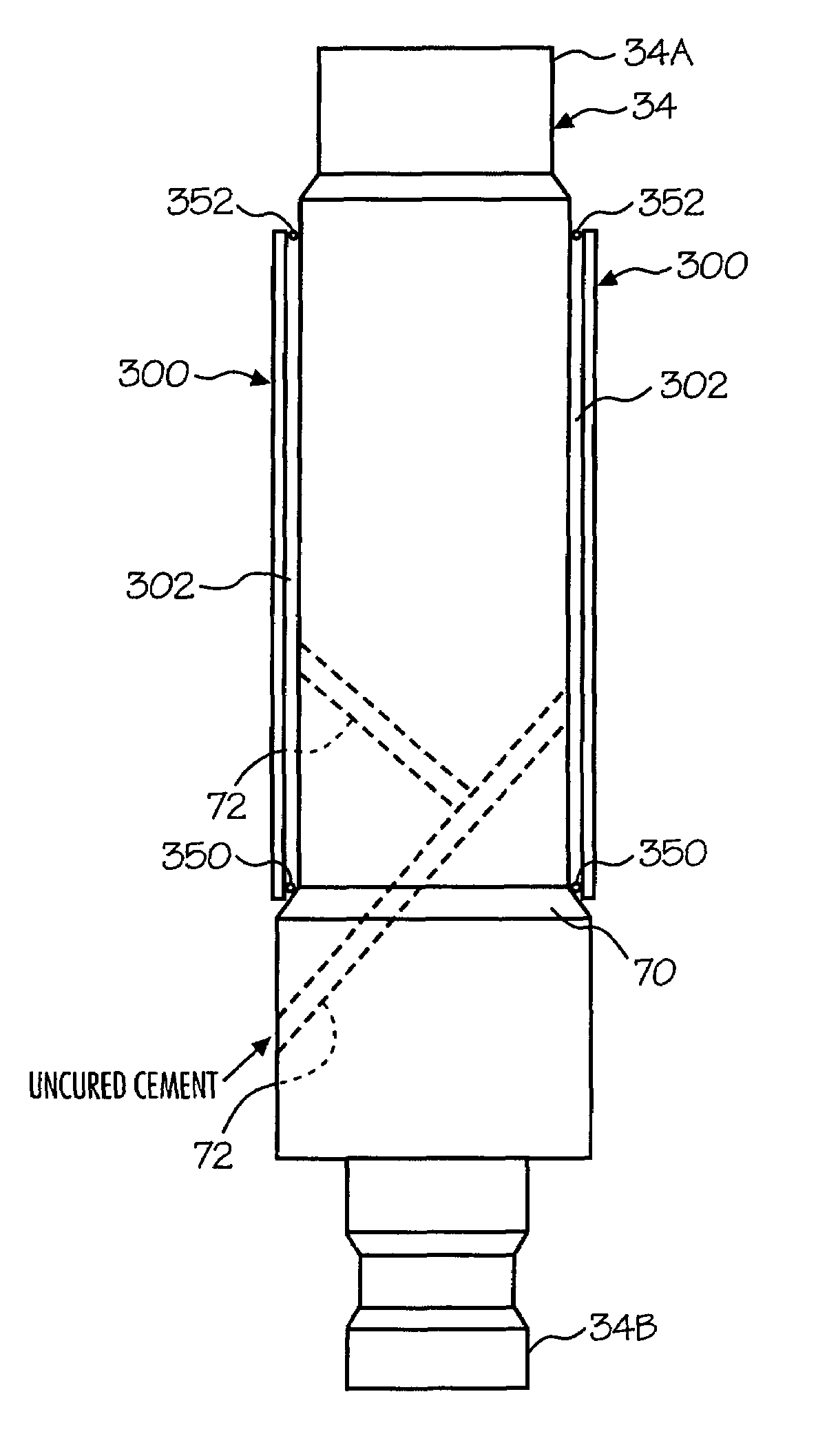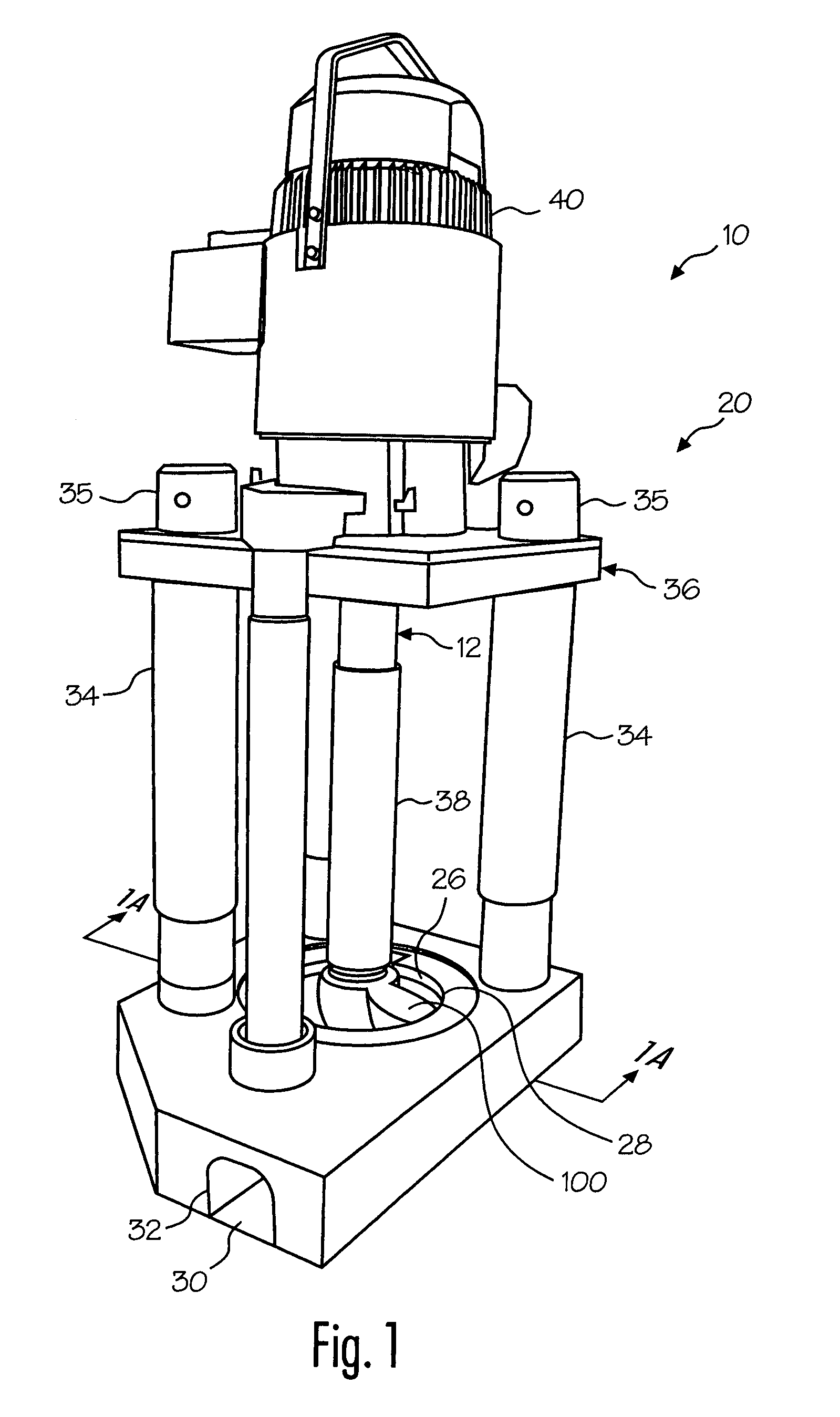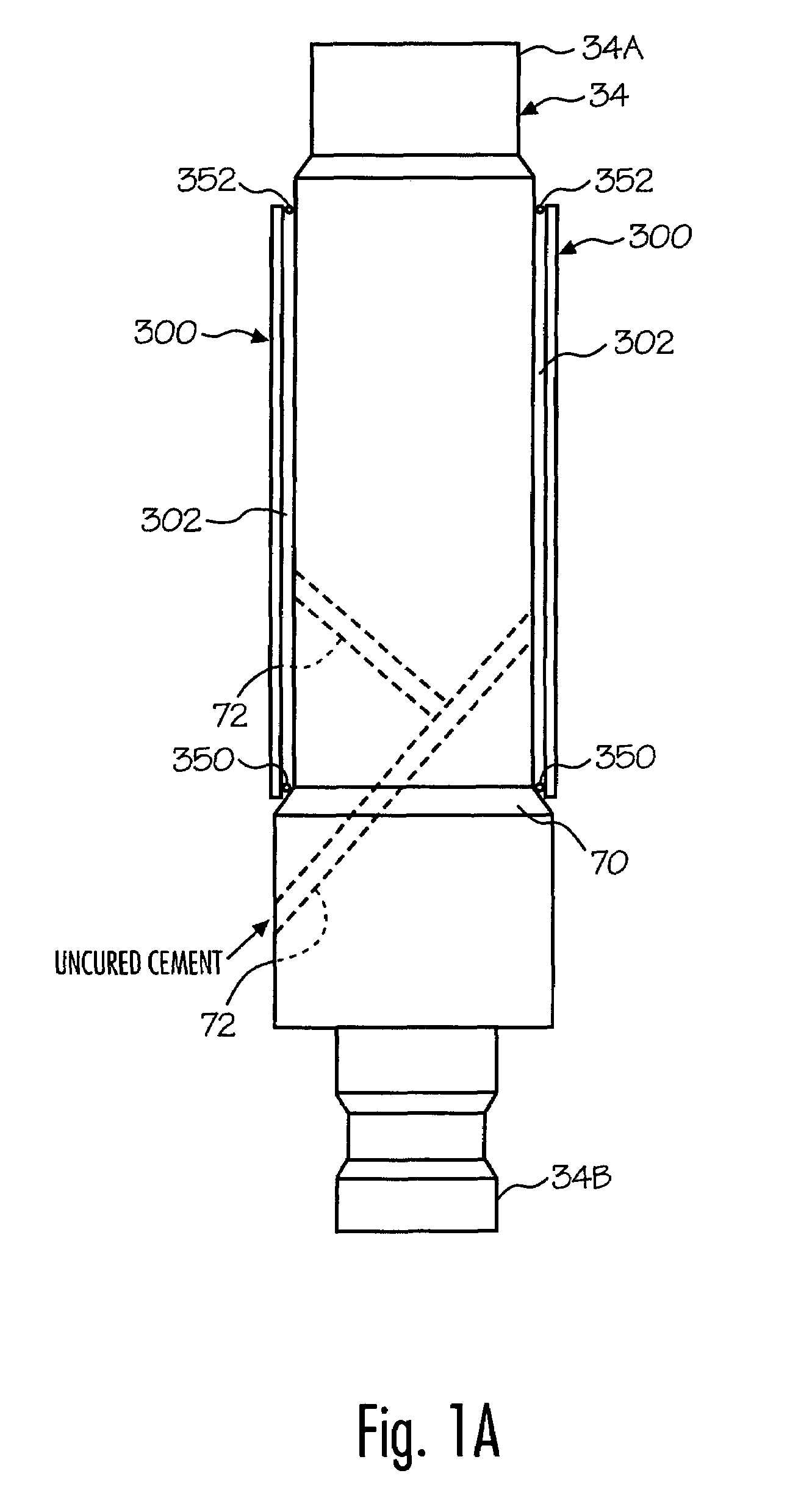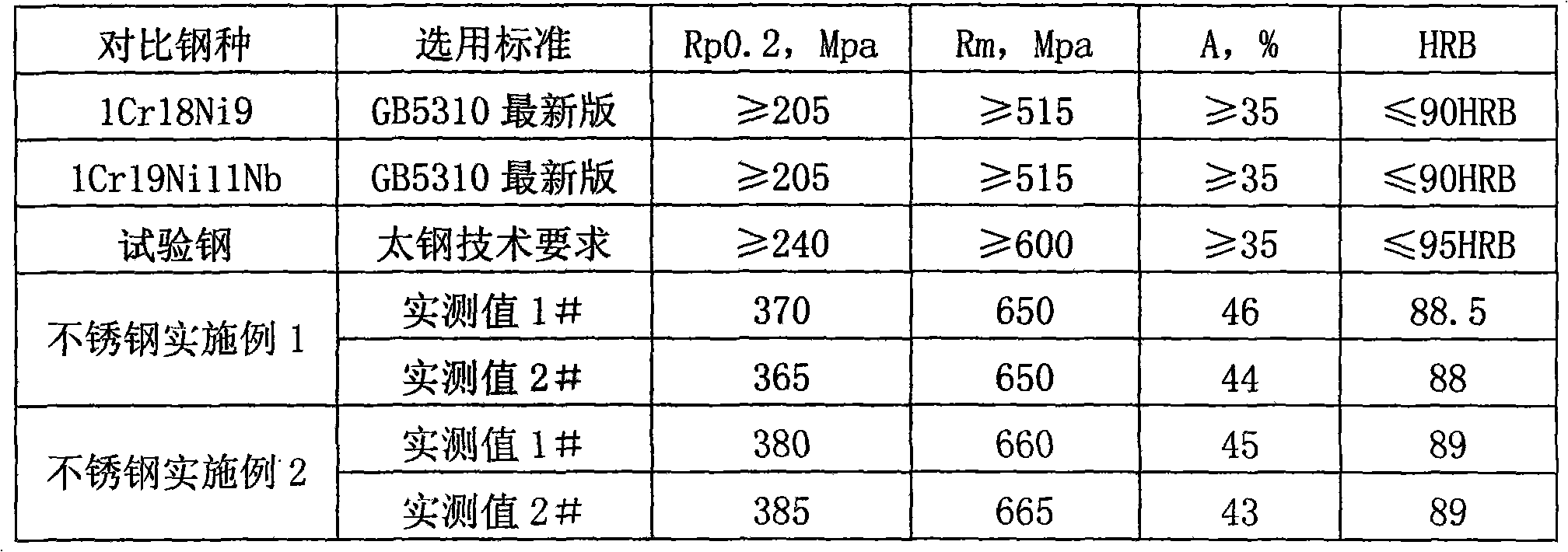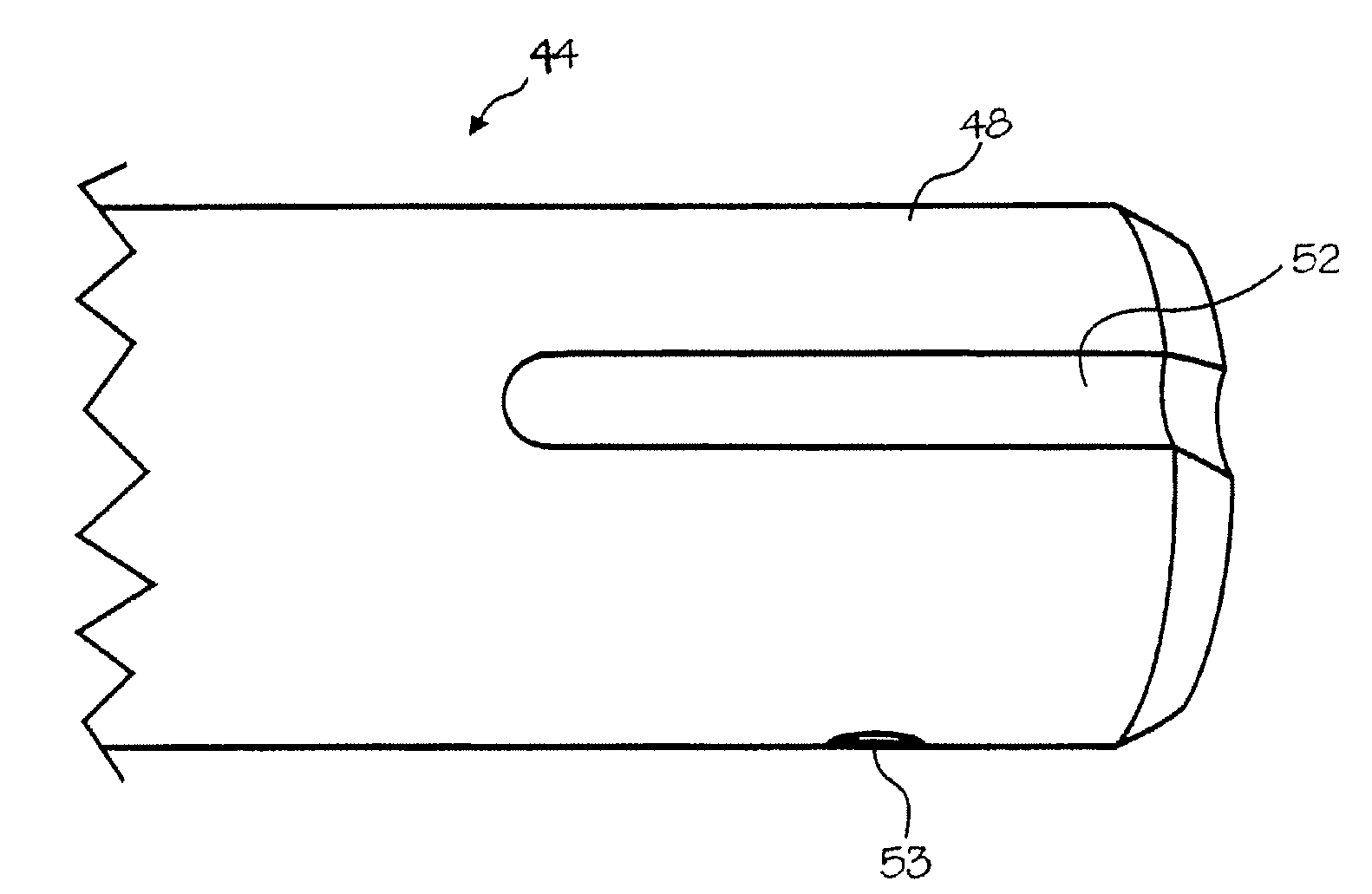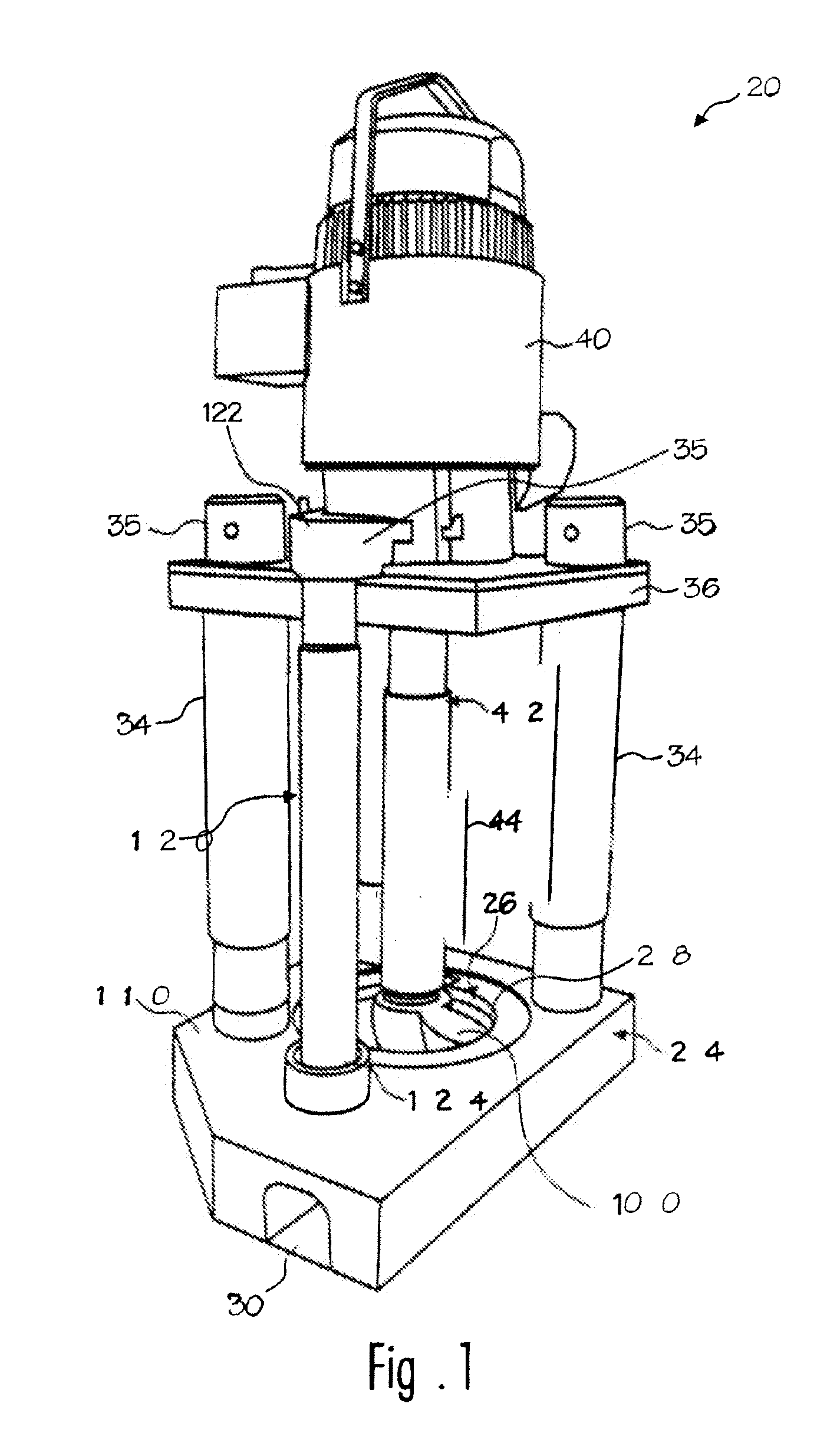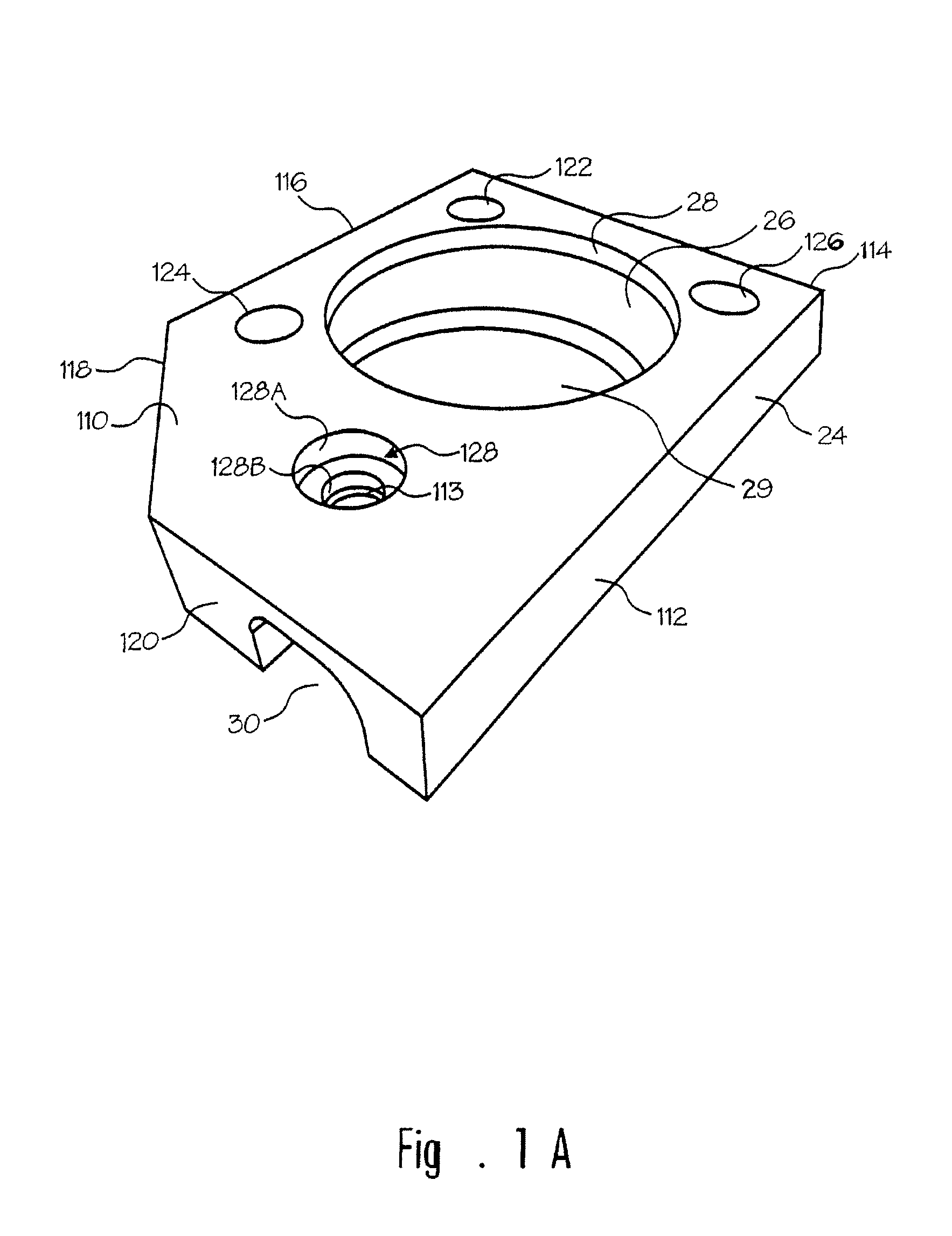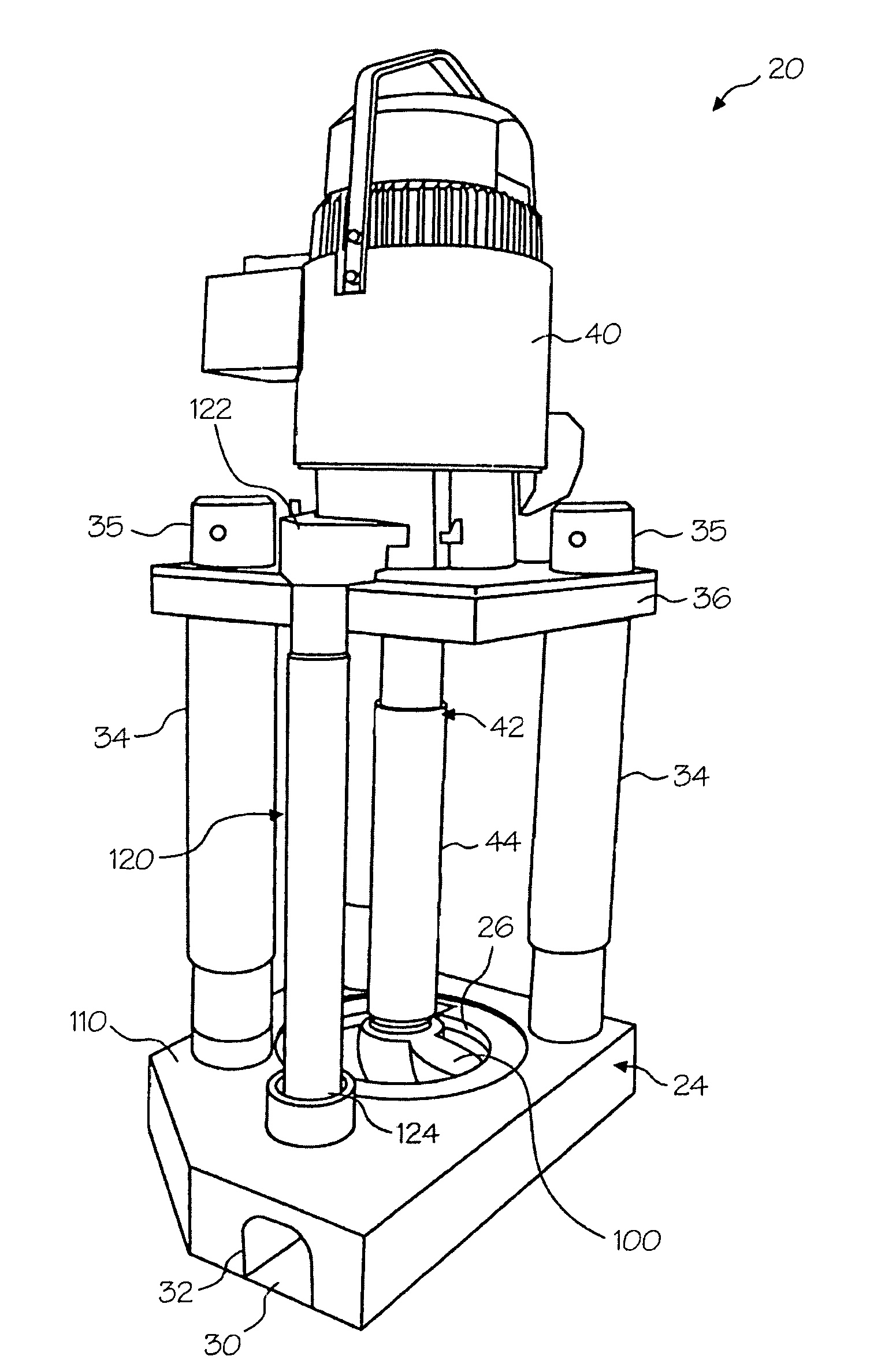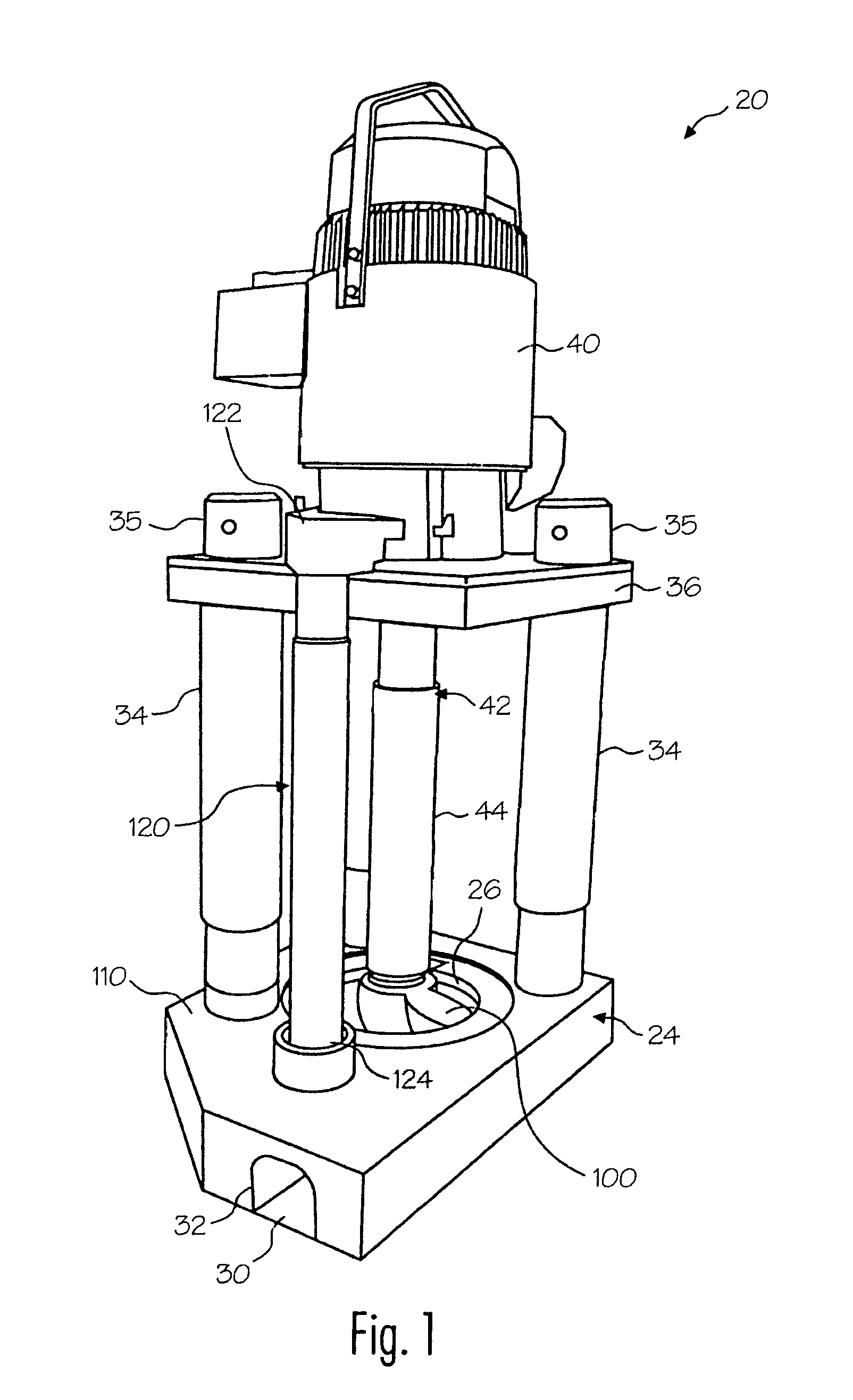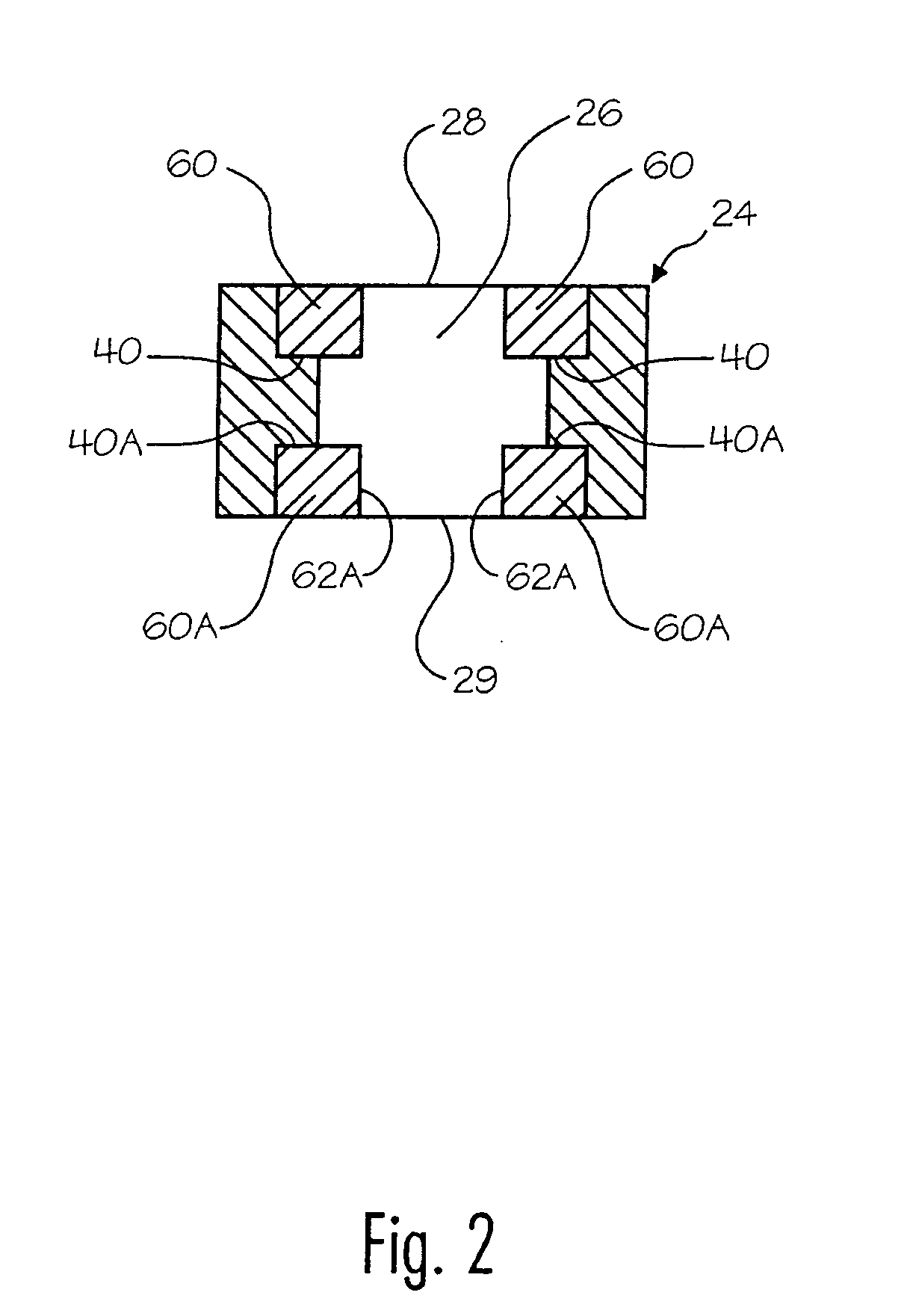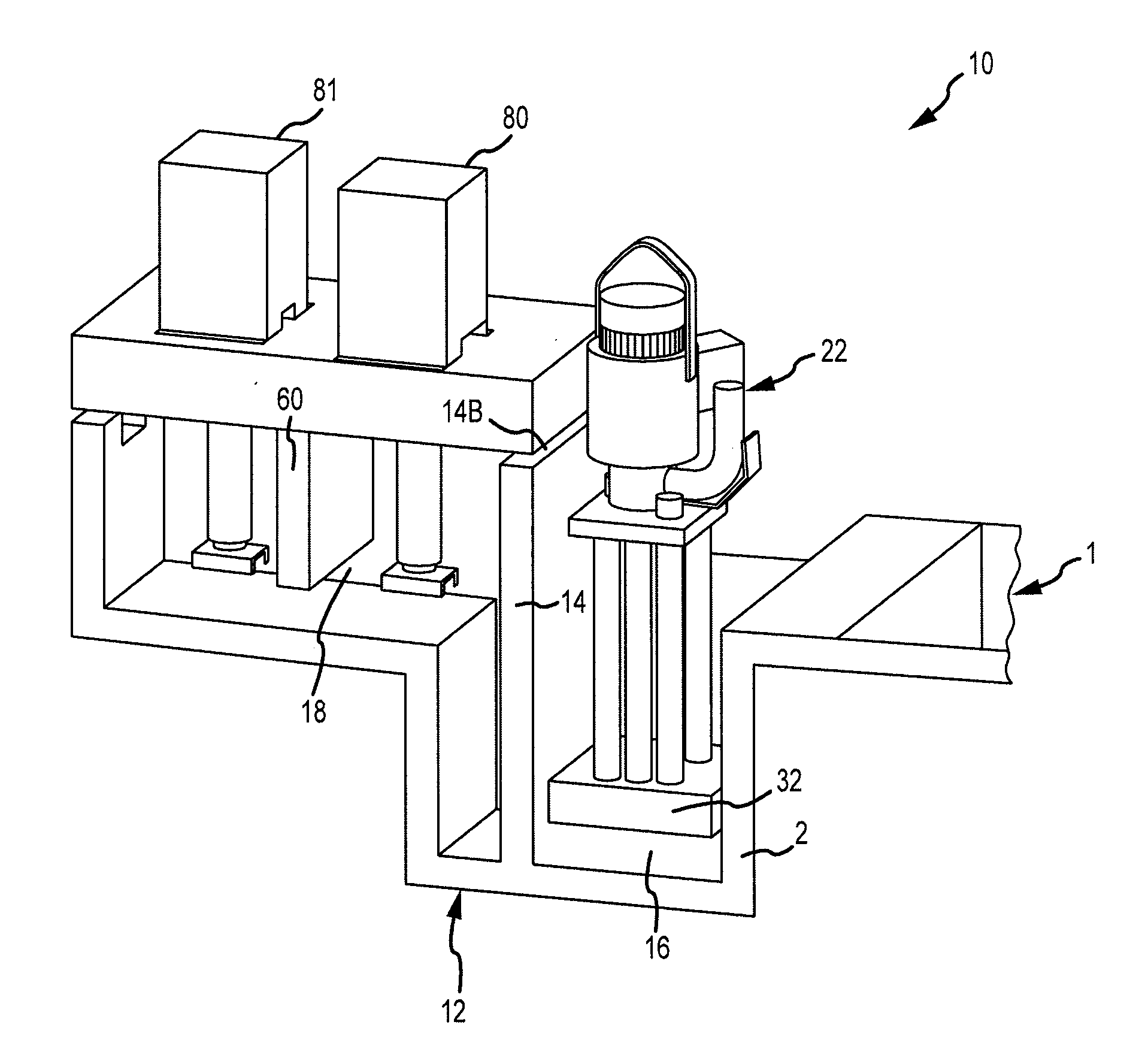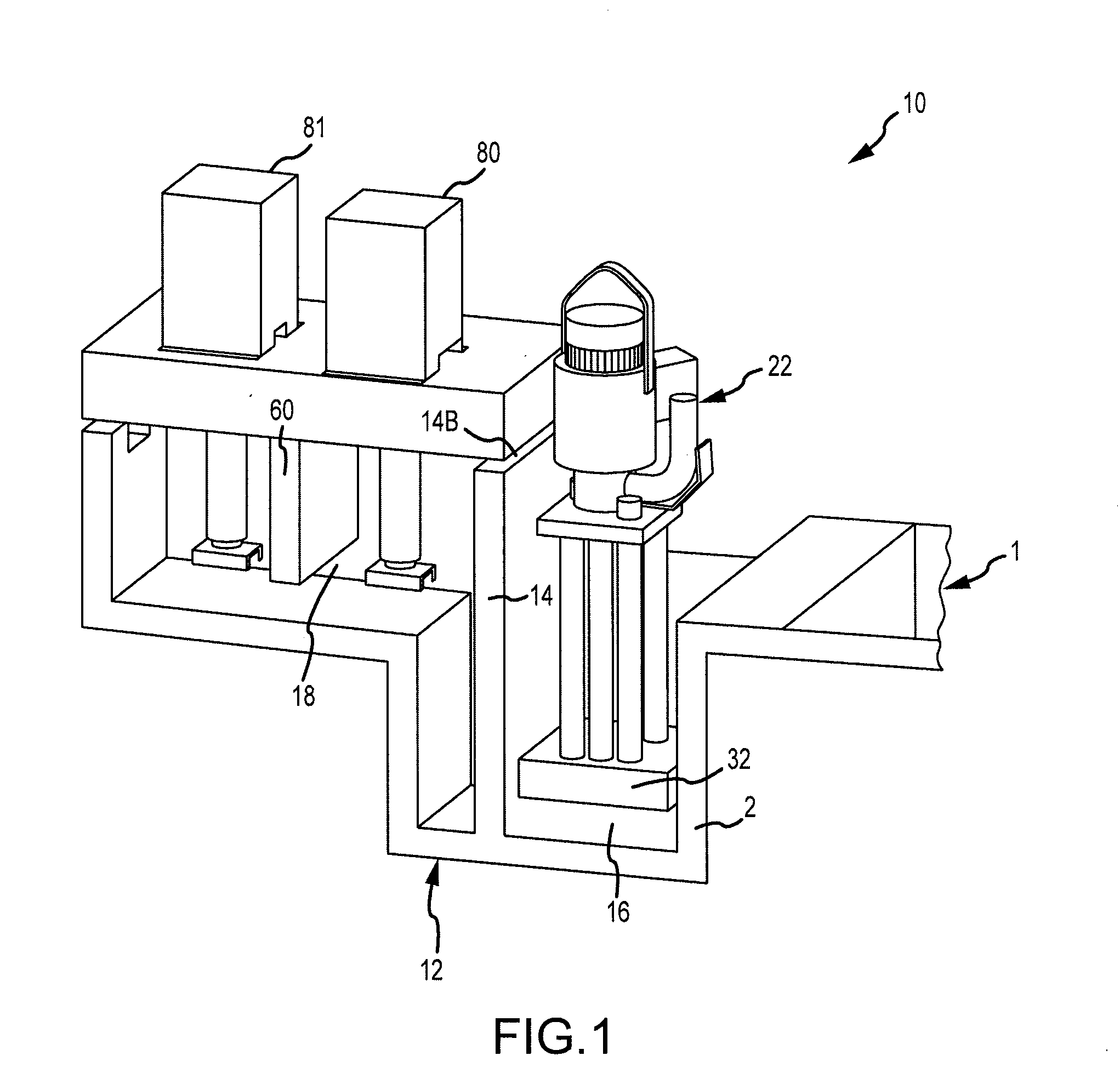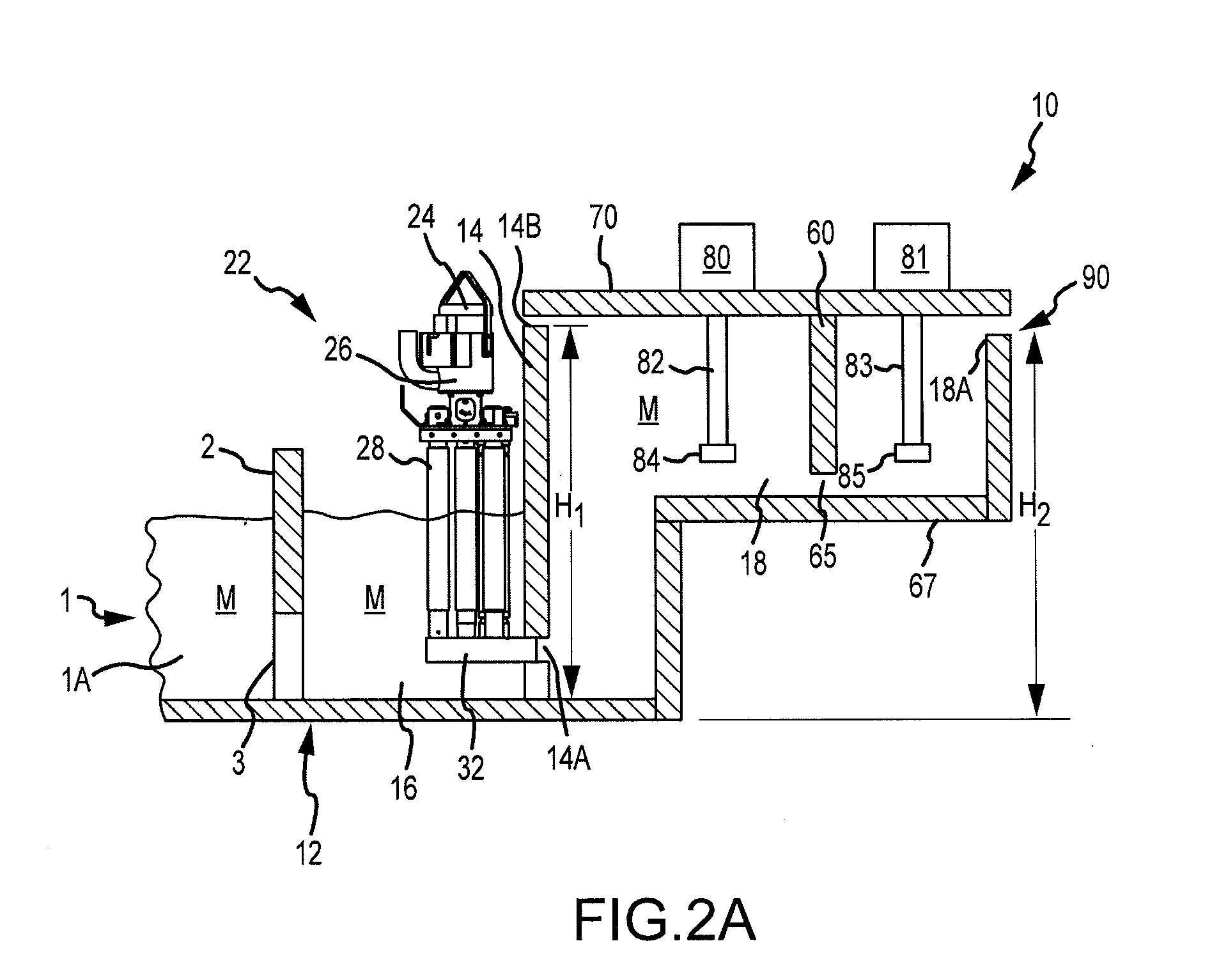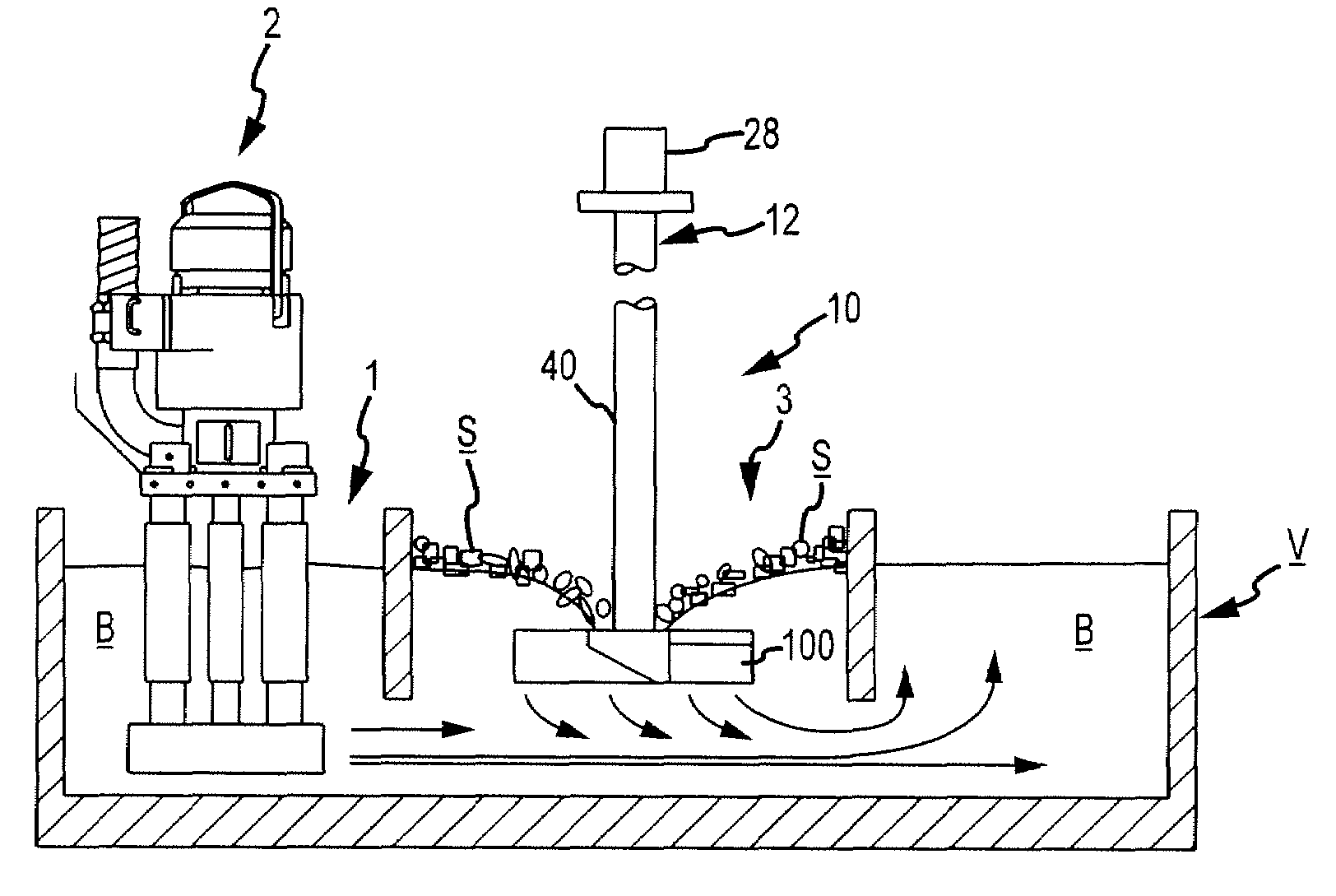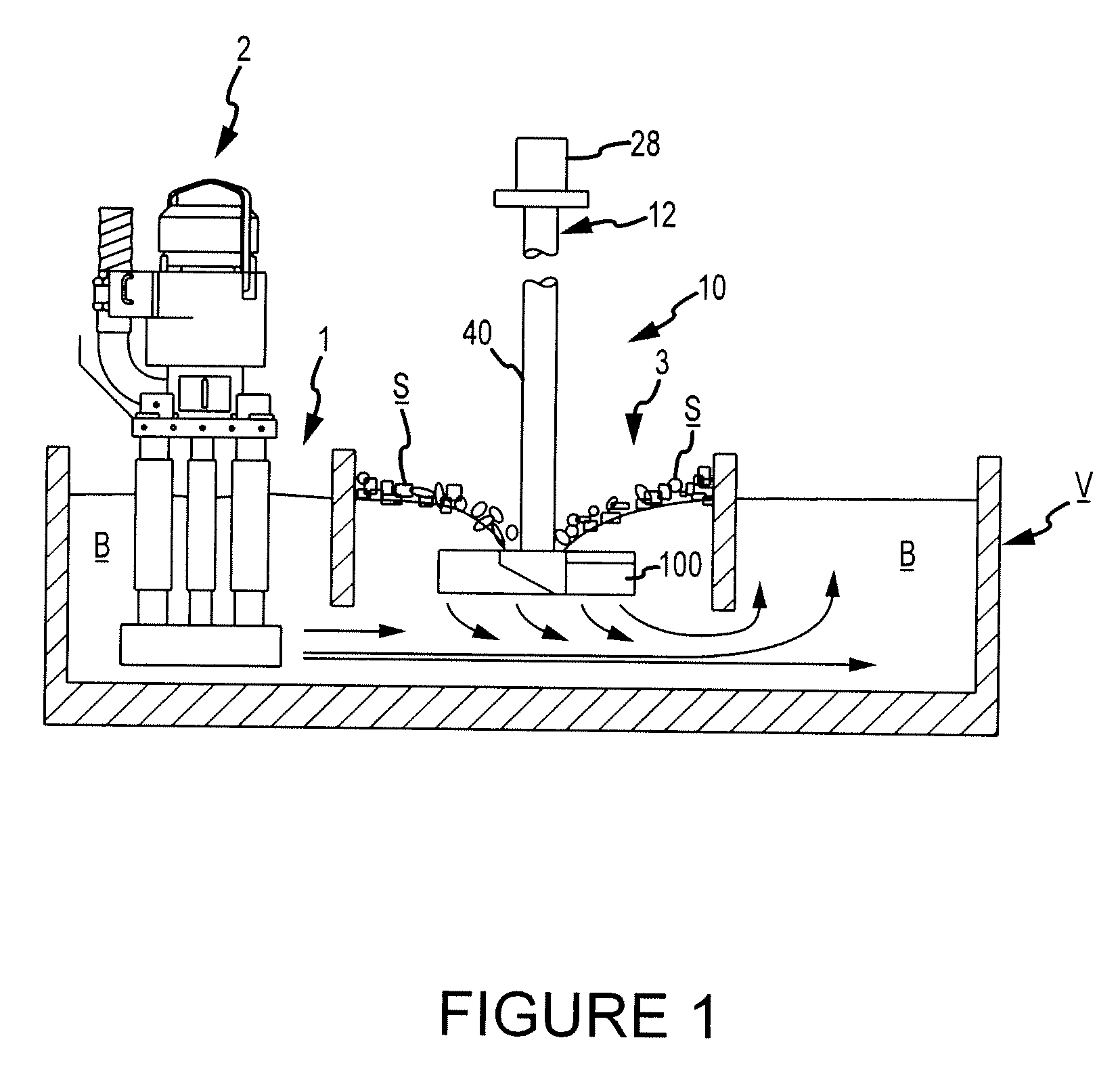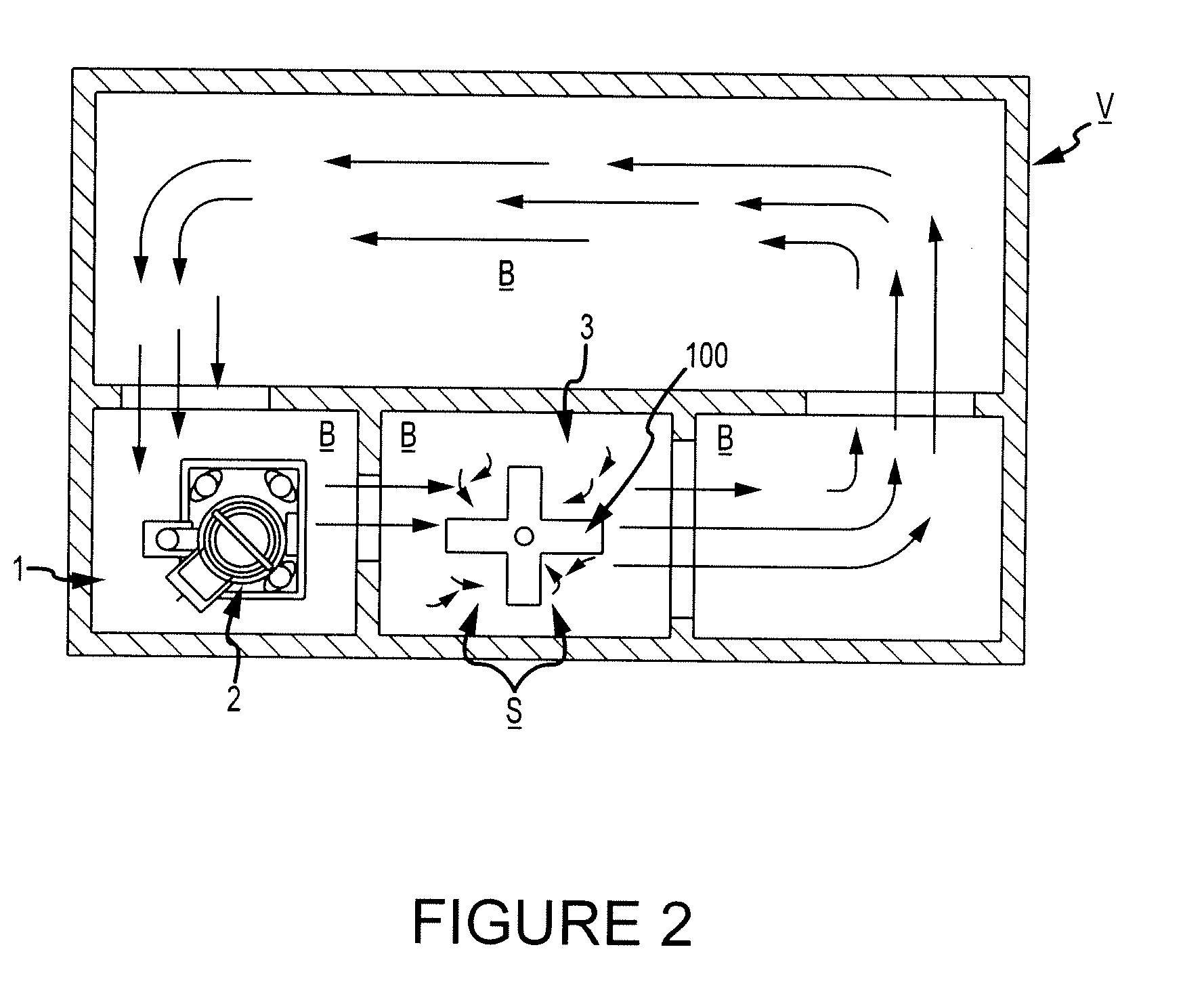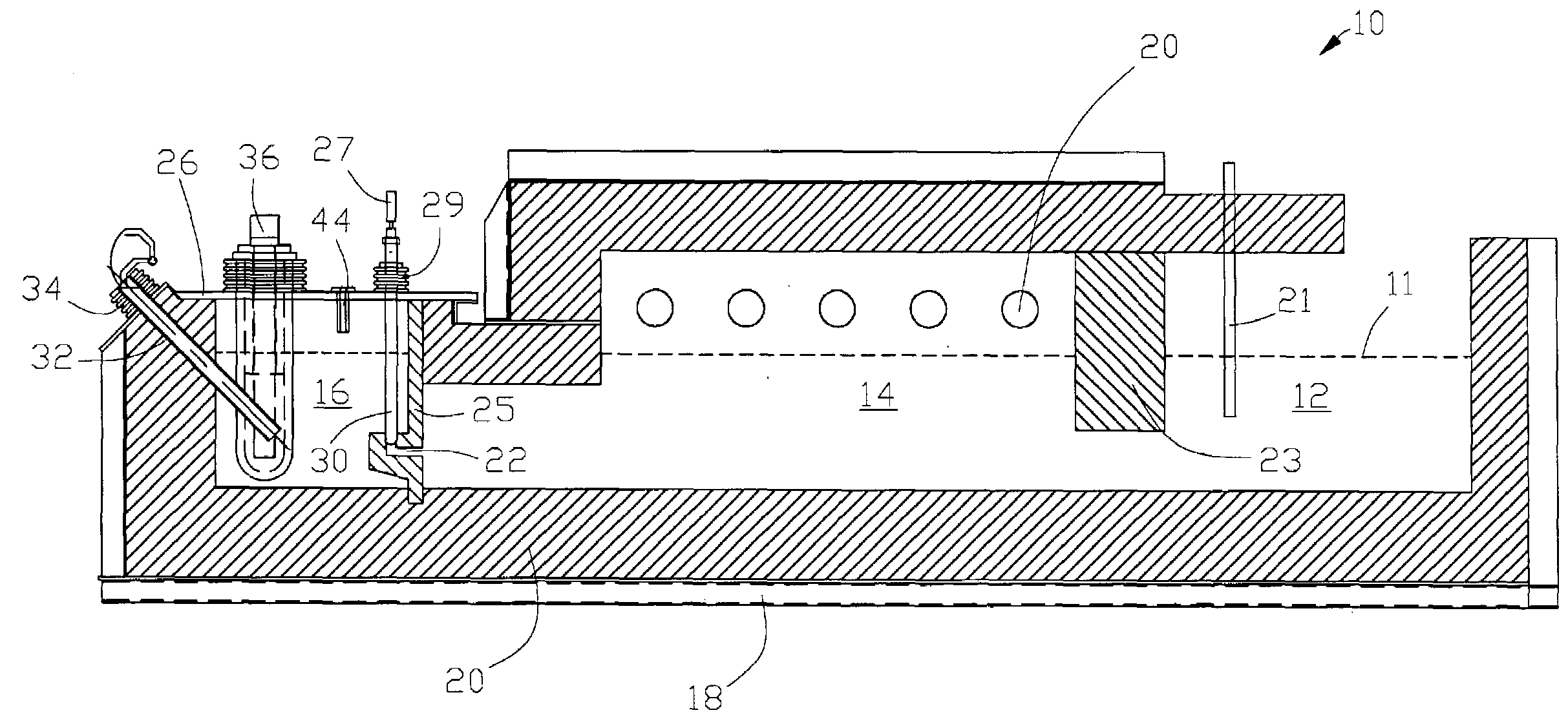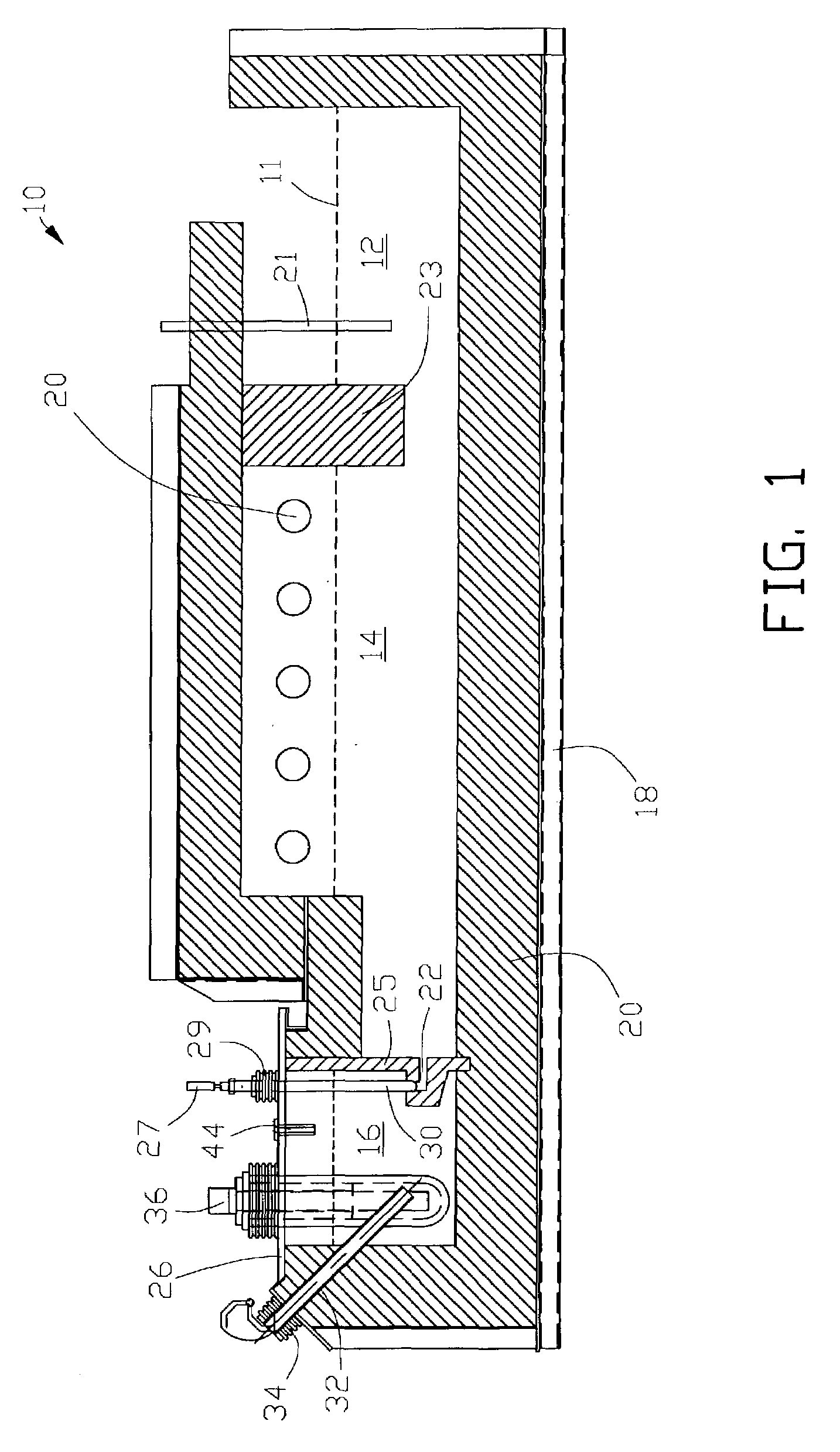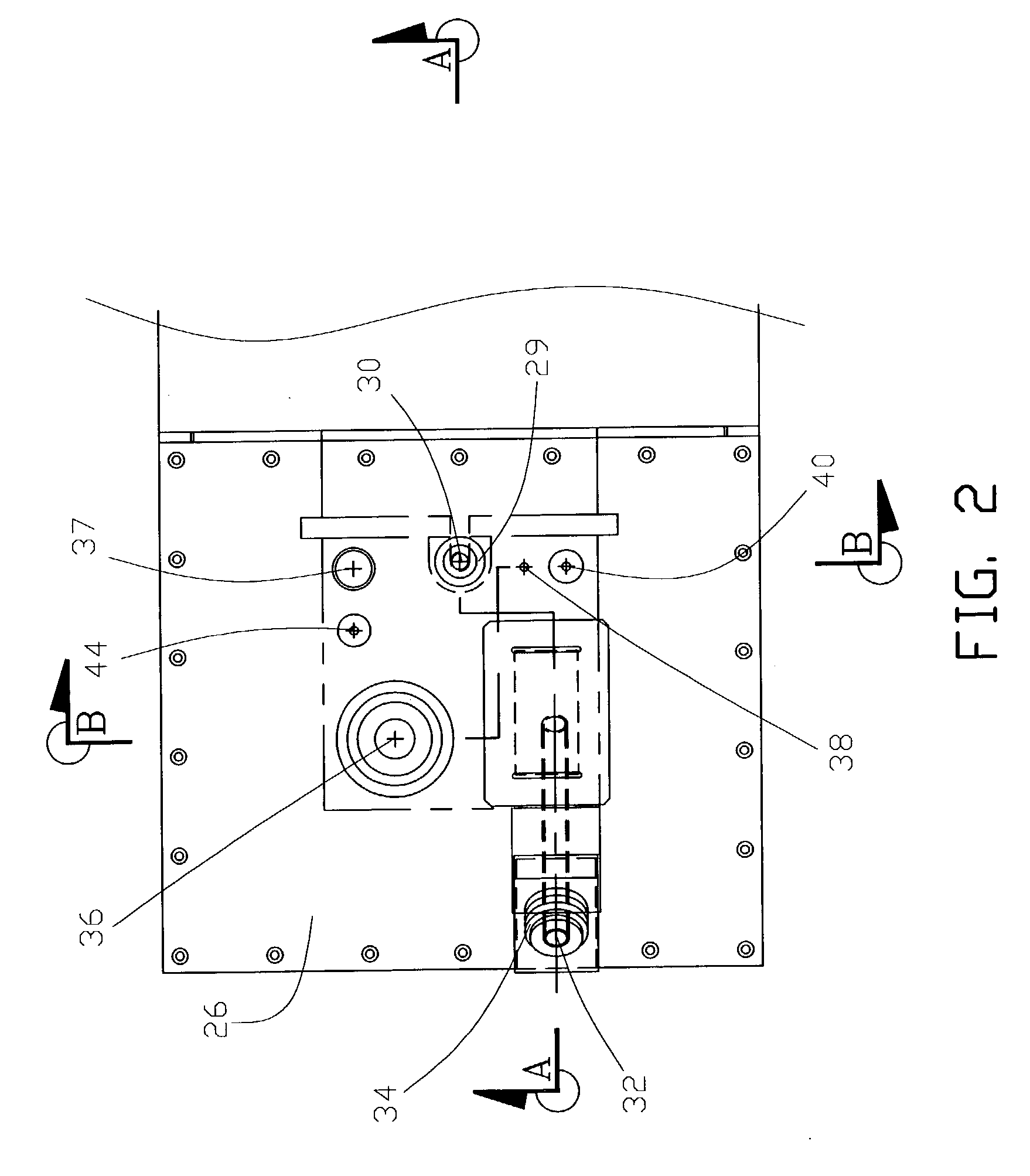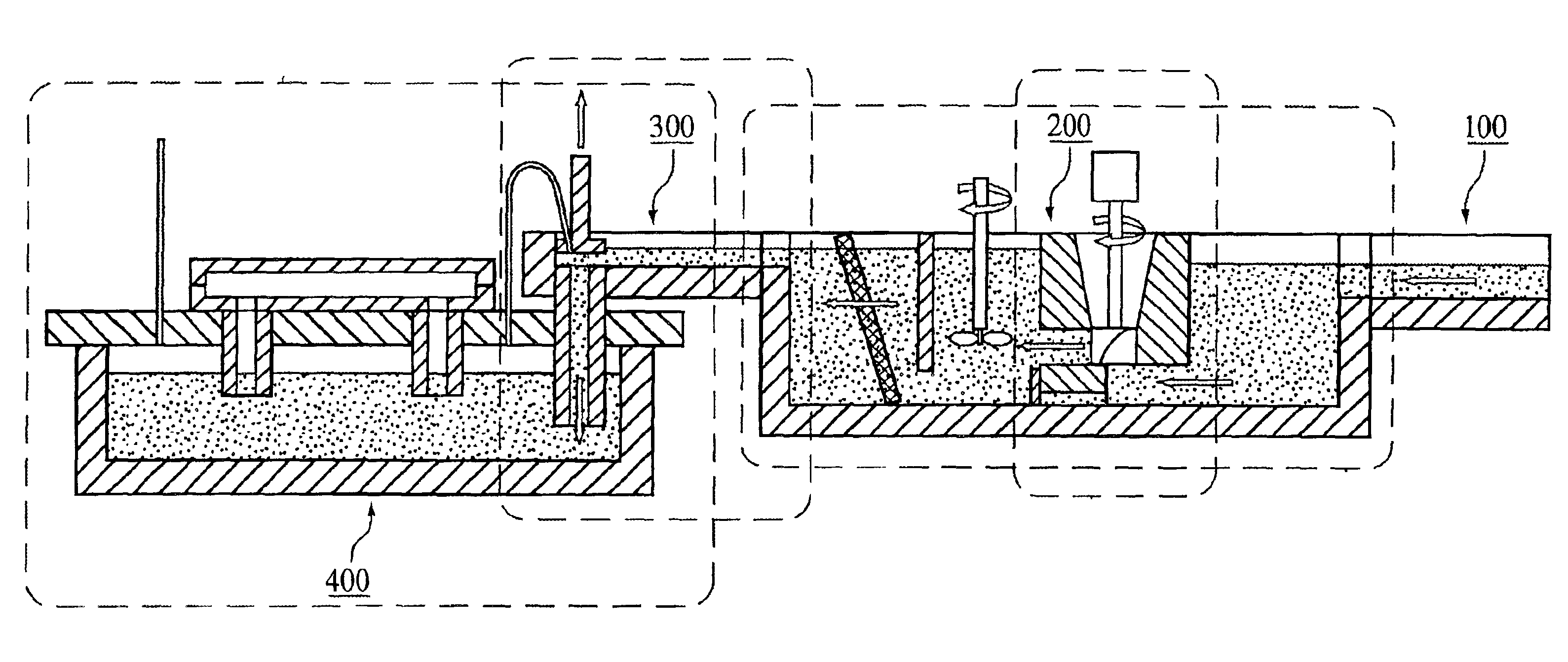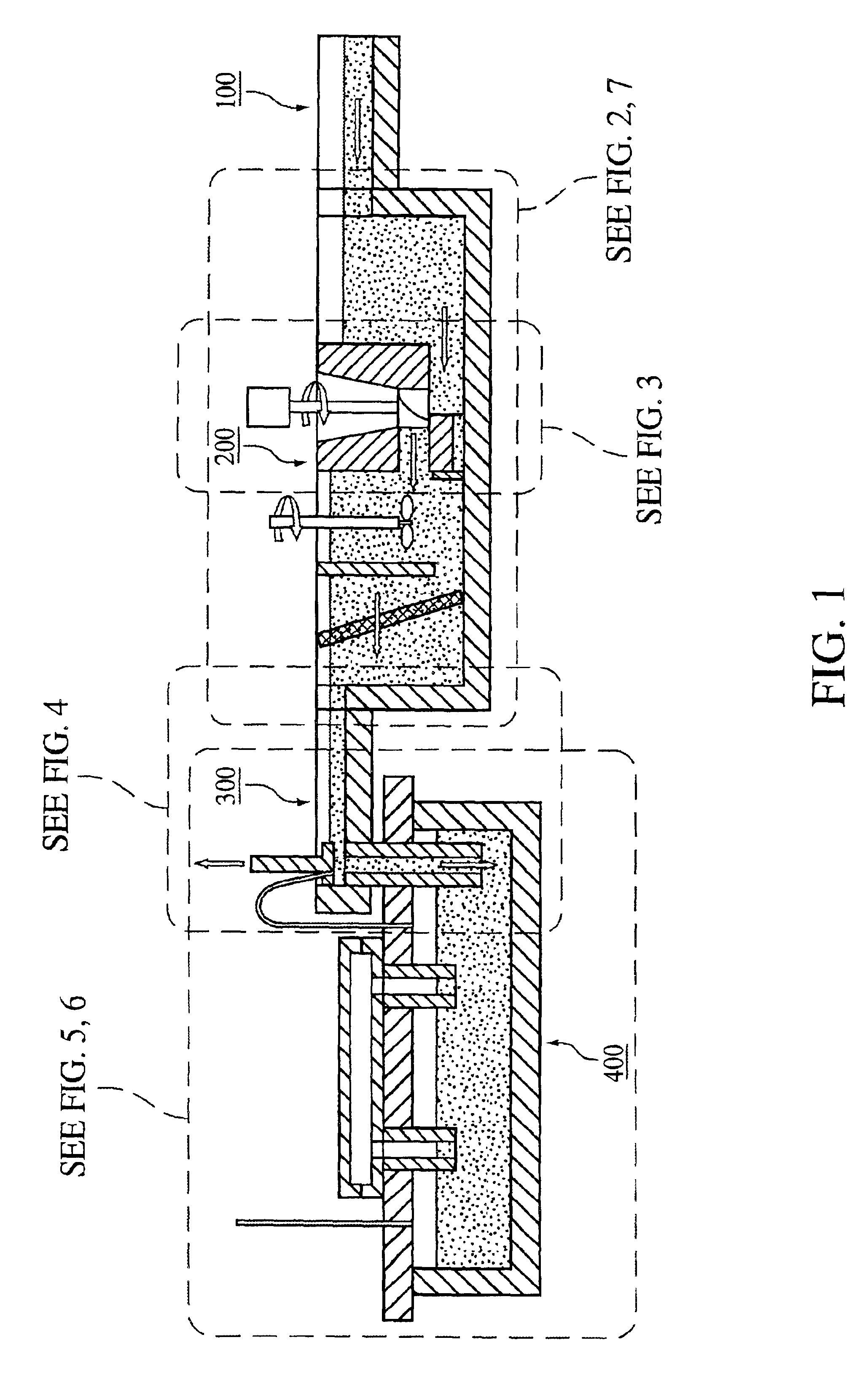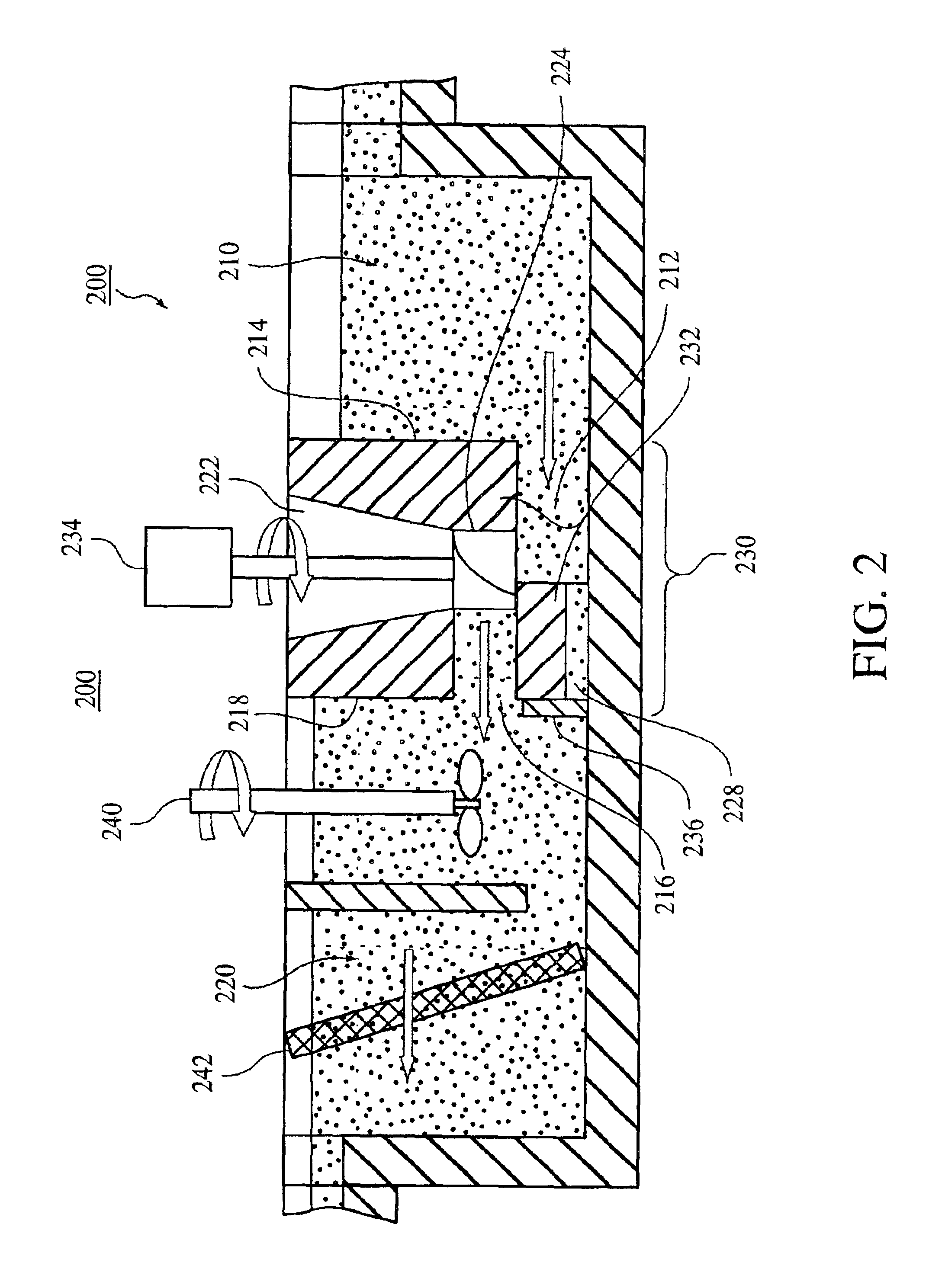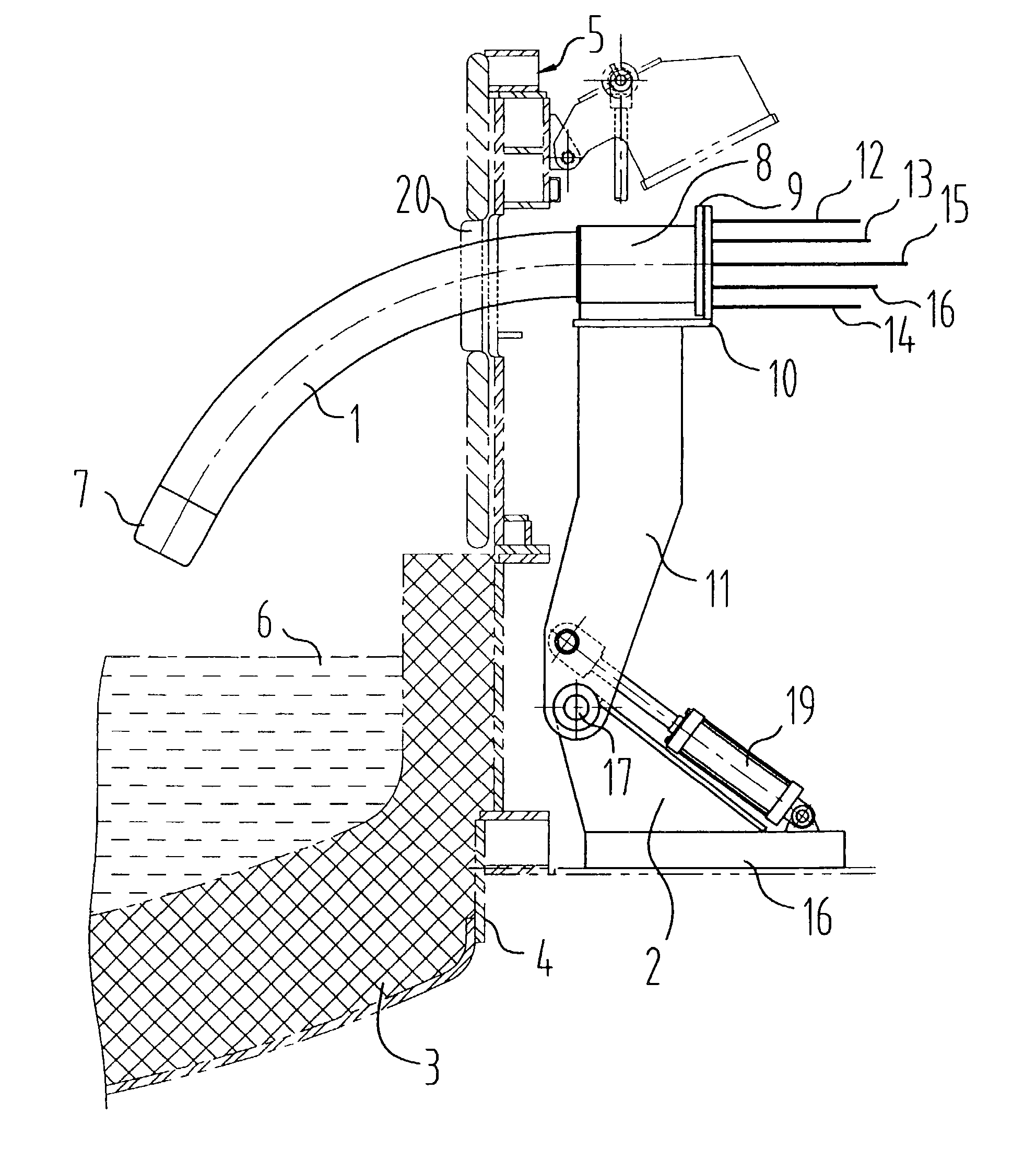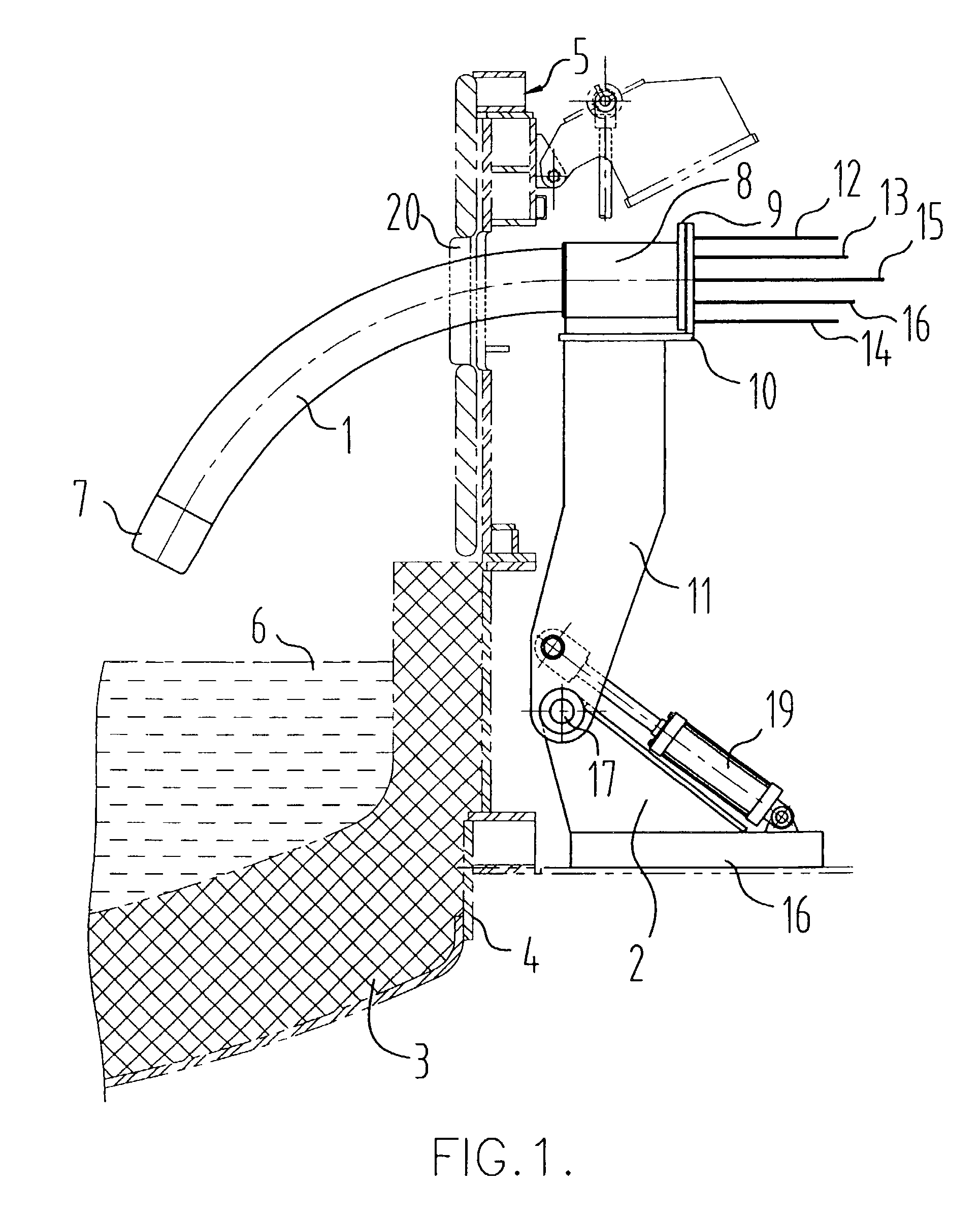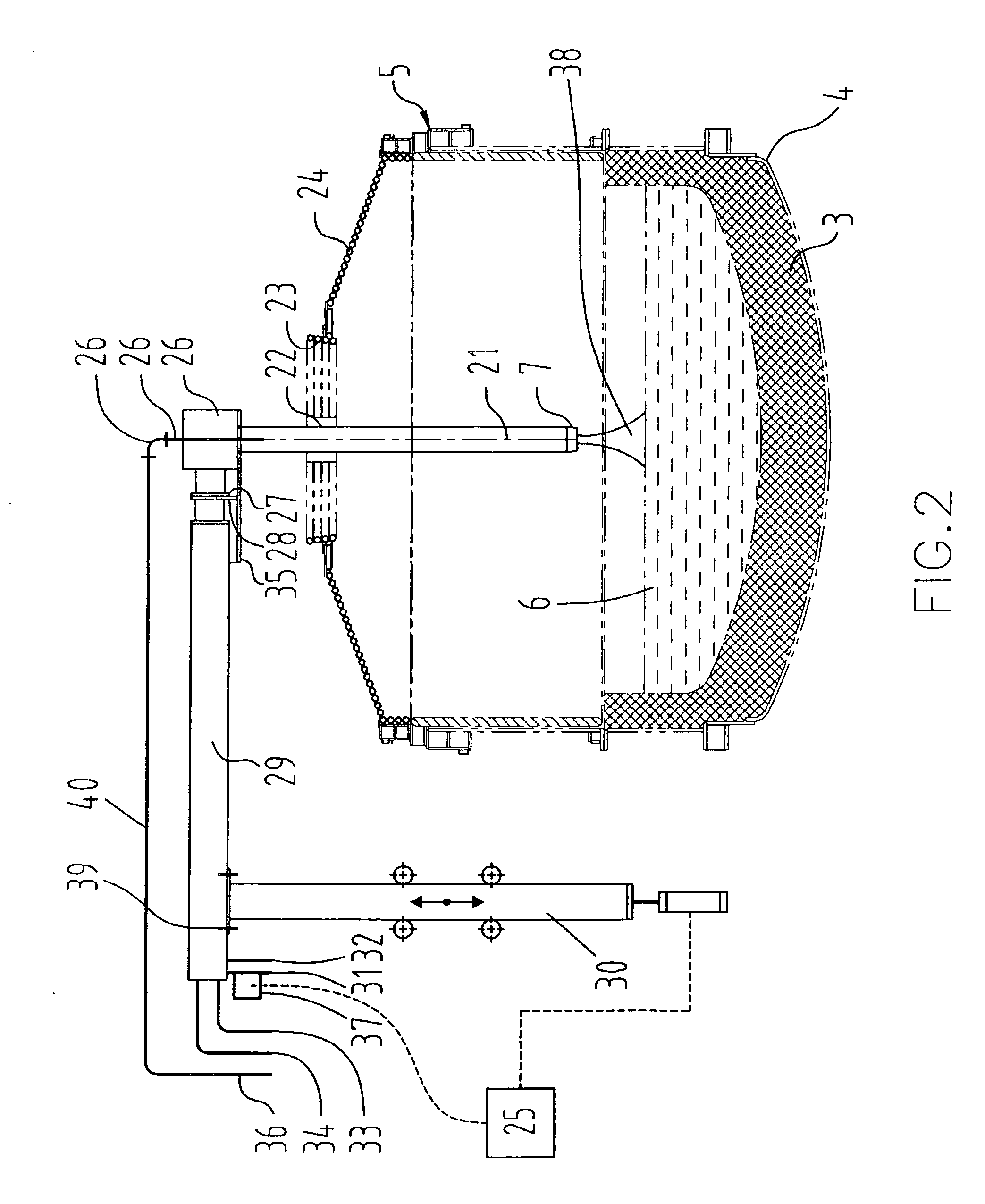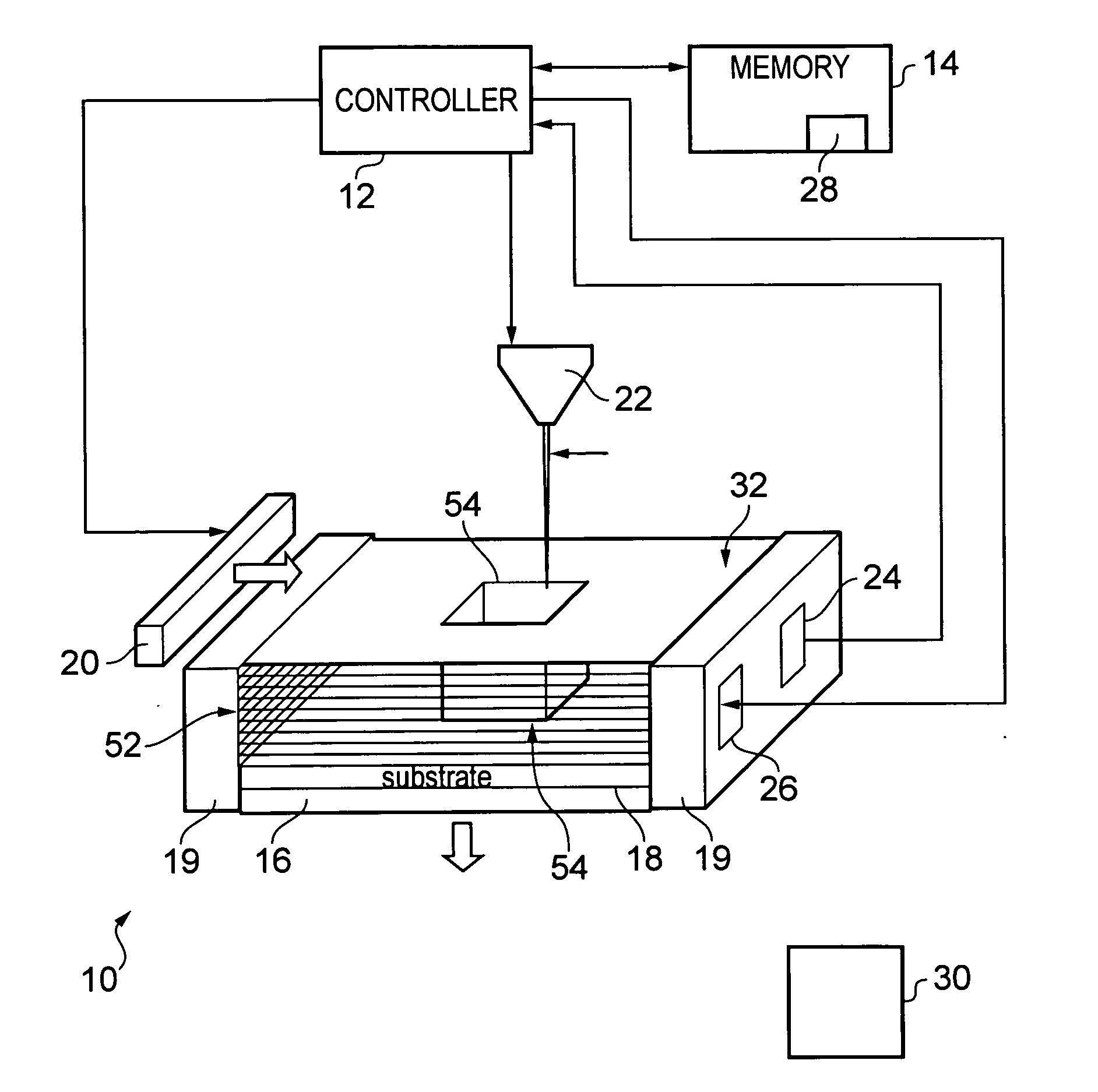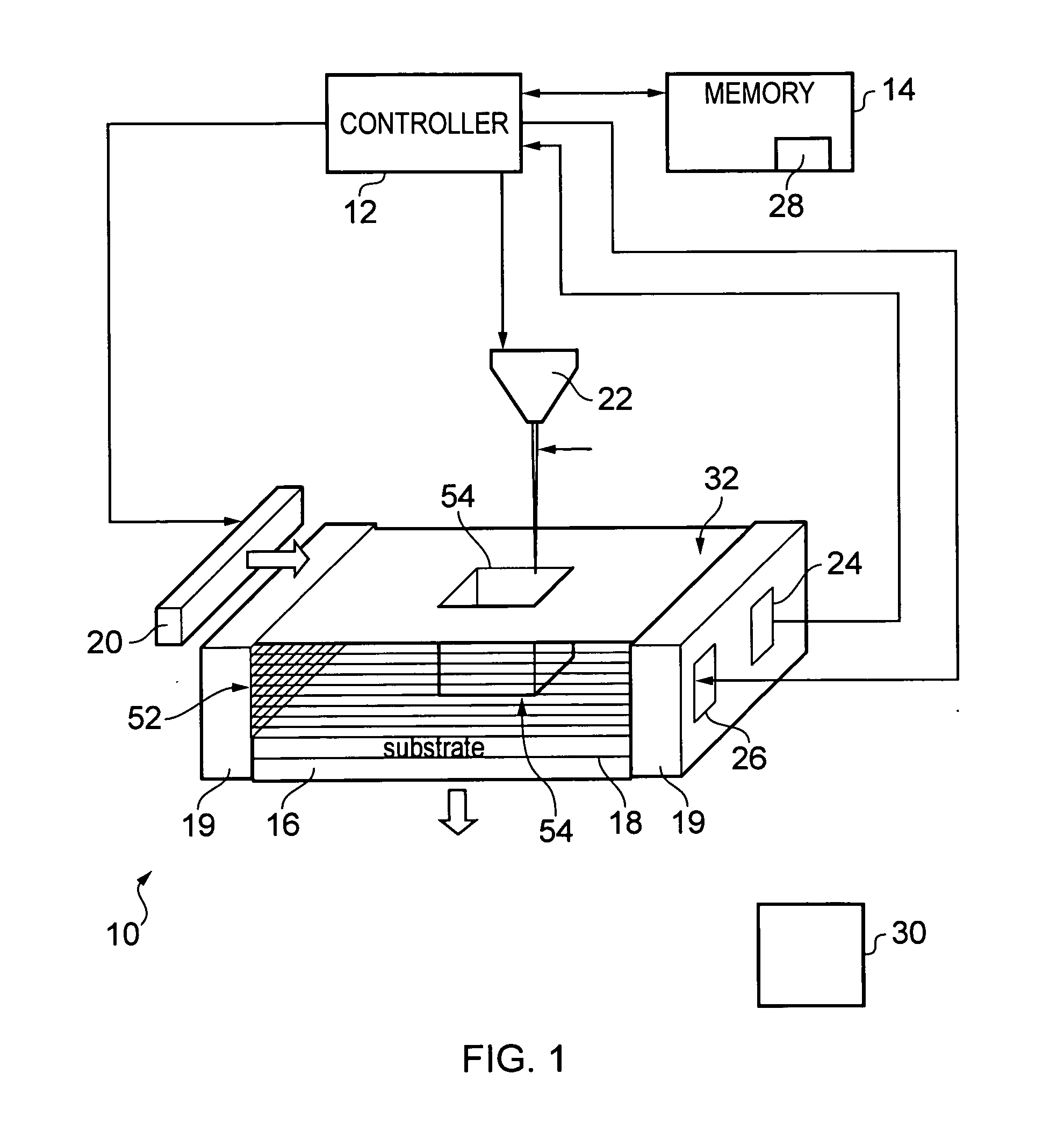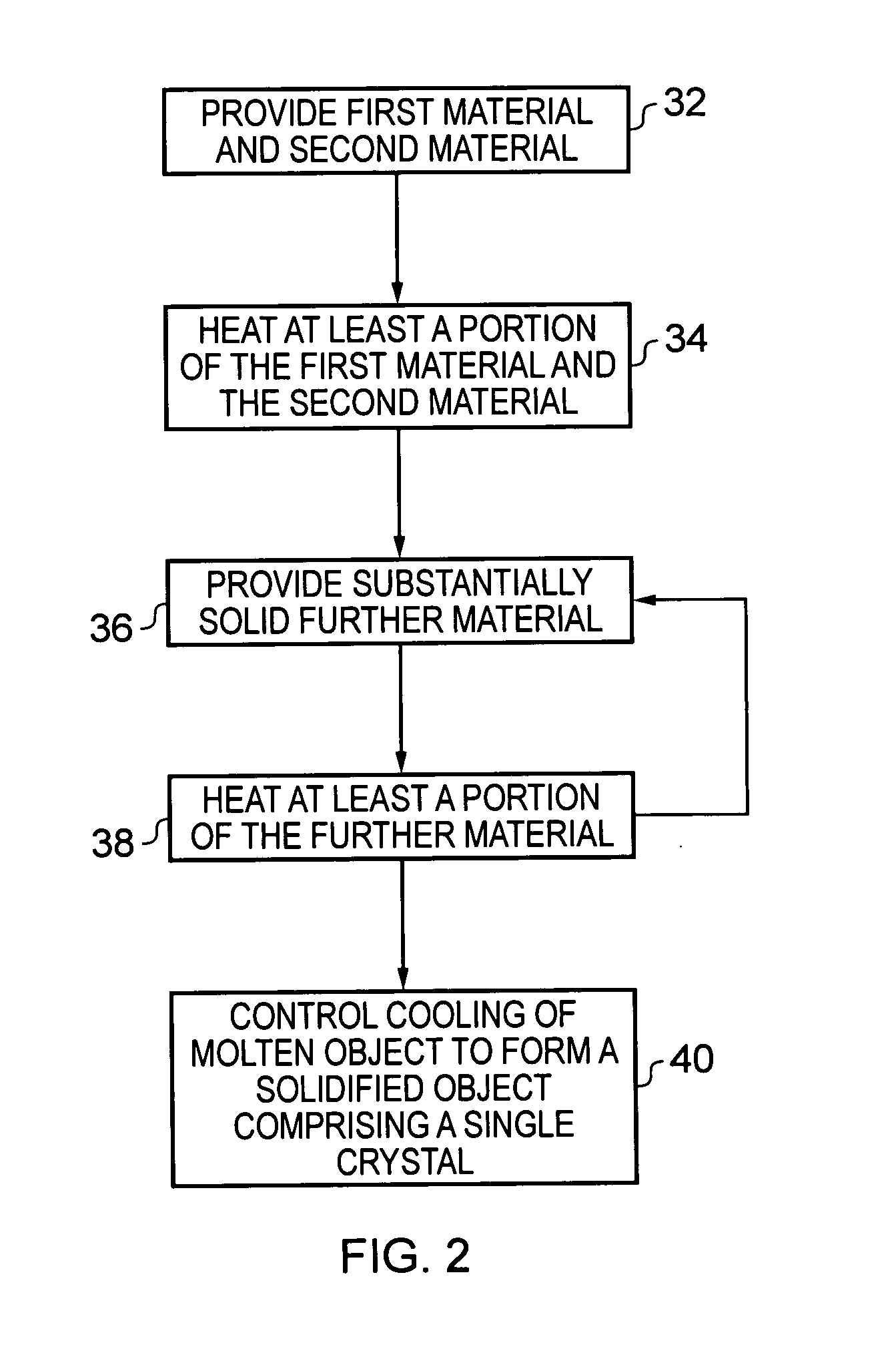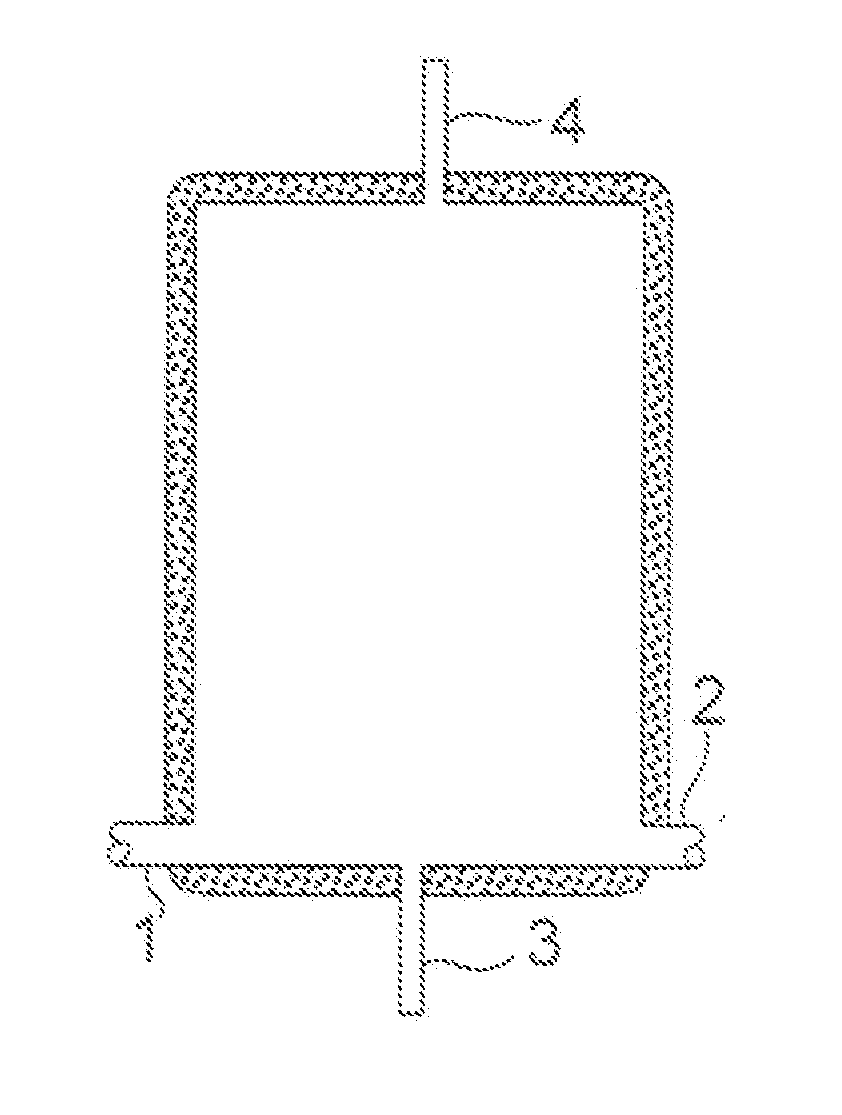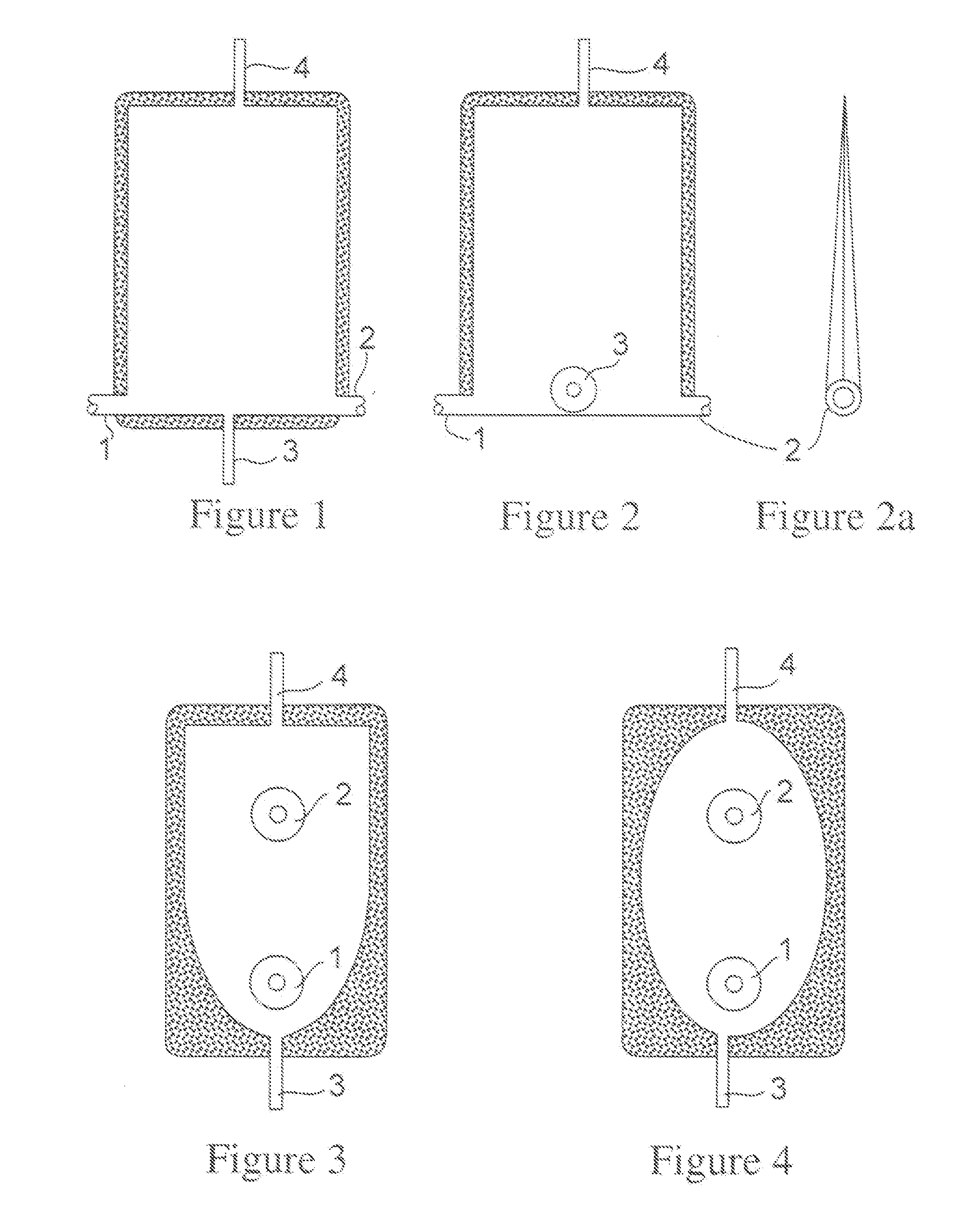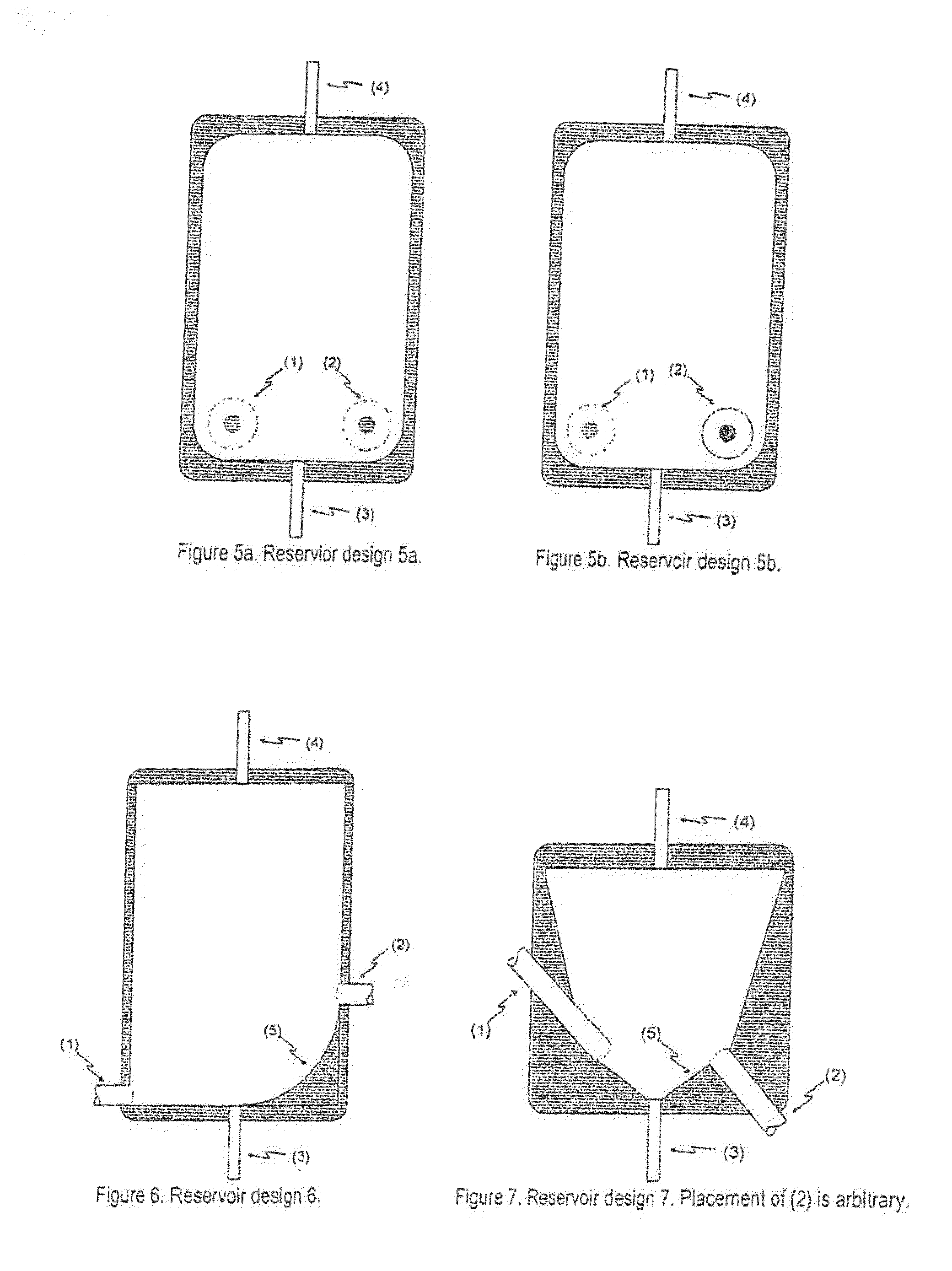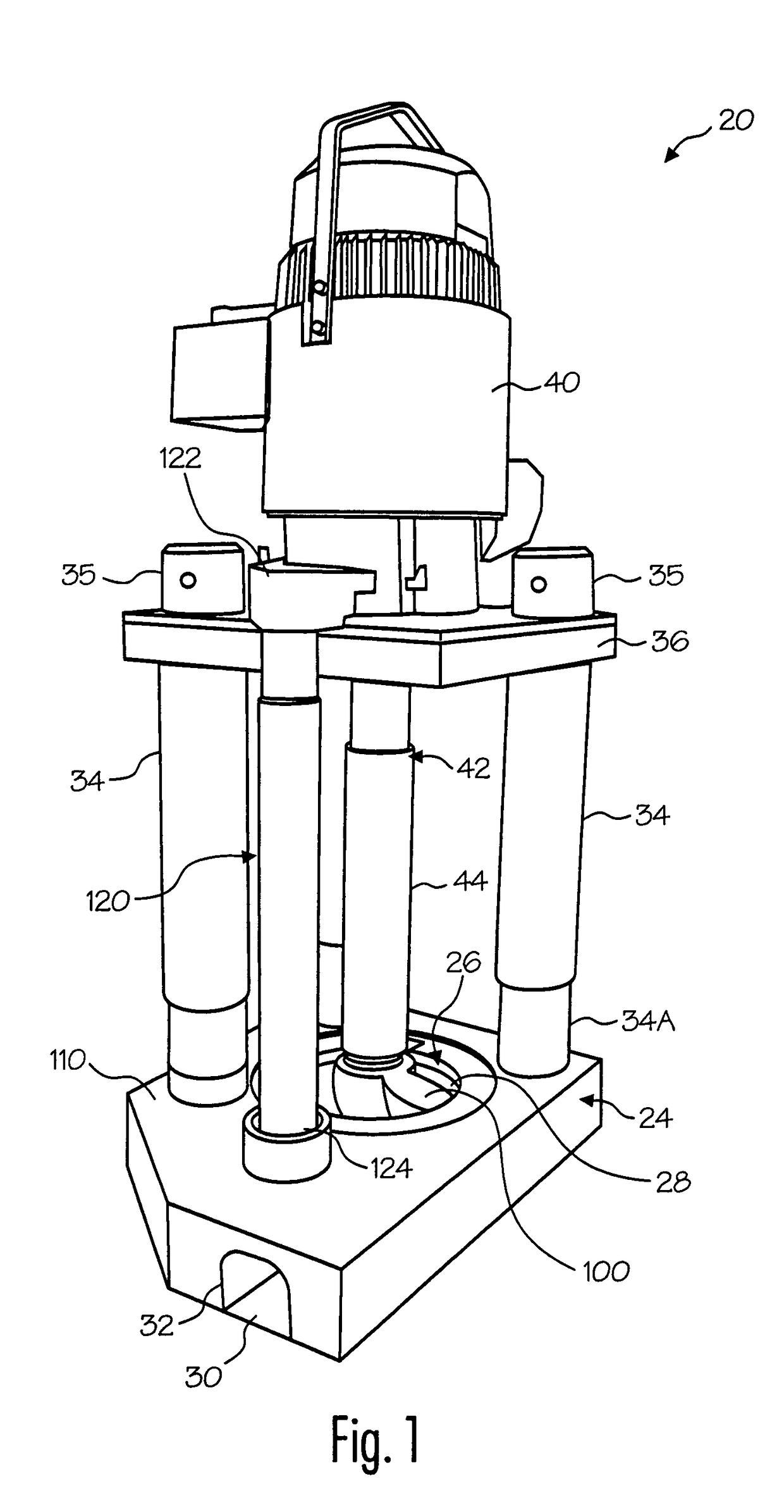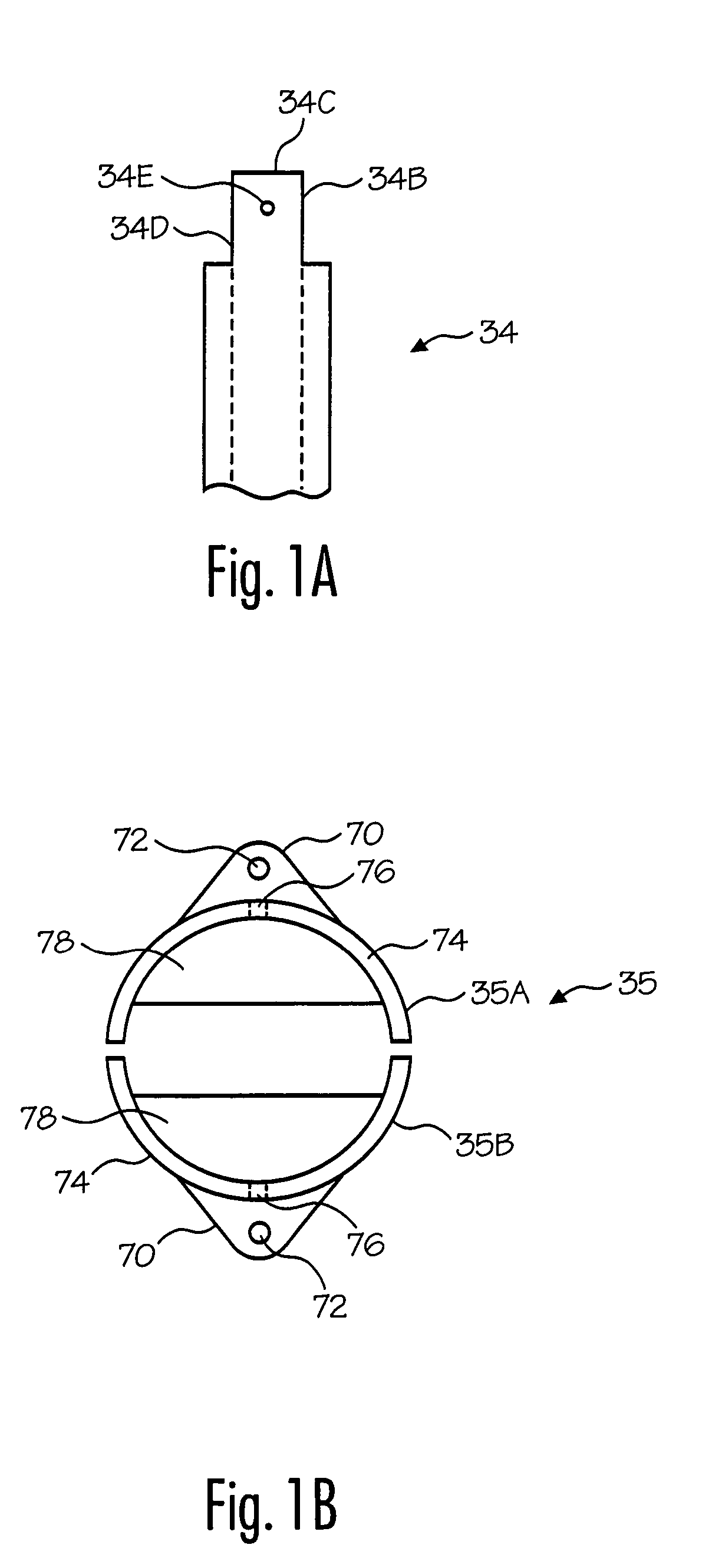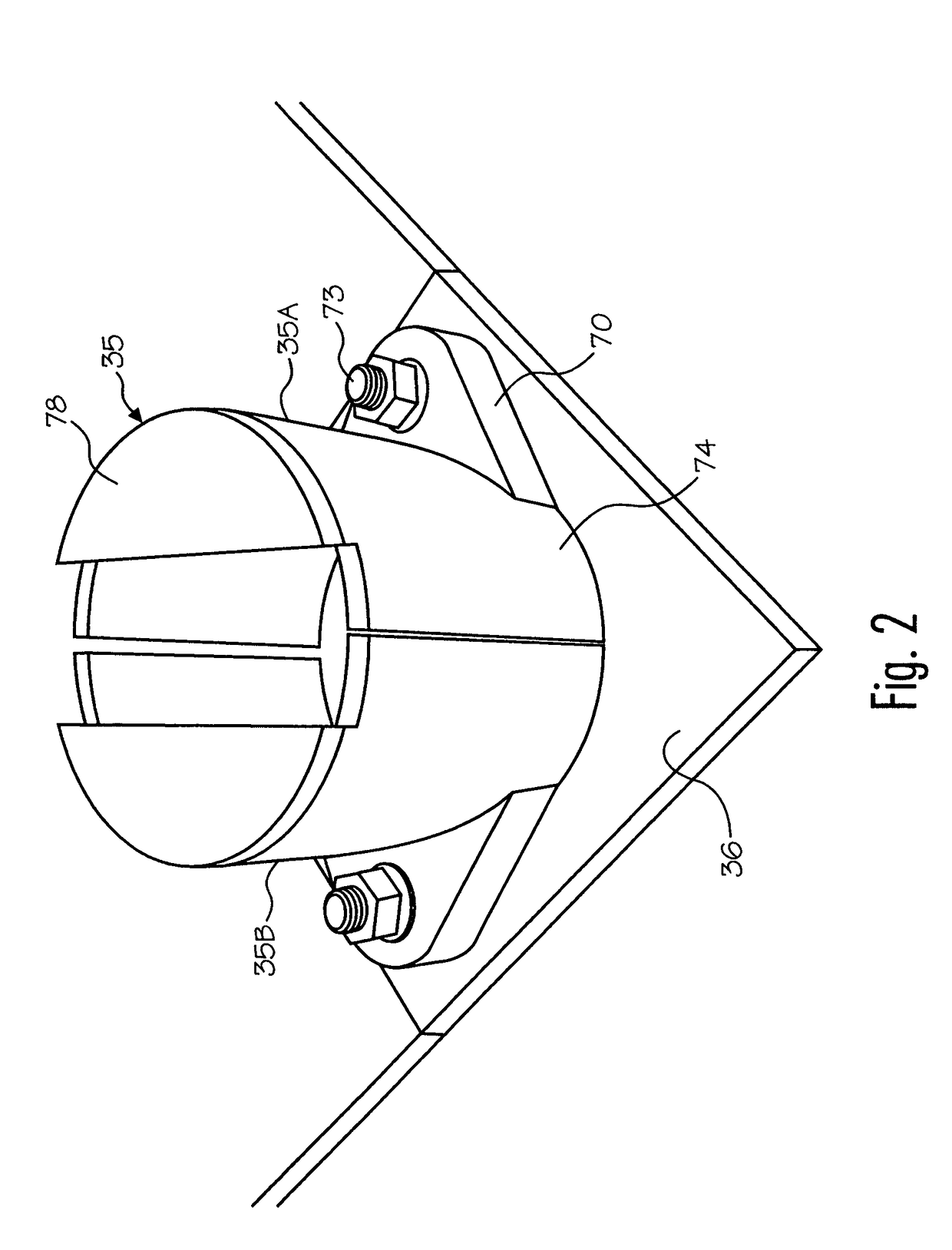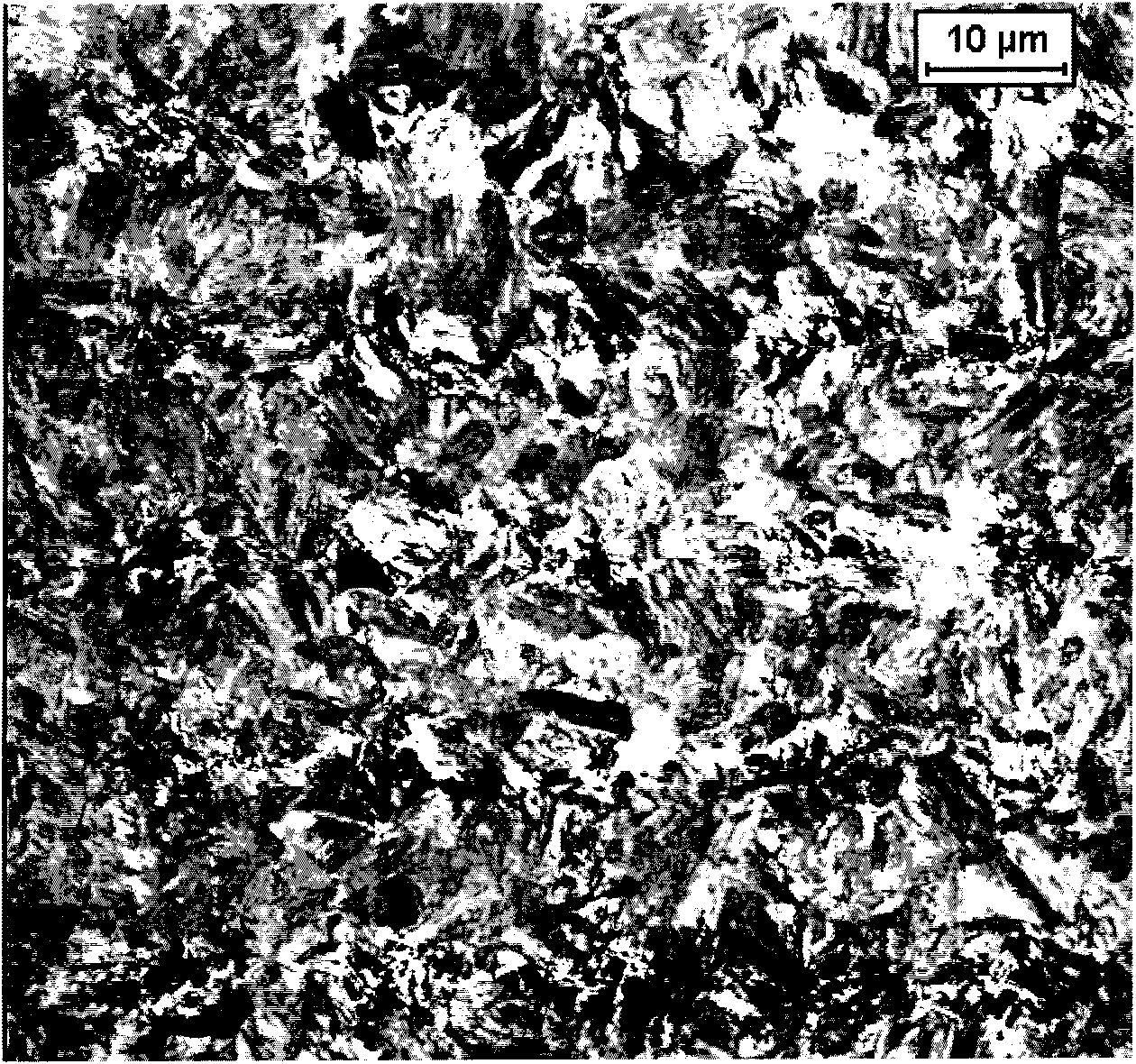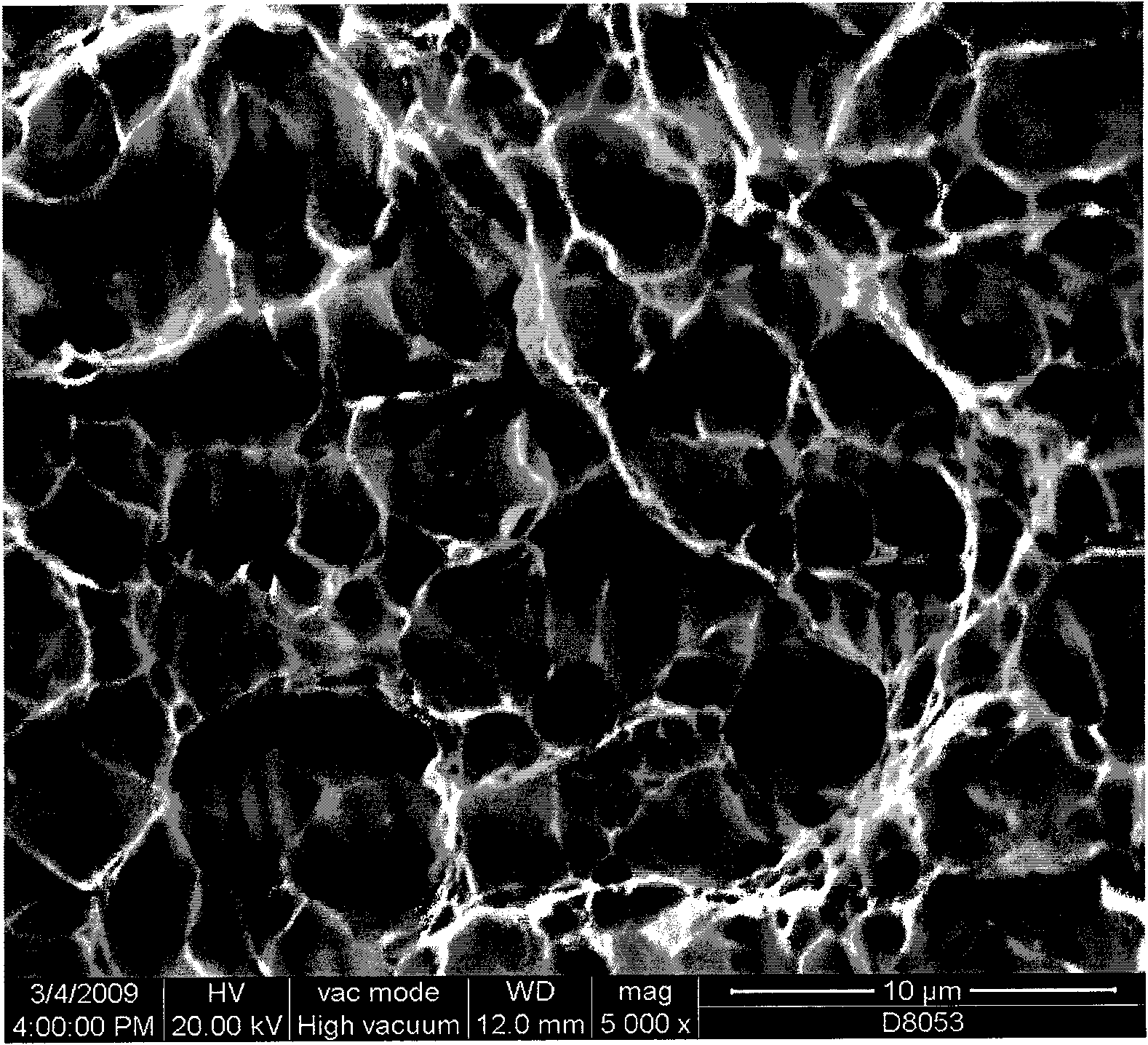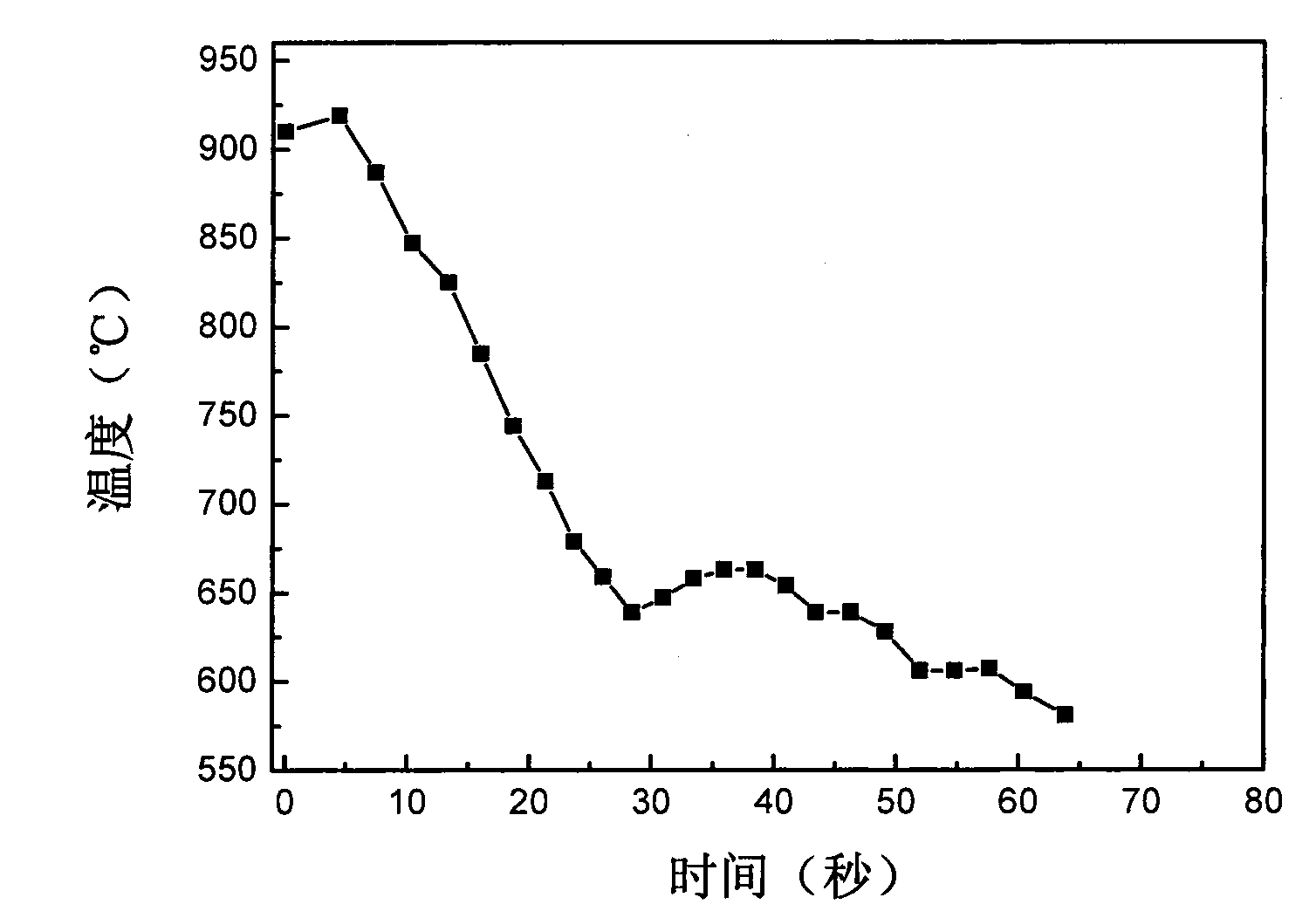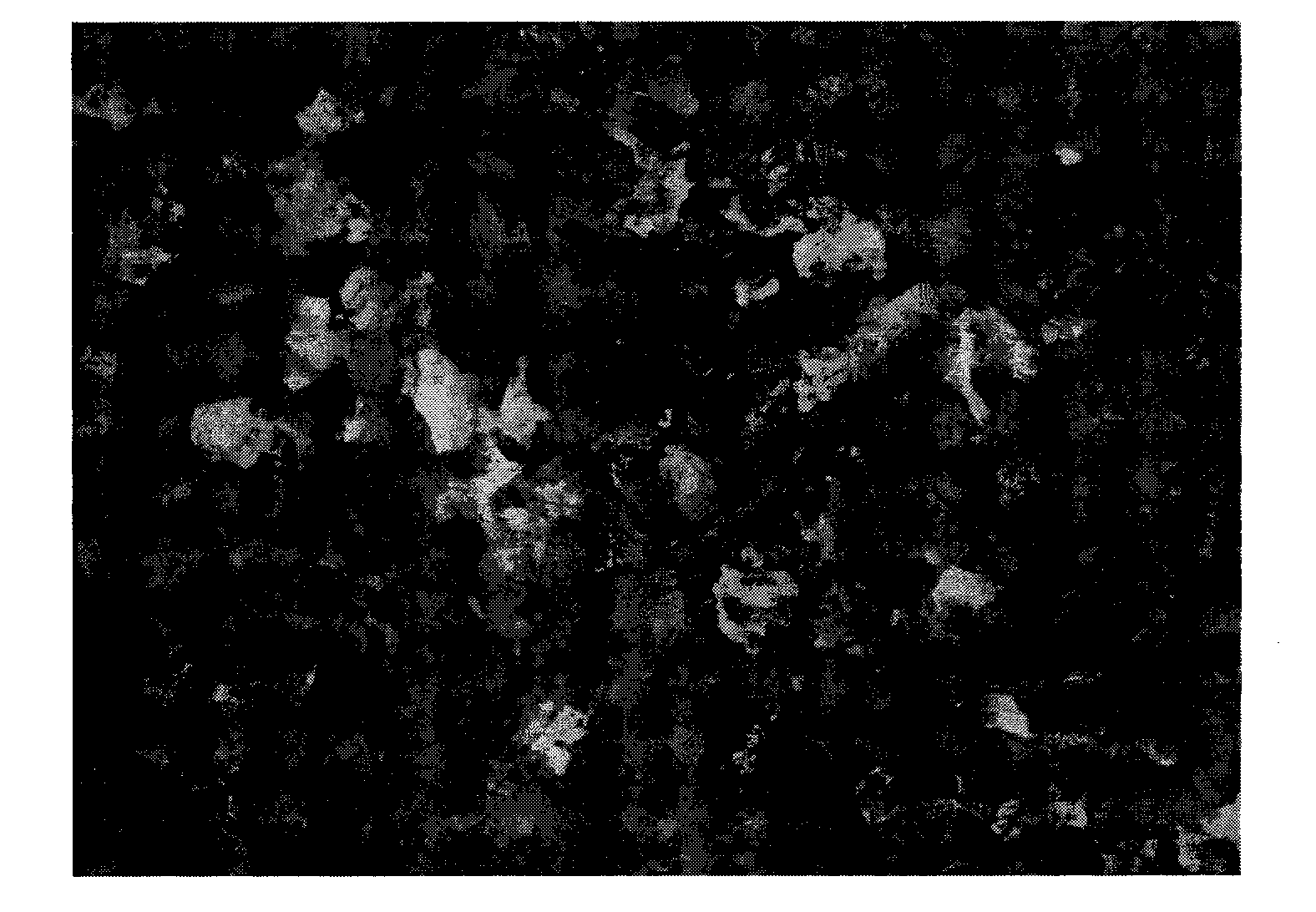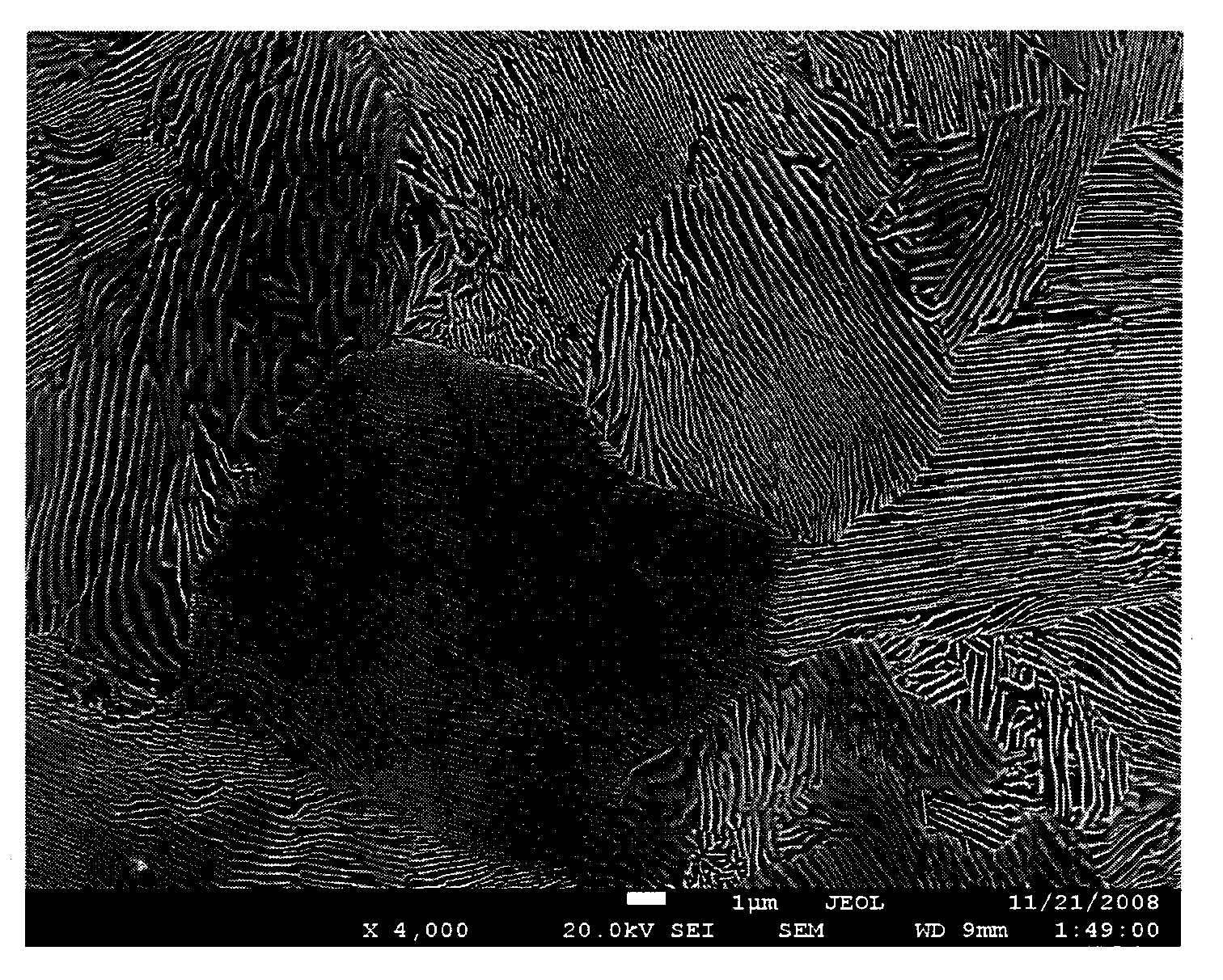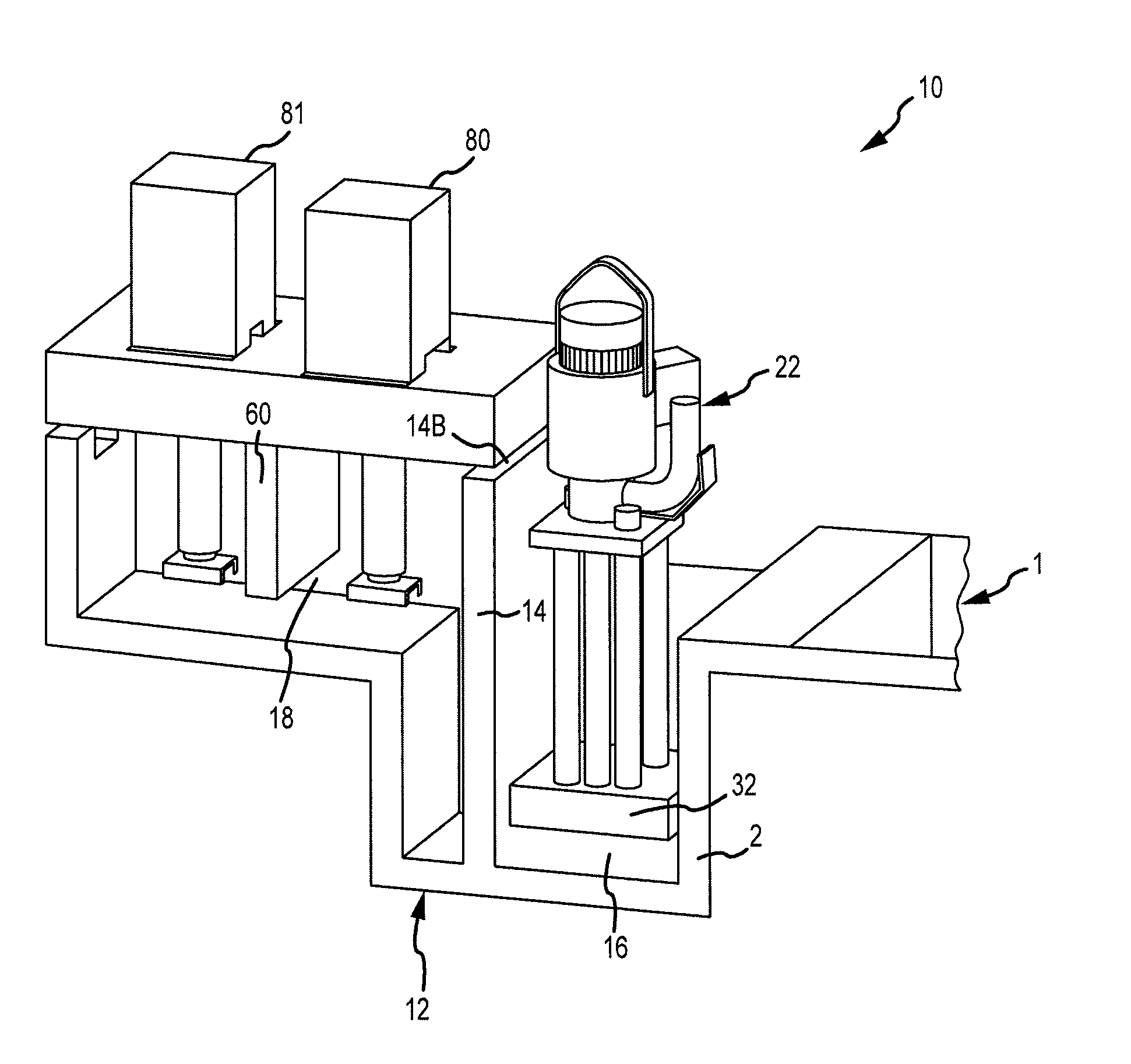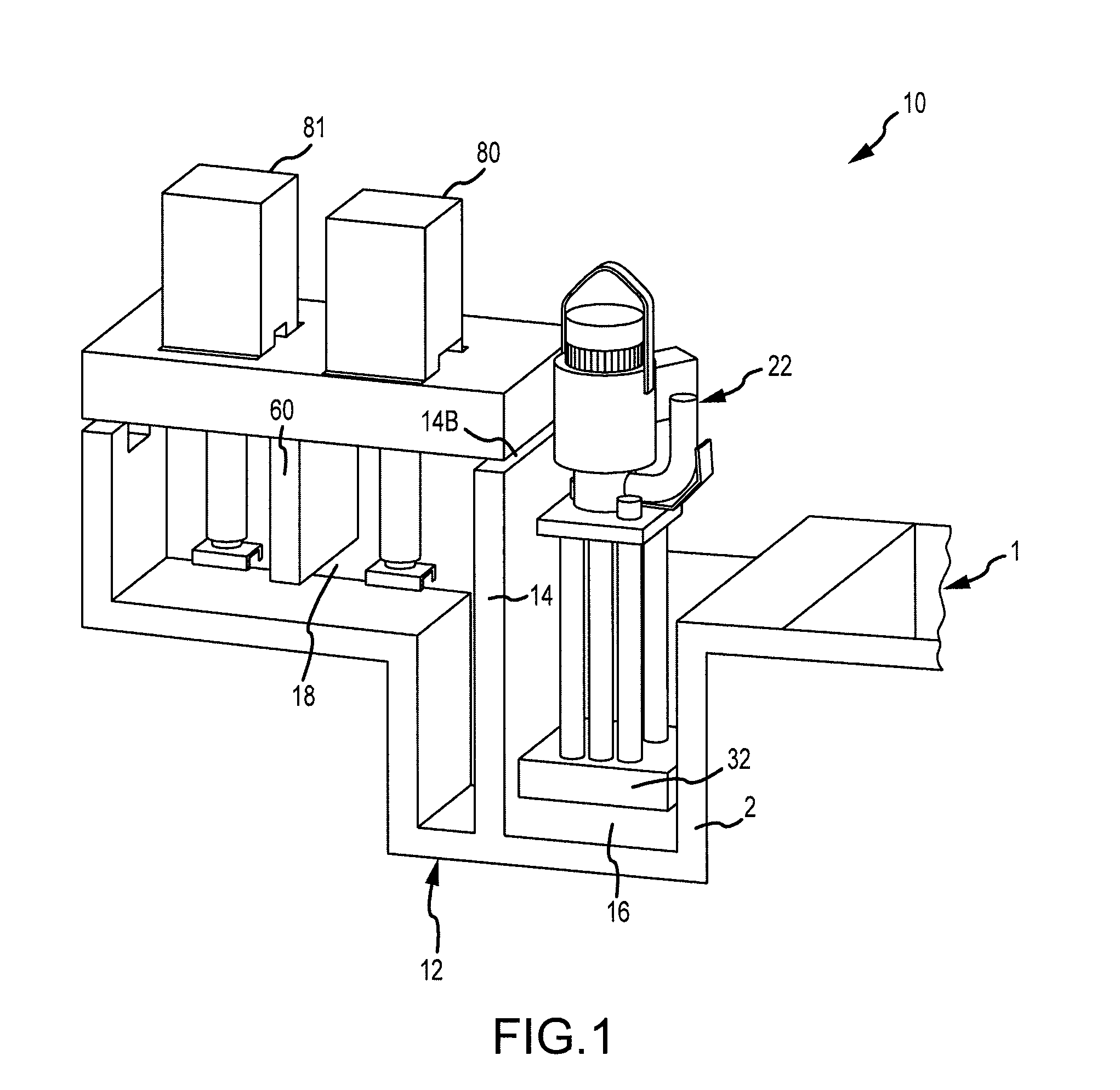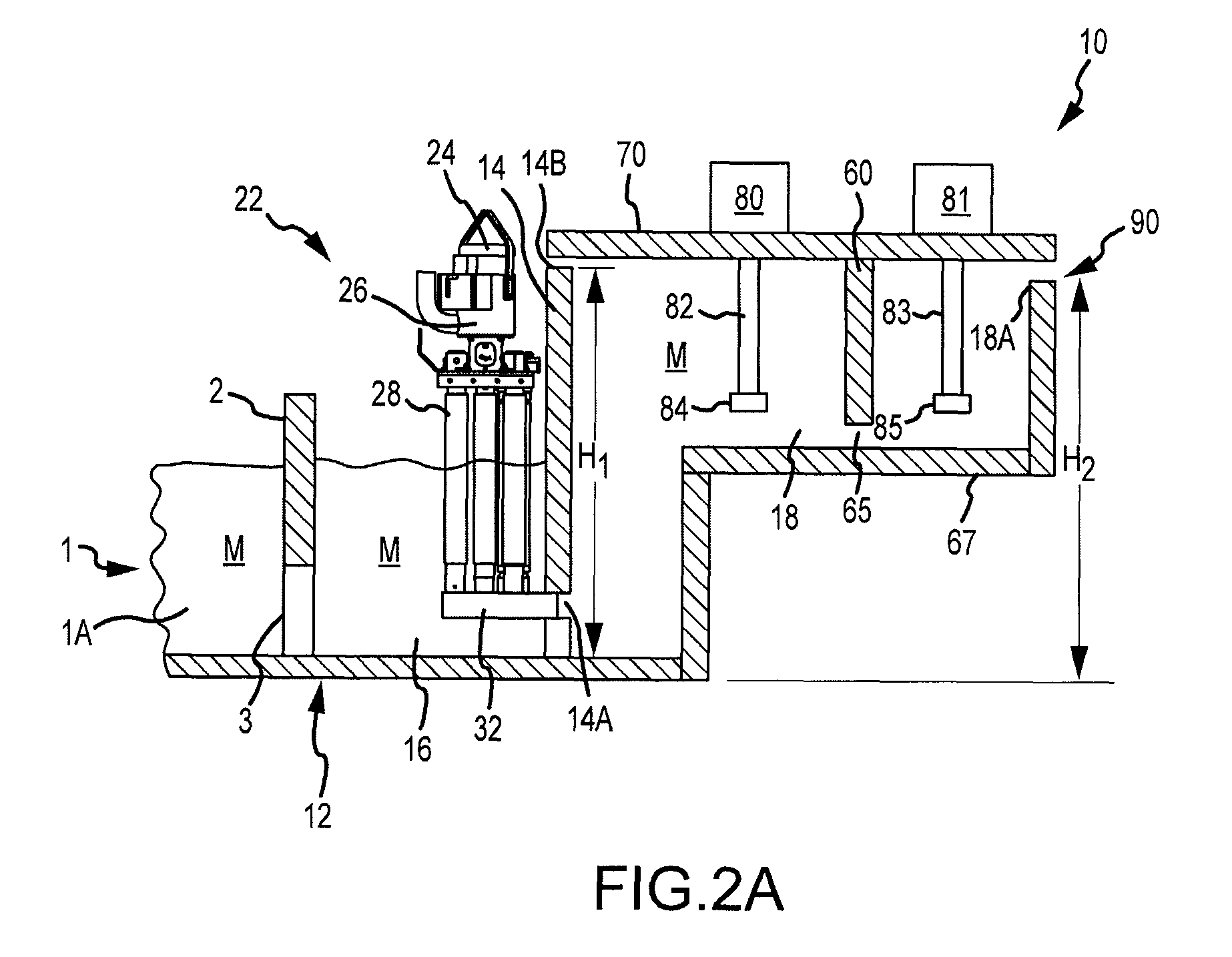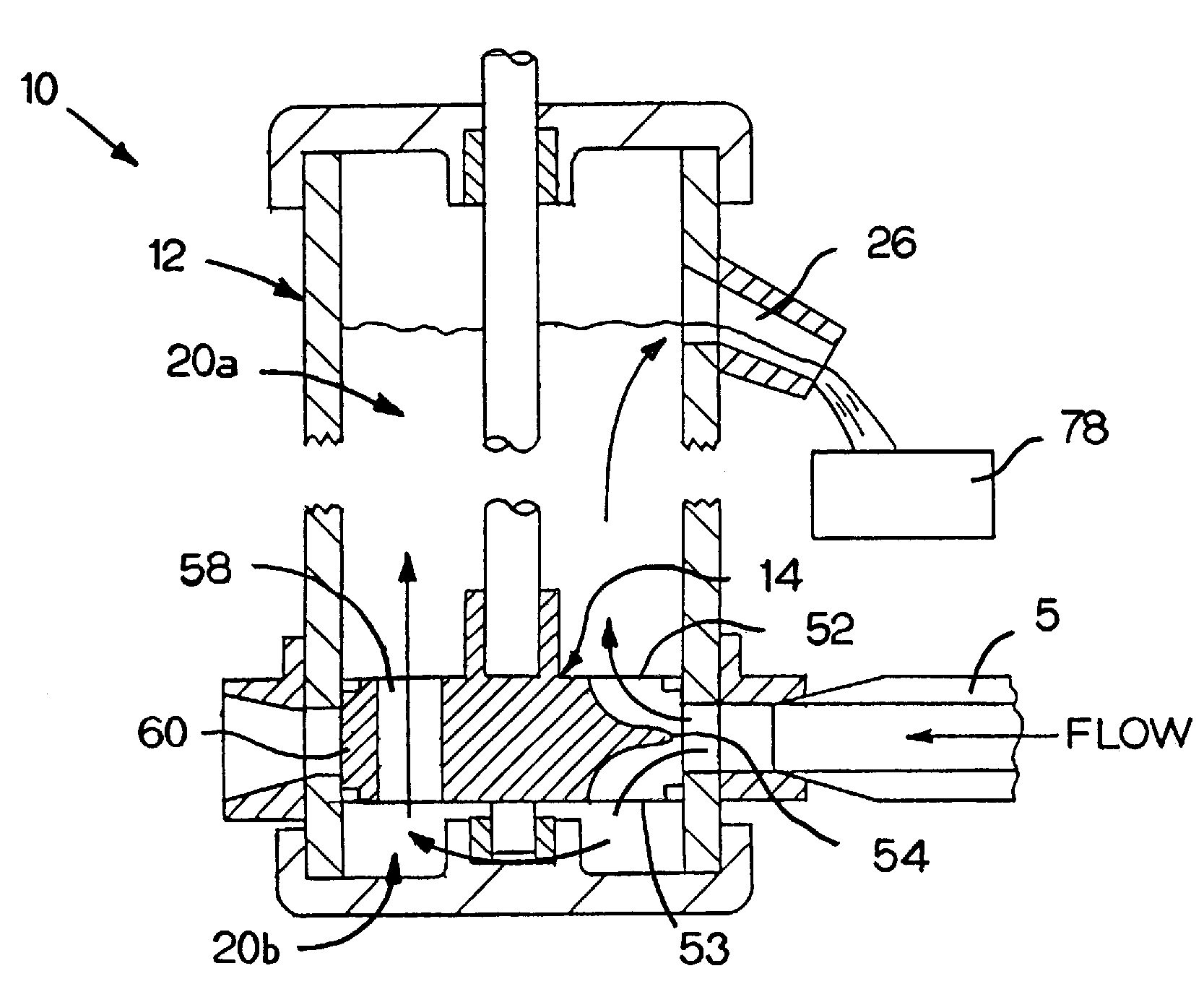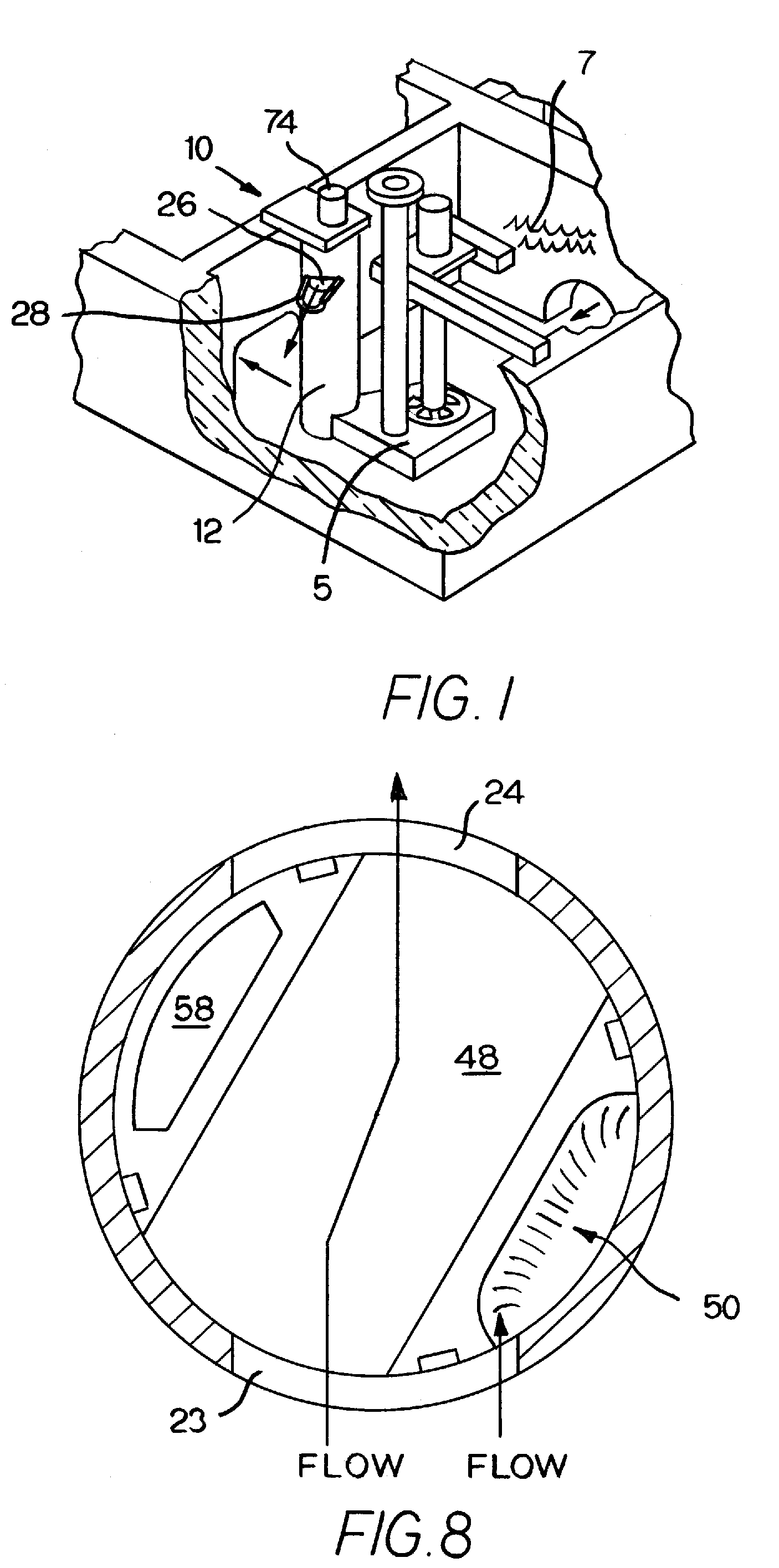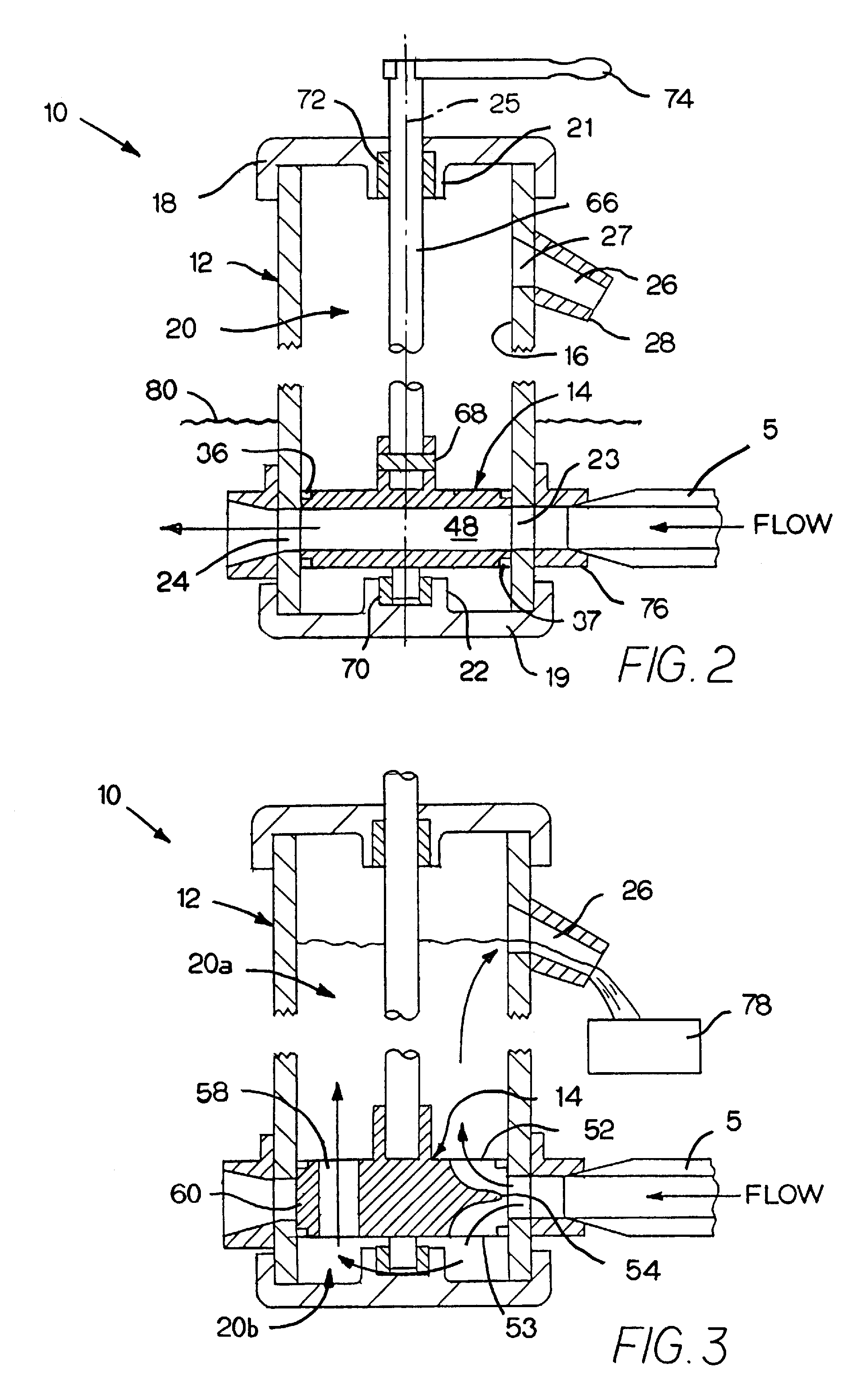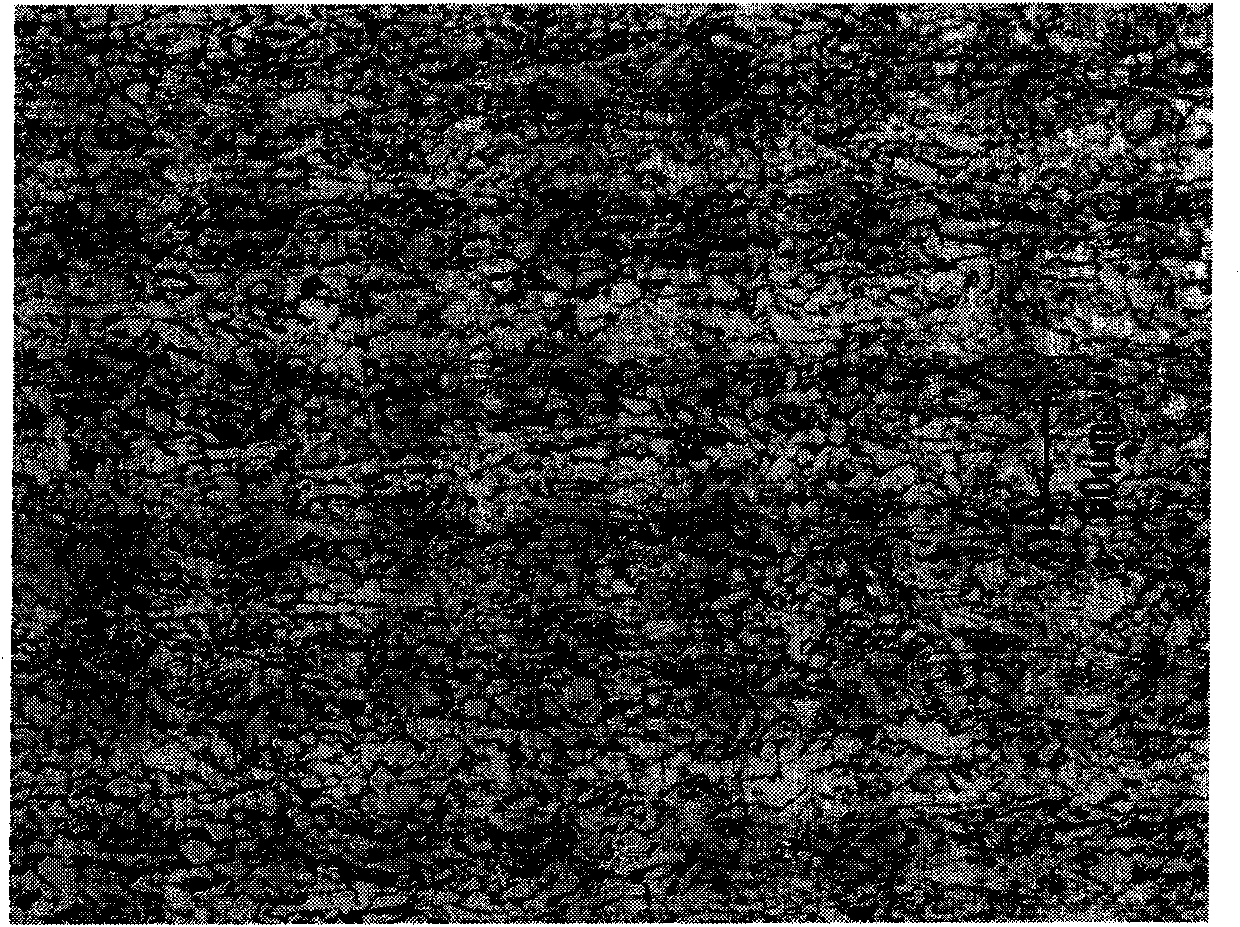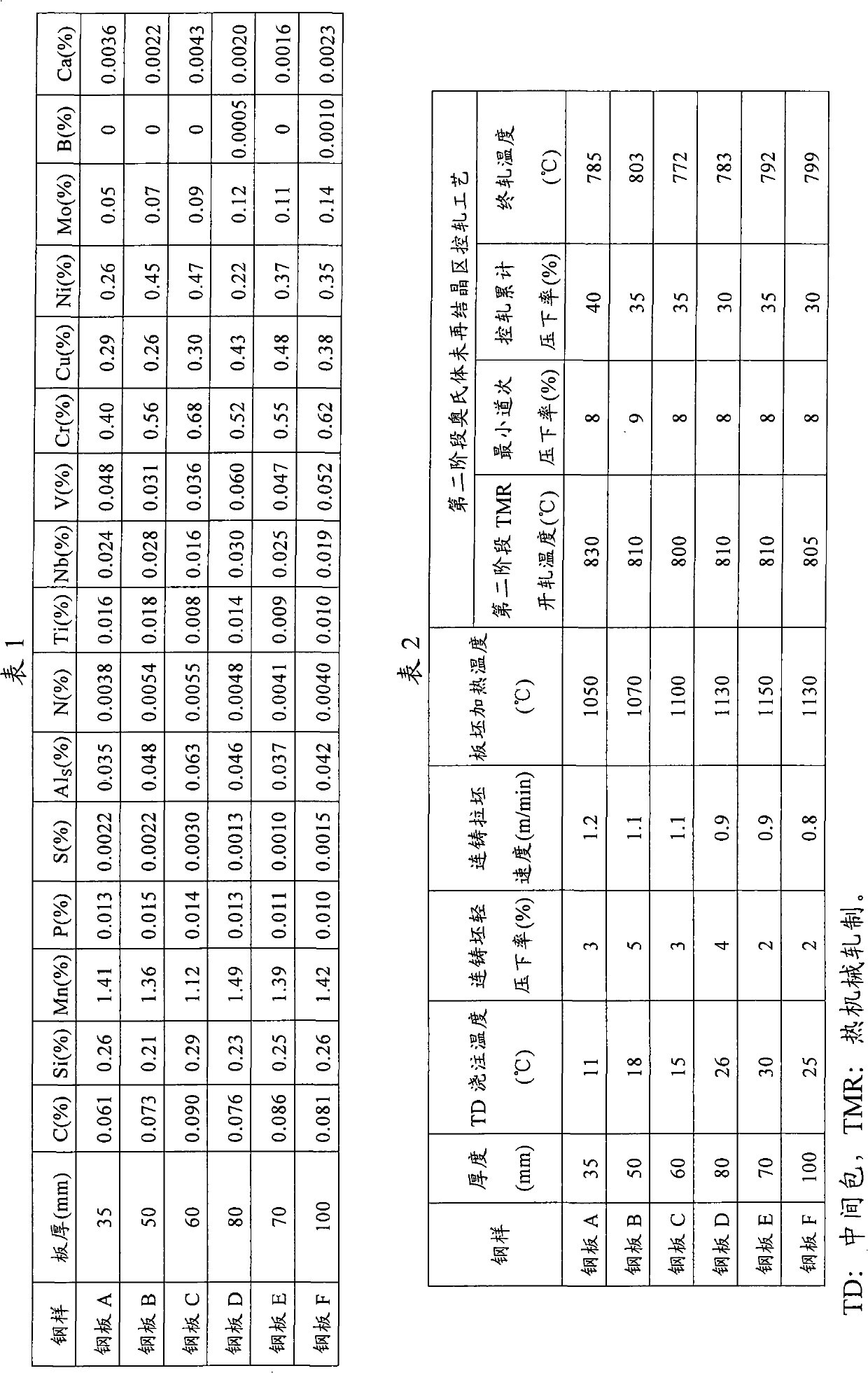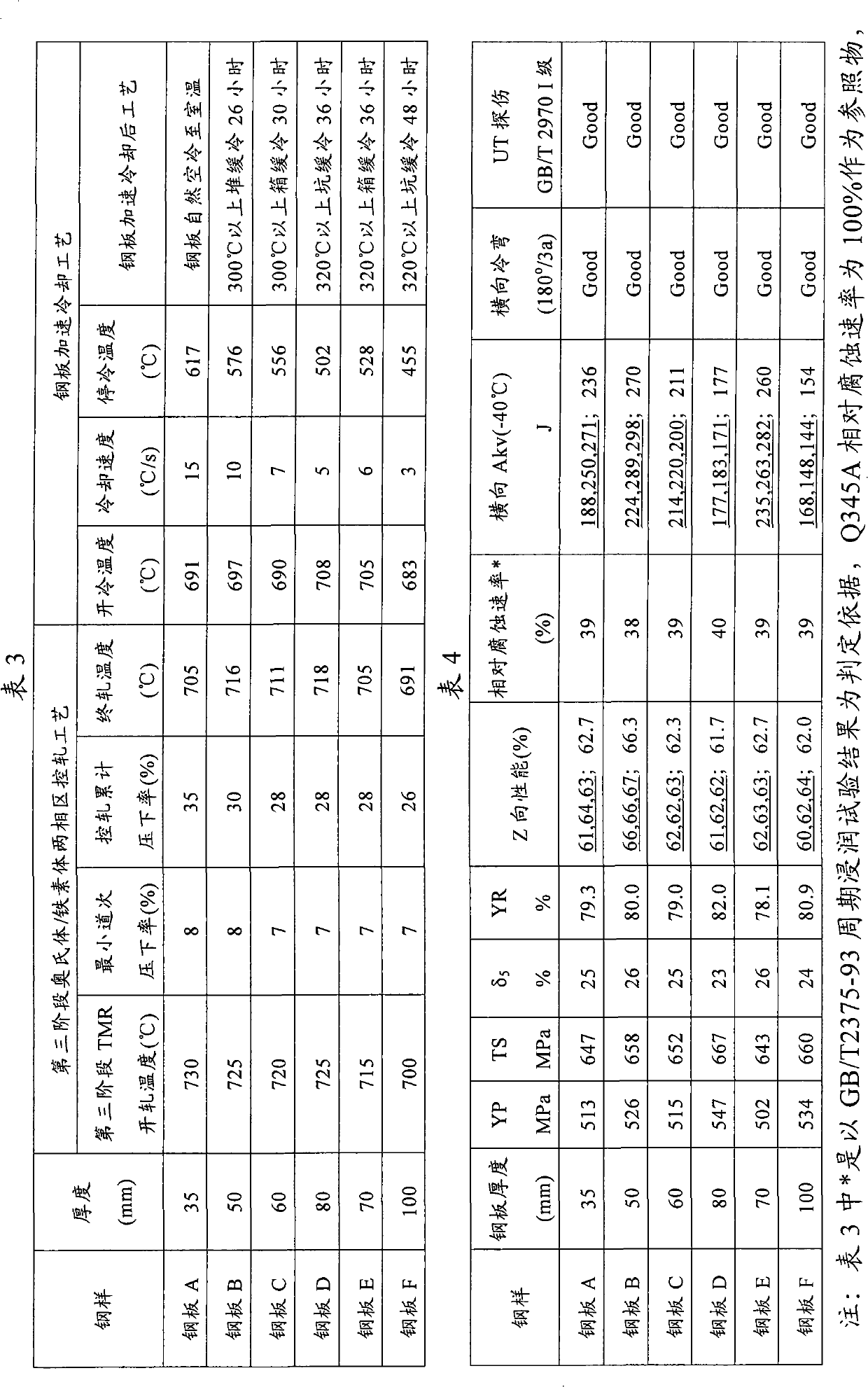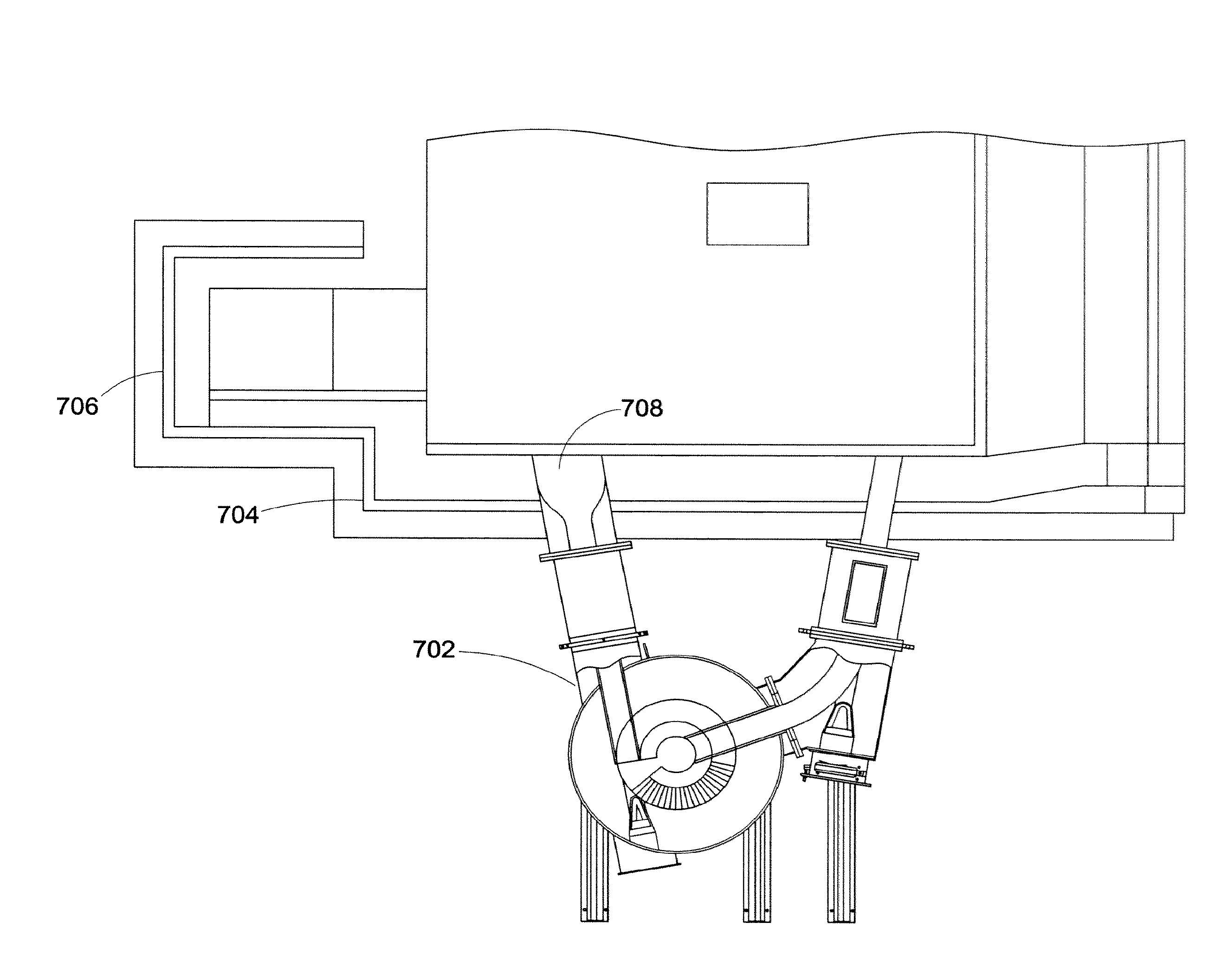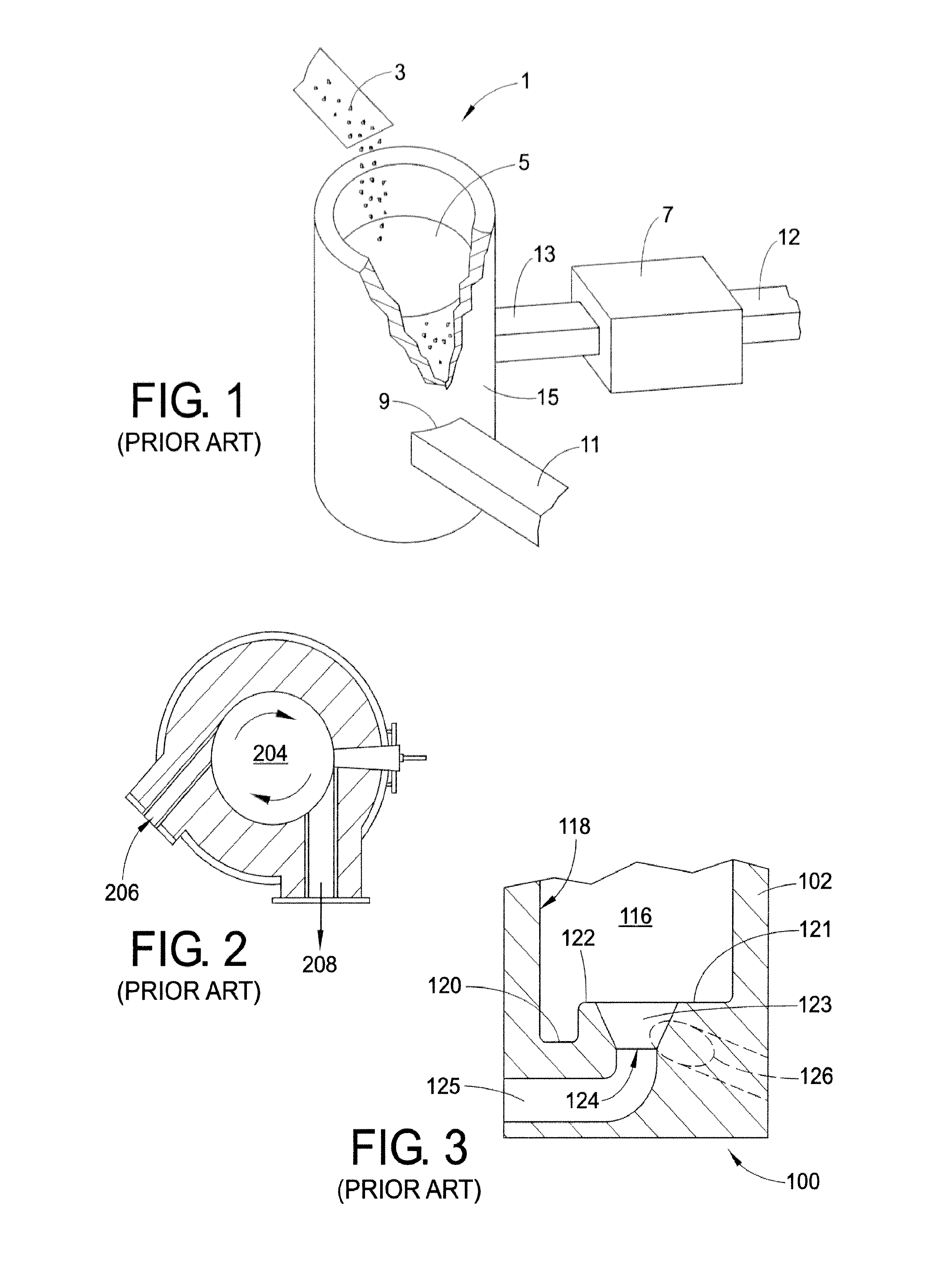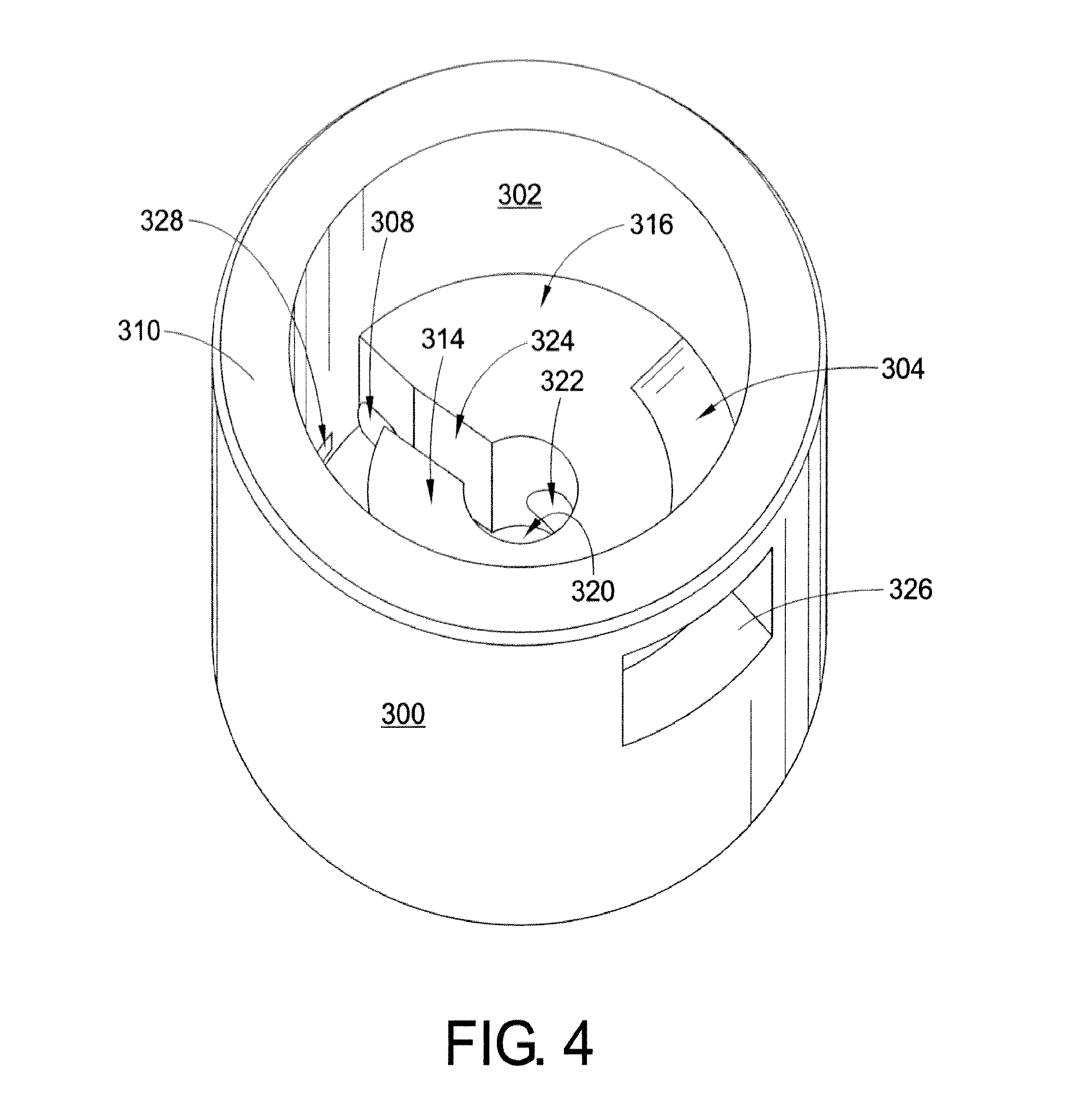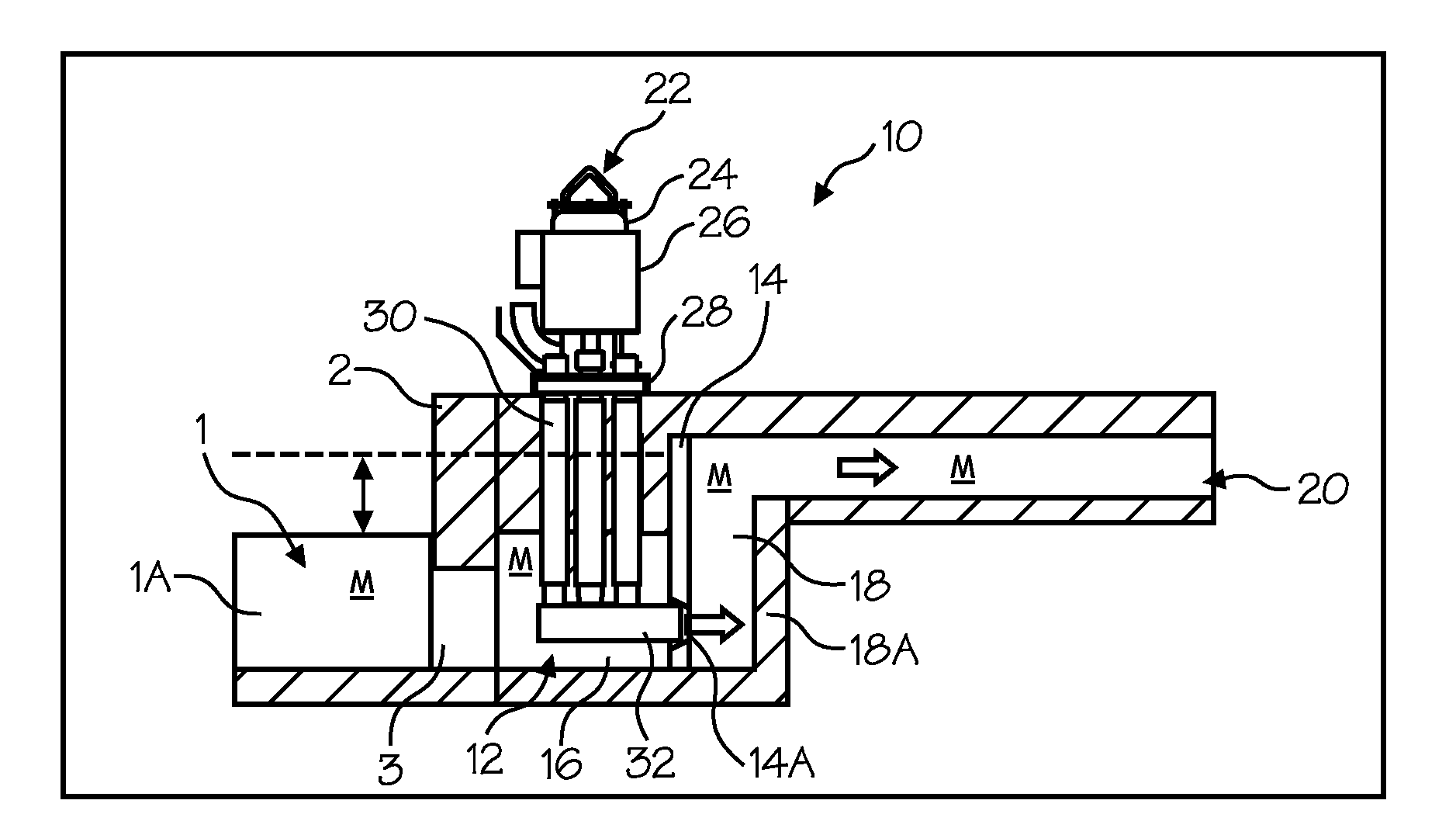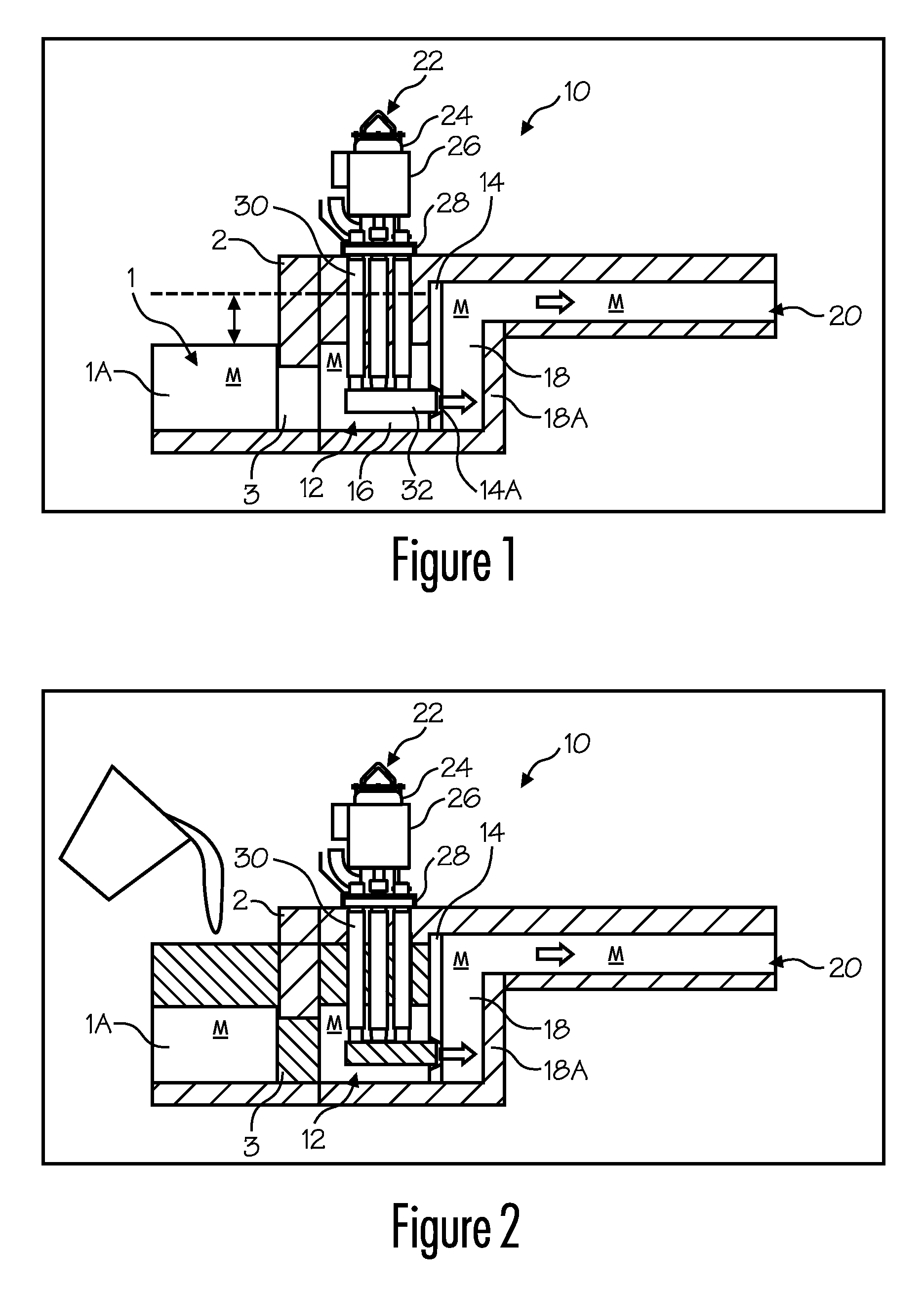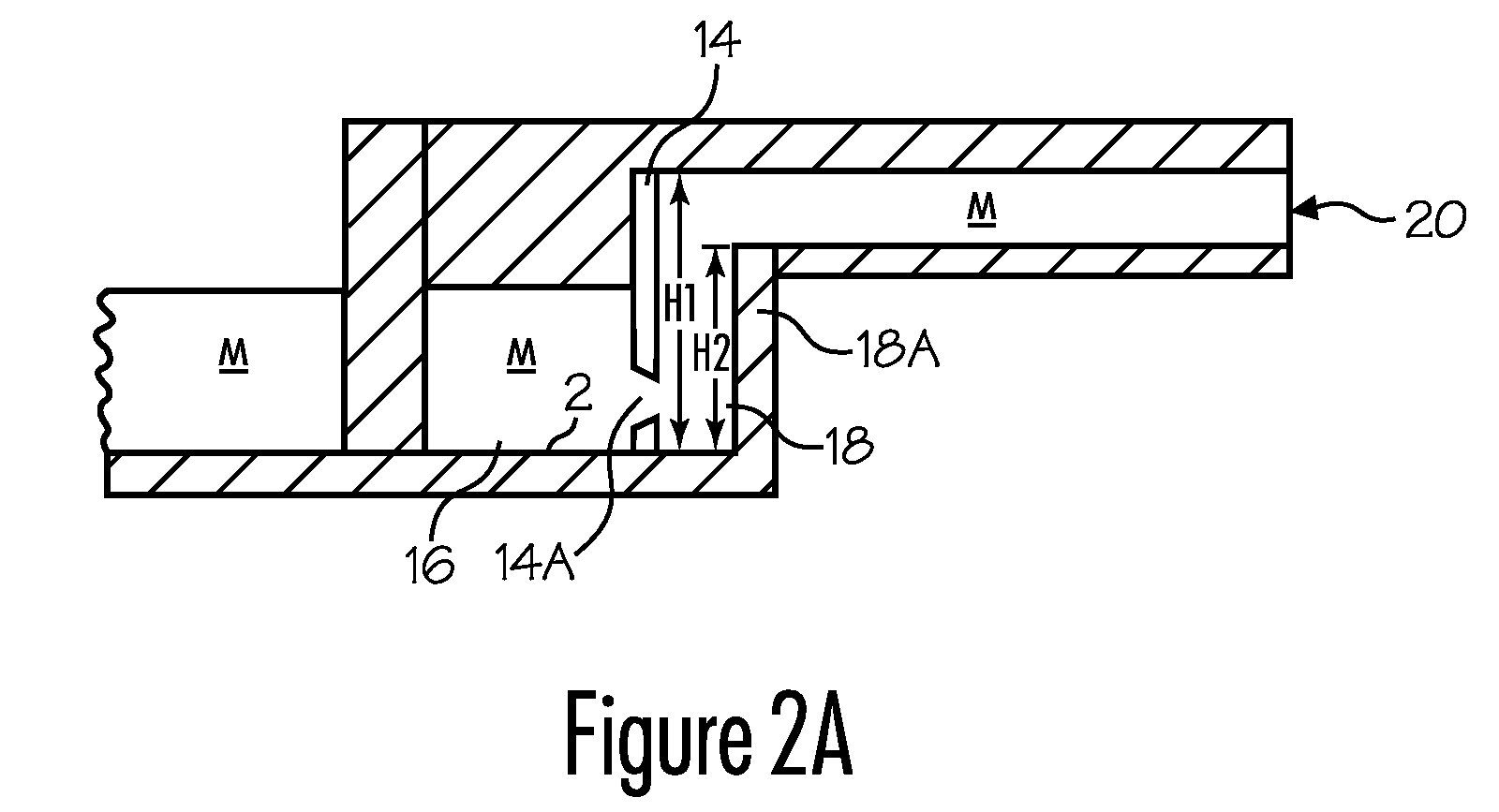Patents
Literature
Hiro is an intelligent assistant for R&D personnel, combined with Patent DNA, to facilitate innovative research.
8310results about "Manufacturing converters" patented technology
Efficacy Topic
Property
Owner
Technical Advancement
Application Domain
Technology Topic
Technology Field Word
Patent Country/Region
Patent Type
Patent Status
Application Year
Inventor
Pump with rotating inlet
A device for use in a molten metal pump helps alleviate jams between a rotating rotor and stationary inlet. The device includes an inlet structure including one or more openings and a displacement structure that preferably includes one or more rotor blades. The inlet structure and displacement structure are connected to one another (preferably, but not necessarily, as a unitary piece), thus enabling them both to rotate. A pump including the device is also enclosed. The invention further includes a bearing surface for an impeller or for a device according to the invention, wherein the bearing surface includes grooves that help reduce molten metal build up between the bearing surface of the impeller or device and the bearing surface of a pump chamber.
Owner:MOLTEN METAL EQUIP INNOVIATIONS LLC
Molten metal pump components
Improved components for a molten metal pump include a coupling for connecting a rotor shaft to a motor shaft, a rotor shaft and a rotor. The rotor shaft has a first end and a second end wherein the first end optionally has a vertical keyway formed in the outer surface of the shaft. The second end optionally has flat, shallow threads. The coupling can be one-piece or multi-piece, includes a cavity for receiving the first end of the rotor shaft and, if the first end of the rotor shaft has a keyway, the coupling includes a projection in the cavity for being received at least partially in the keyway. The rotor includes a connective portion that connects to the second end of the rotor shaft. If the second end of the rotor shaft includes flat, shallow threads, the connective portion is essentially a bore having flat, shallow threads configured to receive the second end of the rotor shaft. Optionally, the first end of the rotor shaft may have flat, shallow threads in which case the coupling would have a cavity that receives the first end of the rotor shaft, wherein the cavity has flat, shallow threads.
Owner:MOLTEN METAL EQUIP INNOVIATIONS LLC
System for releasing gas into molten metal
InactiveUS20050013715A1Reduce amountReduce stressSpecific fluid pumpsEngine manufactureMetallurgyGas release
A device for releasing gas into molten metal includes a base having a discharge. The discharge has a first section including a first cross-sectional area and a second section including a second cross-sectional area, wherein the first section is upstream of the second section and the first cross-sectional area is smaller than the second cross-sectional area. A gas-release opening is positioned so that it can release gas into one or more of the first section or the second section. As the molten metal moves from the first cross-sectional area to the second cross-sectional area gas is released into the molten metal and the molten metal flow helps to draw the gas into the flow, thereby lowering the pressure required to release gas into the molten metal. Metal-transfer conduits other than a discharge incorporated in a pump base are also disclosed, as are pumps including either a discharge or other metal-transfer conduit according to the invention.
Owner:COOPER PAUL V
Gas mixing and dispersement in pumps for pumping molten metal
InactiveUS7476357B2Well mixedEfficient pumpingMelt-holding vesselsCharge manipulationImpellerPump chamber
A molten metal pump including a pump base with an inlet and outlet, a mixing impeller chamber for mixing gas and molten metal, a pumping impeller chamber for pumping molten metal. First and second impeller members supported by a shaft are adapted to rotate in mixing and pumping chambers respectively. The impeller members may be integrally formed of a single impeller or separate impellers on one or more shafts. A gas passageway extends from a gas source to the mixing chamber in the base. A gas dispersement pump includes a base with an impeller chamber and inlet and an outlet. An impeller is mounted to a shaft and adapted to be rotated in the impeller chamber. A gas passageway extends from a gas source to a gas outlet proximate to the impeller chamber. A gas dispersement member of porous refractory material is adapted to disperse gas from the gas passageway. In a gas dispersement and gas / molten metal mixing pump, the dispersement member disperses the gas stream entering the mixing chamber where the gas is mixed with molten metal. Molten metal is pumped in the pumping chamber. A gas / molten metal mixture is discharged from the mixing chamber and molten metal is discharged from the pumping chamber.
Owner:THUT BRUNO H
Molten metal pump system
A molten metal pump system which generally provides a refractory connection joint for connecting a refractory pump post to a pump base, the pump post including a refractory post with a first end, the first end including an internal joint peg aperture; a refractory base with a post aperture configured to receive the first end of the refractory post, and with a peg aperture contiguous with the post aperture; and a joint peg with a first end and a second end, the joint peg including a retention shoulder, the joint peg configured to insert through the peg aperture in the refractory base with a retention bar or bolt inserted through an aperture in the joint peg of refractory post, and the retention shoulder engaging the refractory base.
Owner:PYROTECK INC
Vortexer apparatus
ActiveUS20060180963A1Facilitates submergence and meltingMaintain temperatureStirring devicesCharge manipulationImpellerPositive pressure
The present invention features a vortexer apparatus including a vessel comprising an exterior surface, an interior surface containing fluid and a mouth for receiving material at an upper end portion of the interior surface. In one application the material is metal scrap that is melted in molten metal as the fluid. All components that contact the molten metal are formed of refractory material. An outlet passageway extends downwardly from the interior surface. A vessel inlet opening is located between the exterior and interior surfaces above the outlet passageway. A center line passes through a center of the interior surface and the vessel inlet opening is disposed at a location offset from the center line. A pump is adapted to pump fluid into the vessel effective to form a vortex of fluid in the vessel. The base and impeller are configured and arranged effective to provide molten metal leaving the base outlet with a positive pressure. An outlet conduit extends from the base outlet to near the vessel inlet opening and can be maintained at a temperature above which molten metal solidifies, along its entire length. Instead of the vortexer vessel, the inventive vortexer apparatus may integrate a chamber of a furnace (e.g., a charge well). The chamber may be rectangularor include arcuate portions. Corner inserts may be used to provide the chamber with an oval or generally circular shape that may facilitate the vortex. One feature of the invention is a vortex vessel that includes an offset inlet opening and lower circulation opening. Also featured is a baffle impeller that may be vaned or barrel type. In addition, the invention features a pump having upper and lower impeller chambers separated by a web in the base, and impeller outlets that are isolated from fluid communication with each other.
Owner:THUT BRUNO H
Transferring molten metal from one structure to another
ActiveUS20080314548A1Formation of dross in the ladle or launder are greatly reduced or eliminatedEliminate useMolten metal pouring equipmentsMolten metal supplying equipmentsDie castingMolten metal
A system for transferring molten metal from a vessel and into one or more of a ladle, ingot mold, launder, feed die cast machine or other structure is disclosed. The system includes at least a vessel for containing molten metal, an overflow (or dividing) wall, and a device or structure, such as a molten metal pump, for generating a stream of molten metal. The dividing wall divides the vessel into a first chamber and a second chamber, wherein part of the second chamber has a height H2. The device for generating a stream of molten metal, which is preferably a molten metal pump, is preferably positioned in the first chamber. When the device operates, it generates a stream of molten metal from the first chamber and into the second chamber. When the level of molten metal in the second chamber exceeds H2, molten metal flows out of the vessel and into another structure, such as into one or more ladles and / or one or more launders.
Owner:MOLTEN METAL EQUIP INNOVIATIONS LLC
Vortexer apparatus
ActiveUS7497988B2Facilitates submergence and meltingMaintain temperatureStirring devicesCharge manipulationImpellerPositive pressure
Owner:THUT BRUNO H
Free flowing dry back-up insulating material
Disclosed is a free flowing dry back-up material which comprises:from 67 to 96% by weight of fly-ash;from 2 to 15% by weight of a heat sensitive binder such as boric acid;from 2 to 7% by weight of a non-wetting agent such as calcium fluoride;from 0 to 10% by weight of a heat expandable material, viz. a material expandable as a function of the temperature such as vermiculite or graphite; andfrom 0 to 1% by weight of a dust suppressant such as kerosene.This material which is useful in particular in the aluminum industry has the advantages of being water free and free flowing, such avoiding the use of vibrator to position it into a shell. It also has a low density and a low thermal conductivity. Moreover, it is organic free as compared to the existing materials which use an organic binder to ensure a low temperature set; and it sets at a temperature lower than 400° F.
Owner:LES PROD CHIMS INDS DE HAUTE TEMPERATURE PYROTEK
Support post system for molten metal pump
ActiveUS20050053499A1Specific fluid pumpsPositive displacement pump componentsEngineeringMechanical engineering
An improved post clamp for a molten metal pump includes a support post clamp that supports the weight of a pump superstructure on the top of the support posts. The clamp preferably includes (a) a bottom flange for connecting to the pump superstructure, (b) a cavity for receiving an end of a support post, wherein the end has a top surface, and (c) a top flange for being positioned above the top surface. In operation the top flange rests on the top surface of the support post thereby supporting at least part of the weight of the superstructure. It is preferred that a plurality of support posts and post clamps according to the invention be used with a molten metal pump wherein the top surface of each support post supports some of the weight of the superstructure. Also disclosed are novel support posts that may be used with the post clamp, and a pump in which the post clamp and / or support posts may be used.
Owner:MOLTEN METAL EQUIP INNOVIATIONS LLC
Pump with rotating inlet
A device for use in a molten metal pump helps alleviate jams between a rotating rotor and stationary inlet. The device includes an inlet structure including one or more openings and a displacement structure that preferably includes one or more rotor blades. The inlet structure and displacement structure are connected to one another (preferably, but not necessarily, as a unitary piece), thus enabling them both to rotate. A pump including the device is also enclosed. The invention further includes a bearing surface for an impeller or for a device according to the invention, wherein the bearing surface includes grooves that help reduce molten metal build up between the bearing surface of the impeller or device and the bearing surface of a pump chamber.
Owner:MOLTEN METAL EQUIP INNOVIATIONS LLC
Protective coatings for molten metal devices
ActiveUS7507367B2Reduce componentsPrecise positioningSpecific fluid pumpsPump componentsMolten metalCoating
Disclosed are components covered with a protective coating for use in a molten metal bath (or comparable environment) and devices including such components. The protective coating is preferably a ceramic sleeve adhered to a non-coated component by cement. A component with the protective coating is more resistant to degradation in molten metal than is the component without the coating, and may be manufactured by the process of (a) placing the protective coating over the non-coated component, and (b) injecting cement into the space between the non-coated component and protective coating, wherein at least some of the cement is injected through a passage in either the non-coated component or the protective coating.
Owner:MOLTEN METAL EQUIP INNOVIATIONS LLC
Austenitic stainless steel, steel tube thereof and manufacturing method thereof
ActiveCN101633999AImprove high temperature creep resistanceExcellent resistance to high temperature steam corrosionTemperature control deviceManufacturing convertersSS - Stainless steelIngot
The invention relates to an austenitic stainless steel, a steel tube thereof and a manufacturing method thereof, wherein the austenitic stainless steel and the stainless steel tube comprise the components by mass percent: 0.060-0.14% of C, more than 0 and less than or equal to 0.50% of Si, more than 0 and less than or equal to 1.00% of Mn, less than 0.040% of P, less than 0.015% of S, 17.00-20.00% of Cr, 8.00-11.00% of Ni, 2.50-4.00% of Cu, 0.30-0.60% of Nb, 0.15-0.50% of Mo, 0.15-0.50% of Co, 0.05-0.14% of N, 0.001-0.01% of B, the rest of Fe and unavoidable impurity. The manufacturing method of the steel tube comprises: smelting and pouring to form steel ingots or continuously cast bloom, processing bar material, preparing tubular billet and further processing the steel tube; the method comprises the steps: the heating temperature of processing the bar material is 1250-1270 DEG C, heating temperature of preparing the tubular billet is 1100-1220 DEG C, and the finished product solid solution temperature is 1120-1190 DEG C. The austenitic stainless steel tube has high temperature creep strength and corrosion resisting performance at the high temperature.
Owner:SHANXI TAIGANG ENG TECH +1
Molten metal pump components
Improved components for a molten metal pump include a coupling for connecting a rotor shaft to a motor shaft, a rotor shaft and a rotor. The rotor shaft has a first end and a second end wherein the first end optionally has a vertical keyway formed in the outer surface of the shaft. The second end optionally has flat, shallow threads. The coupling can be one-piece or multi-piece, includes a cavity for receiving the first end of the rotor shaft and, if the first end of the rotor shaft has a keyway, the coupling includes a projection in the cavity for being received at least partially in the keyway. The rotor includes a connective portion that connects to the second end of the rotor shaft. If the second end of the rotor shaft includes flat, shallow threads, the connective portion is essentially a bore having flat, shallow threads configured to receive the second end of the rotor shaft. Optionally, the first end of the rotor shaft may have flat, shallow threads in which case the coupling would have a cavity that receives the first end of the rotor shaft, wherein the cavity has flat, shallow threads.
Owner:MOLTEN METAL EQUIP INNOVIATIONS LLC
System for releasing gas into molten metal
InactiveUS20080213111A1Reduce amountIncrease the cross-sectional areaSpecific fluid pumpsEngine manufactureMetallurgyGas release
A device for releasing gas into molten metal includes a base having a discharge. The discharge has a first section including a first cross-sectional area and a second section including a second cross-sectional area, wherein the first section is upstream of the second section and the first cross-sectional area is smaller than the second cross-sectional area. A gas-release opening is positioned so that it can release gas into one or more of the first section or the second section. As the molten metal moves from the first cross-sectional area to the second cross-sectional area gas is released into the molten metal and the molten metal flow helps to draw the gas into the flow, thereby lowering the pressure required to release gas into the molten metal. Metal-transfer conduits other than a discharge incorporated in a pump base are also disclosed, as are pumps including either a discharge or other metal-transfer conduit according to the invention.
Owner:MOLTEN METAL EQUIP INNOVIATIONS LLC
System and method for degassing molten metal
A system for adding gas to and transferring molten metal from a vessel and into one or more of a ladle, ingot mold, launder, feed die cast machine or other structure is disclosed. The system includes at least a vessel for containing molten metal, an overflow (or dividing) wall, a device or structure, such as a molten metal pump, for generating a stream of molten metal, and one or more gas-release devices.
Owner:MOLTEN METAL EQUIP INNOVIATIONS LLC
Scrap melter and impeller therefore
InactiveUS20080230966A1Reduce jammingReduce cloggingMelt-holding vesselsStirring devicesImpellerDrive shaft
A device for submerging scrap metal includes: (a) a drive source, (b) a drive shaft having a first end and a second end, the first end being connected to the drive source, and (d) an impeller connected to the second end of the drive shaft, the impeller preferably having two or more outwardly-extending blades. Preferably, each of the blades has a portion that directs molten metal at least partially downward. The impeller design leads to lower operating speeds, lower vibration, longer component life and less maintenance. Additionally, the impeller preferably has a connective portion. The connective portion is used to connect the impeller to the shaft and preferably comprises a nonthreaded, tapered bore extending through the impeller.
Owner:COOPER PAUL V
Molten metal pressure pour furnace and metering valve
InactiveUS7279128B2Avoid flowMelt-holding vesselsMolten metal pouring equipmentsDifferential pressureMetallurgy
An apparatus and process are provided for discharging a dose of a molten metal from a pressure pour furnace. A heating chamber of the furnace is used to keep the molten metal at a selected temperature. A sealing port between the heating chamber and a pressure chamber allows selectively filling of the pressure chamber with molten metal from the heating chamber by inserting or removing a sealing means from the sealing port. The sealing means inserted in the sealing port also provides a means for preventing back flow of the molten metal to the heating chamber when the pressure chamber is pressurized. Differential pressure sensing of the pressure of the molten metal in the pressure chamber and the pressure of the pressurizing gas in the pressure chamber can optionally be used to achieve an accurate measured discharge from the pressure chamber as the level of molten metal decreases from repeated discharges of doses from the furnace. The sealing plate in which the sealing port is disposed and the sealing means selectively inserted or removed from the sealing port can be used as a metering valve between two molten metal containing components such as a launder and a pressure chamber of a pressure pour furnace.
Owner:HI T E Q
Overflow transfer furnace and control system for reduced oxide production in a casting furnace
InactiveUS6902696B2Reduce productionReduce in quantityLiquid transferring devicesManufacturing convertersControl systemMolten metal
An apparatus for transferring molten metal from a melting furnace to a casting furnace is provided. A sensing and control system for the transfer of molten metal from a transfer furnace to a casting furnace is also described. The combination of the transfer apparatus with the sensing and control system provides for the introduction of reduced oxide molten metal into a casting furnace.
Owner:SHIPSTON ALUMINUM TECH MICHIGAN
Multi-purpose, multi-oxy-fuel, power burner/injector/oxygen lance device
InactiveUS20030075843A1Reduce the numberSmall sizeTuyeresCharge manipulationSteelmakingLiquid medium
A multi-purpose, multi-oxy-fuel High Temperature Power Burner / Injector / Oxygen Lance, Mechanical System Apparatus Device, for steelmaking from recycled scrap and / or virgin ferrous charge, which can be employed in multi-oxy-fuel (natural gas; pulverized carbonaceous matter; heavy oil), especially by Oxygen Combusted mixture of Natural Gas / Pulverized Carbonaceous Matter in High Temperature Power Burner Mode, for efficient and rapid melting of solid ferrous charge (cold or preheated) in a special steelmaking Metallurgical Furnace or Open Hearth Furnace, Tandem Furnace, BOF, EAF, as its augmenting or only source of thermal energy; more than one Device in Oxygen-Natural Gas / Pulverized Carbonaceous Matter Power Burner Mode, can be employed as the only source of thermal energy in a modified, originally Electric Arc Furnace, as total replacement of Graphite Electrodes and Electric Arc System, the replacement being noticeably more primary energy efficient than the thermal energy provided by Graphite Electrode / Arc System; it also can be employed in an Solid Particles Injector Mode, for injecting of adequately granulated carbonaceous materials or lime into the molten steel for its carburizing or for foamy slag control; further it can be employed in a natural gas shrouded, pulsating oxygen stream, for vertically to the charge oriented soft blow supersonic Oxygen Injection Lance Mode, for decarburization of the molten metal contained in the hearth of the metallurgical furnace and foamy slag control; in one of the embodiments-generally arcuate-pivotally mounted, liquid media cooled composite body, is pivoted into and out of a furnace vessel through a small opening in the shell wall for auto-regulated constant optimal positioning of the Composite Body Tip against solid or molten charge, in each and all multi-purpose modes; furthermore, when inserted into the furnace vessel, the arcuate composite body can be rotated about its longitudinal axis for directing the oxy-fuel high temperature flame towards unmolten charge in the furnace; in an other-generally linear-embodiment, the liquid cooled composite body is attached to the mast type carrier allowing vertical movement of the composite body which enters the furnace vessel through a small opening in the furnace roof; the bimetallic, liquid cooled special tip assembly of both-arcuate and linear embodiments-of the composite body includes easy replaceable, independent, multi-opening nozzles, mounted in a protective, retracted position inside of the liquid cooled special tip assembly.
Owner:EMPCO (CANADA) LTD
Method, apparatus, computer readable storage medium and computer program for forming an object
InactiveUS20110042031A1Polycrystalline material growthAdditive manufacturing apparatusComputer programFreezing point
A method for forming an object, including providing at least a first material having a melting point at a first temperature and a second material having a melting point at a second temperature; heating at least a portion of the first and second materials above the first and second temperatures to form a substantially molten alloy, the molten alloy having a solidifying point at a third temperature, the third temperature being less than the first temperature and the second temperature; and providing substantially solid further material to at least a portion of the molten alloy, the further material having a melting point at a temperature greater than the third temperature.
Owner:UNIV OF SHEFFIELD
Reservoir For Liquid Dispensing System With Enhanced Mixing
InactiveUS20110120565A1Minimize any fluid dead zonesSuitable for installationBlast furnace detailsManufacturing convertersSystems designEngineering
Reservoir for a dispense system designed to maintain a suspending fluid flow within the reservoir. The fluid dispense system is particularly well suited to be manufactured in a single-use format comprising a fluid reservoir and fill tube assembly, particularly comprising a reservoir, tubing, fittings and connectors, and a needle. The system ensures uniformity within the liquid by moving the fluid through the product reservoir such as with a continuous or pulsating flow, and is designed to maintain the fluid in motion in order to maintain a homogenous solution. The reservoir is designed to minimize any fluid dead zones.
Owner:MILLIPORE CORP
Support post system for molten metal pump
ActiveUS7906068B2Specific fluid pumpsPositive displacement pump componentsSupporting systemEngineering
An improved post clamp for a molten metal pump includes a support post clamp that supports the weight of a pump superstructure on the top of the support posts. The clamp preferably includes (a) a bottom flange for connecting to the pump superstructure, (b) a cavity for receiving an end of a support post, wherein the end has a top surface, and (c) a top flange for being positioned above the top surface. In operation the top flange rests on the top surface of the support post thereby supporting at least part of the weight of the superstructure. It is preferred that a plurality of support posts and post clamps according to the invention be used with a molten metal pump wherein the top surface of each support post supports some of the weight of the superstructure. Also disclosed are novel support posts that may be used with the post clamp, and a pump in which the post clamp and / or support posts may be used.
Owner:MOLTEN METAL EQUIP INNOVIATIONS LLC
High-toughness and ultrahigh-strength wear-resistant steel plate and production method thereof
InactiveCN101638755AGood toughness matchGood welding performanceManufacturing convertersChemical compositionWear resistant
The invention provides a high-toughness and ultrahigh-strength wear-resistant steel plate and a production method thereof. The steel comprises the following chemical compositions by mass percent: 0.15-0.26% of C, 0.20-0.55% of Si, 1.0-1.60% of Mn, P less than or equal to 0.020%, S less than or equal to 0.010%, 0.00-0.60% of Mo, 0.00-0.50% of Ni, 0.20-1.00% of Cr, 0.01-0.05% of Ti, 0.02-0.04% of Als, 0.0005-0.004% of B and the balance Fe and inevitable impurities. The production method of the steel comprises the following steps: high clean steel smelting, hot metal desulphurizing, converter top-bottom blowing, vacuum processing and blank casting, in particular to plate blank heating, rough rolling, finish rolling and heat treatment technology parameter controlling. The chemical compositionsof the steel contain no V, Mo or Ni, or contain less Mo and Ni, therefore, the steel plate is low in alloy content and fine in toughness and can be widely applied to the mines and construction machinery products, which feature bad working conditions and have high requirements on steel properties.
Owner:NORTHEASTERN UNIV
High carbon steel wire rod and preparation method thereof
ActiveCN101649416AImprove mechanical propertiesLess alloying elementsTemperature control deviceManufacturing convertersWire rodTemperature control
The invention relates to a high carbon steel wire rod with tensile strength of more than 1,200 MPa and surface shrinkage of more than 35 percent and a preparation method thereof. The high carbon steelwire rod comprises the base components of C, Si, Mn, Cr and the like, selective components of Ni, Cu, Al, B, Ti, Nb, Mo and the like, and the balance of Fe and impurities. The preparation method comprises the following procedures of smelting, casting, rolling and cooling control sequentially, wherein the rolling-starting temperature of the rolling procedure is controlled between 1,000 DEG C and 1,100 DEG C, the spinning temperature is 870-930 DEG C, the cooling controlling procedure is carried out by adopting Steyr cooling control, rapid cooling is adopted before the phase change and at the earlier stage of the phase change, and the slow cooling is adopted at the later stage of the phase change. The high carbon steel wire rod has excellent mechanical performance, less alloy elements and low cost; and meanwhile, the preparation method is realized by only less adjusting the prior production process of the high carbon steel wire rod without nearly adding any production cost.
Owner:INST OF RES OF IRON & STEEL JIANGSU PROVINCE
System and method for degassing molten metal
Owner:MOLTEN METAL EQUIP INNOVIATIONS LLC
Dual recycling/transfer furnace flow management valve for low melting temperature metals
InactiveUS7543605B1Eliminate needIncrease flow rateMelt-holding vesselsMolten metal pouring equipmentsControl valvesFlow management
A furnace flow control valve for use within a bath of molten metal. The flow control valve includes a vertically-disposed elongated tubular stator, which is configured to receive flow from a molten metal pump. The valve has a rotor which is sealing rotatable within the stator between: a full re-circulation position, where flow from the pump passes un-hindered through the valve; a full transfer position, where flow from the pump is redirected into the vertically disposed stator and out of the valve; and a partial re-circulation / partial transfer position where flow from the pump both passes through the valve and is transferred up and out of valve through the stator.
Owner:MORANDO JORGE A
Weather resistant thick steel plate and manufacturing method thereof
A weather resistant thick steel plate comprises, by weight, 0.06%-0.9% of C, not more than 0.30% of Si; 1.10%-1.50% of Mn, not more than 0.015% of P, not more than 0.003% of S, 0.035%-0.065% of Als, 0.25%-0.50% of Cu, 0.20%-0.50% of Ni, 0.40%-0.70% of Cr, 0.50%-0.15% of Mo, 0.008%-0.018% of Ti, 0.030%-0.060% of V, 0.015%-0.030% of Nb, not more than 0.0055% of N, 0.001%-0.004% of Ca, 0.0004%-0.0010% of selectively added B, and the balance of Fe and unavoidable impurities. The manufacturing method includes deep desulfurization of molten iron, converter smelting, LF, RH, continuous casting, on-line finishing of slabs, cut-to-length torch cutting of slabs, heating, TMCP, and slow cooling of steel plates. The obtained weather resistant thick steel plate has balanced strong toughness and strong plasticity, low yield ratio, atmospheric corrosion resistance, excellent weldability and fatigue resistance, and is especially applicable to non-coating high-rise building structures and bridge structures.
Owner:BAOSHAN IRON & STEEL CO LTD
Scrap submergence system
ActiveUS20140232048A1Improve compatibilityStirring devicesManufacturing convertersMolten metalWaste management
In accordance with one aspect of an exemplary embodiment, a furnace including a charge well is provided. The charge well comprises an open top chamber including side and base walls of a heat resistant material. An inlet is provided in a side wall of the chamber for receiving molten metal. A ramp is provided adjacent the side wall and an inner wall forms a central cavity. The ramp is disposed between the inner wall and the side wall. The ramp is generally inclined from an intersection with the base wall to adjacent a top surface of the inner wall. The cavity is in fluid communication with an outlet. A passage in the inner wall provides fluid communication between the inlet and the cavity. The inlet and an outlet each receives a conduit and at least one of the conduits can include an elbow joint.
Owner:PYROTECK INC
Transferring molten metal from one structure to another
ActiveUS8337746B2Formation of dross in the ladle or launder are greatly reduced or eliminatedEliminate useMolten metal pouring equipmentsStirring devicesDie castingMolten metal
A system for transferring molten metal from a vessel and into one or more of a ladle, ingot mold, launder, feed die cast machine or other structure is disclosed. The system includes at least a vessel for containing molten metal, an overflow (or dividing) wall, and a device or structure, such as a molten metal pump, for generating a stream of molten metal. The dividing wall divides the vessel into a first chamber and a second chamber, wherein part of the second chamber has a height H2. The device for generating a stream of molten metal, which is preferably a molten metal pump, is preferably positioned in the first chamber. When the device operates, it generates a stream of molten metal from the first chamber and into the second chamber. When the level of molten metal in the second chamber exceeds H2, molten metal flows out of the vessel and into another structure, such as into one or more ladles and / or one or more launders.
Owner:MOLTEN METAL EQUIP INNOVIATIONS LLC
Features
- R&D
- Intellectual Property
- Life Sciences
- Materials
- Tech Scout
Why Patsnap Eureka
- Unparalleled Data Quality
- Higher Quality Content
- 60% Fewer Hallucinations
Social media
Patsnap Eureka Blog
Learn More Browse by: Latest US Patents, China's latest patents, Technical Efficacy Thesaurus, Application Domain, Technology Topic, Popular Technical Reports.
© 2025 PatSnap. All rights reserved.Legal|Privacy policy|Modern Slavery Act Transparency Statement|Sitemap|About US| Contact US: help@patsnap.com
